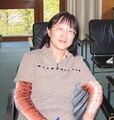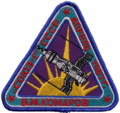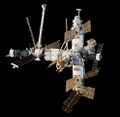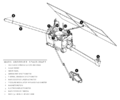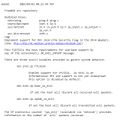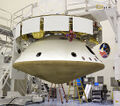Timeline (nonfiction): Difference between revisions
No edit summary |
No edit summary |
||
| Line 735: | Line 735: | ||
File:John Dalton by Charles Turner.jpg|link=John Dalton (nonfiction)|1844 Jul. 27: Chemist, meteorologist, and physicist [[John Dalton (nonfiction)|John Dalton]] dies. He proposed the modern atomic theory, and did research in color blindness. | File:John Dalton by Charles Turner.jpg|link=John Dalton (nonfiction)|1844 Jul. 27: Chemist, meteorologist, and physicist [[John Dalton (nonfiction)|John Dalton]] dies. He proposed the modern atomic theory, and did research in color blindness. | ||
File:Francis Baily.jpg|link=Francis Baily (nonfiction)|1844 Aug. 30: Astronomer [[Francis Baily (nonfiction)|Francis Baily]] dies. He observed "Baily's beads" during an annular eclipse (1836). | File:Francis Baily.jpg|link=Francis Baily (nonfiction)|1844 Aug. 30: Astronomer [[Francis Baily (nonfiction)|Francis Baily]] dies. He observed "Baily's beads" during an annular eclipse (1836). | ||
File:Charles-Émile Reynaud.jpg|link=Charles-Émile Reynaud (nonfiction)|1844 Dec. 8: Scientist, inventor, and educator [[Charles-Émile Reynaud (nonfiction)|Charles-Émile Reynaud]] born. He will invent the Praxinoscope (an improved zoetrope) and be responsible for the first projected animated films. | |||
File:Georg Cantor 1894.png|link=Georg Cantor (nonfiction)|1845 Mar. 3: Mathematician and philosopher [[Georg Cantor (nonfiction)|Georg Cantor]] born. He will invent [[Set theory (nonfiction)|set theory]], a fundamental area of mathematical inquiry. | File:Georg Cantor 1894.png|link=Georg Cantor (nonfiction)|1845 Mar. 3: Mathematician and philosopher [[Georg Cantor (nonfiction)|Georg Cantor]] born. He will invent [[Set theory (nonfiction)|set theory]], a fundamental area of mathematical inquiry. | ||
| Line 1,133: | Line 1,134: | ||
File:Georg Cantor 1894.png|link=Georg Cantor (nonfiction)|1918 Jan. 6: Mathematician and philosopher [[Georg Cantor (nonfiction)|Georg Cantor]] dies. He invented [[Set theory (nonfiction)|set theory]], a fundamental area of mathematical inquiry. | File:Georg Cantor 1894.png|link=Georg Cantor (nonfiction)|1918 Jan. 6: Mathematician and philosopher [[Georg Cantor (nonfiction)|Georg Cantor]] dies. He invented [[Set theory (nonfiction)|set theory]], a fundamental area of mathematical inquiry. | ||
File:Charles-Émile Reynaud.jpg|link=Charles-Émile Reynaud (nonfiction)|1918 Jan. 9: Scientist, inventor, and educator [[Charles-Émile Reynaud (nonfiction)|Charles-Émile Reynaud]] dies. He invented the Praxinoscope (an improved zoetrope) and was responsible for the first projected animated films. | |||
File:E. Howard Hunt.jpg|link=E. Howard Hunt (nonfiction)|1918 Oct. 9: CIA officer and author [[E. Howard Hunt (nonfiction)|E. Howard Hunt]] born. Along with G. Gordon Liddy, Hunt will plot the [[Watergate scandal (nonfiction)|Watergate burglaries and other undercover operations for the Nixon administration]]. | File:E. Howard Hunt.jpg|link=E. Howard Hunt (nonfiction)|1918 Oct. 9: CIA officer and author [[E. Howard Hunt (nonfiction)|E. Howard Hunt]] born. Along with G. Gordon Liddy, Hunt will plot the [[Watergate scandal (nonfiction)|Watergate burglaries and other undercover operations for the Nixon administration]]. | ||
File:Aleksandr Ljapunov.jpg|link=Aleksandr Lyapunov (nonfiction)|1918 Nov. 3: Mathematician and physicist [[Aleksandr Lyapunov (nonfiction)|Aleksandr Lyapunov]] dies. Lyapunov contributed to several fields, including differential equations, potential theory, dynamical systems and probability theory. His main preoccupations were the stability of equilibria and the motion of mechanical systems, and the study of particles under the influence of gravity. | File:Aleksandr Ljapunov.jpg|link=Aleksandr Lyapunov (nonfiction)|1918 Nov. 3: Mathematician and physicist [[Aleksandr Lyapunov (nonfiction)|Aleksandr Lyapunov]] dies. Lyapunov contributed to several fields, including differential equations, potential theory, dynamical systems and probability theory. His main preoccupations were the stability of equilibria and the motion of mechanical systems, and the study of particles under the influence of gravity. | ||
Revision as of 18:57, 8 January 2019
Ancient
413 BC Aug. 28: A lunar eclipse caused panic among the sailors of the Athens fleet and thus affected the outcome of a crucial battle in the Peloponnesian War. The Athenians were ready to withdraw their forces from Syracuse when the Moon was eclipsed, but the eclipse caused the superstitious Athenian general Nicias to delay their departure. This delay gave an advantage to their enemies, the Syracusans, who then defeated the entire Athenian fleet and army, and killed Nicias.
322 BC Oct. 12: Athenian politician and orator Demosthenes takes his own life, to avoid being arrested by the agents of his enemies.
100 BC Jul. 13: Roman general and statesman Julius Caesar born. He will play a critical role in the events that led to the demise of the Roman Republic and the rise of the Roman Empire.
44 BC: Julius Caesar, Dictator of the Roman Republic, is stabbed to death by Marcus Junius Brutus, Gaius Cassius Longinus, Decimus Junius Brutus, and several other Roman senators on the Ides of March.
28 BC May 10: A sunspot is observed by Han dynasty astronomers during the reign of Emperor Cheng of Han, one of the earliest dated sunspot observations in China.
900s
940 Jun. 10: Mathematician and astronomer Abū al-Wafā' Būzjānī born. His Almagest will be widely read by medieval Arabic astronomers in the centuries after his death.
998 Jul 15: Mathematician and astronomer Abū al-Wafā' Būzjānī dies. His Almagest was widely read by medieval Arabic astronomers in the centuries after his death.
1000s
1013 Jul 18: Composer, mathematician, and astronomer Hermann of Reichenau born. He will write a treatise on the science of music, several works on geometry and arithmetic, and astronomical treatises (including instructions for the construction of an astrolabe, then a very novel device in Western Europe).
1054 Sep. 24: Composer, mathematician, and astronomer Hermann of Reichenau dies. He wrote a treatise on the science of music, several works on geometry and arithmetics and astronomical treatises (including instructions for the construction of an astrolabe, at the time a very novel device in Western Europe).
1100s
1126 Apr. 14: Polymath Ibn Rushd (Averoess) born. He will write on logic, Aristotelian and Islamic philosophy, theology, the Maliki school of Islamic jurisprudence, psychology, political and Andalusian classical music theory, geography, mathematics, and the mediæval sciences of medicine, astronomy, physics, and celestial mechanics.
1178 Jun. 18: Five Canterbury monks see what is possibly the Giordano Bruno crater being formed. It is believed that the current oscillations of the Moon's distance from the Earth (on the order of meters) are a result of this collision.
1198 Dec. 10: Polymath Ibn Rushd (Averoess) dies. He wrote on logic, Aristotelian and Islamic philosophy, theology, the Maliki school of Islamic jurisprudence, psychology, political and Andalusian classical music theory, geography, mathematics, and the mediæval sciences of medicine, astronomy, physics, and celestial mechanics.
1200's
1280 Nov. 15: Bishop, theologian, and philosopher Albertus Magnus dies. He was known during his lifetime as doctor universalis and doctor expertus and, late in his life, the term magnus was appended to his name.
1300's
1390 Jun. 23: Priest, philosopher, physicist, and theologian John Cantius born. He will help develop Jean Buridan's theory of impetus, anticipating the work of Galileo and Newton.
1400s
1402 Apr. 28: Aztec philosopher, warrior, architect, poet, and ruler Nezahualcoyotl born. He will have an experience of an "Unknown, Unknowable Lord of Everywhere" to whom he will build an entirely empty temple in which no blood sacrifices of any kind will be allowed.
1423: Mathematician and astronomer Georg von Peuerbach born. He will be remembered for his streamlined presentation of Ptolemaic astronomy in the Theoricae Novae Planetarum.
1433 Oct. 19: Priest, humanist philosopher, and astrologer Marsilio Ficino born. His Florentine Academy, an attempt to revive Plato's Academy, will influence the direction and tenor of the Italian Renaissance and the development of European philosophy.
1436 June 6: Mathematician, astronomer, and bishop Johann Regiomontanus born. His contributions will be instrumental in the development of Copernican heliocentrism in the decades following his death.
1452: Polymath Leonardo da Vinci born. His areas of interest will include painting, sculpting, architecture, invention, science, music, mathematics, engineering, literature, anatomy, geology, astronomy, botany, writing, history, and cartography.
1452 Dec. 10: Mathematician, astronomer, astrologer, priest, maker of astronomical instruments, and professor Johannes Stöffler born.
1453 Mar. 2: Doctor, astronomer, and astrologer Johannes Engel born. He will publish numerous almanacs, planetary tables, and calendars.
1461 Apr. 8: Mathematician and astronomer Georg von Peuerbach dies. He is remembered for his streamlined presentation of Ptolemaic astronomy in the Theoricae Novae Planetarum.
1462 Feb. 1: Polymath Johannes Trithemius born. He will be remembered as a lexicographer, chronicler, cryptographer, and occultist.
1470 Sep. 11: Mapmaker Martin Waldseemüller born. He will produce a globular world map and a large 12-panel world wall map using the information from Columbus and Vespucci's travels (Universalis Cosmographia), both bearing the first use of the name "America".
1471 May 21: Painter, engraver, and mathematician Albrecht Dürer born. He will introduction of classical motifs into Northern art through his knowledge of Italian artists and German humanists.
1472 Jun. 4: Aztec philosopher, warrior, architect, poet, and ruler Nezahualcoyotl dies. He had an experience of an "Unknown, Unknowable Lord of Everywhere" to whom he built an entirely empty temple in which no blood sacrifices of any kind were allowed.
1473 Feb. 19: Mathematician and astronomer Nicolaus Copernicus born. He will formulate a model of the universe that places the Sun rather than the Earth at the center of the universe.
1473 Dec. 24: Priest, philosopher, physicist, and theologian John Cantius dies. He helped develop Jean Buridan's theory of impetus, anticipating the work of Galileo and Newton.
1476 Jul. 6: Mathematician, astronomer, and bishop Johann Regiomontanus dies. His contributions will be instrumental in the development of Copernican heliocentrism in the follwing decades.
1477 Jan. 16: Johannes Schöner born. He will enjoy a European wide reputation as an innovative and influential globe maker and cosmographer and as one of the continent's leading and most authoritative astrologers.
1482 May 10: Mathematician and astronomer Paolo dal Pozzo Toscanelli dies. Thanks to his long life, his intelligence and his wide interests, Toscanelli was one of the central figures in the intellectual and cultural history of Renaissance Florence in its early years.
1499 Oct. 1: Priest, humanist philosopher, and astrologer Marsilio Ficino dies. His Florentine Academy, an attempt to revive Plato's Academy, influenced the direction and tenor of the Italian Renaissance and the development of European philosophy.
1500s
1501 Sep. 24: Gerolamo Cardano born. He will be one of the most influential mathematicians of the Renaissance.
1502 Jan. 11: Mathematician, cosmographer, and academic Pedro Nunes born. He will be one of the greatest mathematicians of his time, known for his mathematical approach to navigation and cartography.
1502 Jul. 26: Christian Egenolff born. He will be the first important printer and publisher operating from Frankfurt-am-Main.
1509 Nov. 7: Philosopher and scientist Bernardino Telesio born. His emphasis on observation will influence the emergence of the scientific method.
1512 Sep. 29: Doctor, astronomer, and astrologer Johannes Engel dies. He published numerous almanacs, planetary tables, and calendars.
1516 Dec. 13: Polymath Johannes Trithemius dies. He is remembered as a lexicographer, chronicler, cryptographer, and occultist.
1518 Jul 3: Physician and scientist Li Shizhen born. He will develop many innovative methods for the proper classification of herb components and medications to be used for treating diseases, earning a reputation as the greatest scientific naturalist of China.
1519 May 2: Polymath Leonardo da Vinci dies. His areas of interest included painting, sculpting, architecture, invention, science, music, mathematics, engineering, literature, anatomy, geology, astronomy, botany, writing, history, and cartography.
1520 Mar. 16: Mapmaker Martin Waldseemüller dies. He produced a globular world map and a large 12-panel world wall map using the information from Columbus and Vespucci's travels (Universalis Cosmographia), both bearing the first use of the name "America".
1523 Apr. 5: Cryptographer and diplomat Blaise de Vigenère (nonfiction) born. The Vigenère cipher will be misattributed to him; Vigenère himself will devise a different, stronger cipher.
1527 Jul. 13: Mathematician, astronomer, and astrologer John Dee born. He will achieve high status as a scholar and play a role in Elizabethan politics.
1528 Apr. 6: Painter, engraver, and mathematician Albrecht Dürer dies. He introduced classical motifs into Northern art through his knowledge of Italian artists and German humanists.
1541 Apr. 8: Physician and archaeologist Michele Mercati born. He will be one of the first scholars to recognize prehistoric stone tools as human-made rather than natural or mythologically created thunderstones.
1533 Feb. 28: Philosopher and author Michel de Montaigne born. He will be one of the most significant philosophers of the French Renaissance, known for popularizing the essay as a literary genre.
1543 May 24: Mathematician and astronomer Nicolaus Copernicus dies. He formulated a model of the universe that places the Sun rather than the Earth at the center of the universe.
1547 Jan. 16: Johannes Schöner dies. He enjoyed a European wide reputation as an innovative and influential globe maker and cosmographer and as one of the continent's leading and most authoritative astrologers.
1547 Sep. 22: Philologist, mathematician, astronomer, and poet Philipp Nicodemus Frischlin born. His prolific and versatile genius will produce a great variety of works, but his reckless life and libelous letters will lead to imprisonment.
1550 Sep. 30: Astronomer and mathematician Michael Maestlin born. He will be a mentor to Johannes Kepler, and play a sizable part in his adoption of the Copernican system.
1550 Dec. 22: Philosopher and academic Cesare Cremonini born. His work will promote rationalism (against revelation) and Aristotelian materialism (against the dualist immortality of the soul) inside scholasticism.
1551 Jan. 17: Writer, humanist, and historian Pedro Mexía dies. He wrote Silva de varia lección ("A Miscellany of Several Lessons"), which became an early best seller across Europe.
1552 Aug. 14: Statesman, scientist, and historian Paolo Sarpi born. He will be a proponent of the Copernican system, a friend and patron of Galileo Galilei, and a keen follower of the latest research on anatomy, astronomy, and ballistics at the University of Padua.
1555 Feb. 9: Christian Egenolff dies. He was the first important printer and publisher operating from Frankfurt-am-Main.
1555 Aug. 8: Mathematician and cartographer Oronce Finé dies. He was imprisoned in 1524, probably for practicing judicial astrology.
1555 Jun. 13: Mathematician, cartographer, and astronomer Giovanni Antonio Magini born. He will support a geocentric system of the world, in preference to Copernicus's heliocentric system.
1560 Aug. 21: The occurrence at the predicted time of a solar eclipse in Copenhagen turns Tycho Brahe towards a life of observational astronomy.
1561 Jan. 6: Mathematician and physicist Thomas Fincke born. He will introduce the modern names of the trigonometric functions tangent and secant.
1565: Explorer Cornelis de Houtman born. He will discover a new sea route from Europe to Indonesia, beginning the Dutch spice trade.
1570 Oct. 6: Gerolamo Cardano imprisoned for 87 days on charges of impiety (casting a horoscope of Christ). He spent the remaining five years of his life in Rome under the eye of a suspicious pope who nonetheless gave him a pension.
1571 Dec. 9: Mathematician and astronomer Adriaan Metius born. He will manufacture precision astronomical instruments, and published treatises on the astrolabe and on surveying.
1573 Jan. 20: Astronomer Simon Marius born. He will discover the four largest moons of Jupiter, independently of Galileo Galilei.
1574 Jan. 17: Astrologer, mathematician, cosmologist, Qabalist and Rosicrucian apologist Robert Fludd born.
1574 Mar. 5: Mathematician William Oughtred born. He will invent the slide rule in 1622.
1576 Sep. 21: Gerolamo Cardano dies. He was one of the most influential mathematicians of the Renaissance.
1577 Jun. 12: Astronomer and mathematician Paul Guldin born. He will discover the Guldinus theorem, which determines the surface and the volume of a solid of revolution.
1578 Aug. 11: Mathematician, cosmographer, and academic Pedro Nunes dies. He was one of the greatest mathematicians of his time, best known for his mathematical approach to navigation and cartography.

1580 Jun. 13: Astronomer and mathematician Willebrord Snellius born. In 1615 he will conduct a large-scale experiment to measure the circumference of the earth using triangulation, underestimating the circumference of the earth by 3.5%.
1581 Oct. 9: Mathematician and linguist Claude Gaspard Bachet de Méziriac born. He will do work in number theory and find a method of constructing magic squares.
1583 Feb. 23: Mathematician, astrologer, and astronomer Jean-Baptiste Morin born.
1586 Dec 6: Astronomer and physicist Niccolò Zucchi born. He will publish works on astronomy, optics, mechanics, and magnetism.
1588 Sep. 8: Mathematician, theologian, and philosopher Marin Mersenne born. He will be remembered as the "father of acoustics".
1588 Oct. 2: Philosopher and scientist Bernardino Telesio dies. While his natural theories were later disproven, his emphasis on observation influenced the emergence of the scientific method.
1590 Nov. 29: Philologist, mathematician, astronomer, and poet Philipp Nicodemus Frischlin dies, killed by a fall in attempting to let himself down from the window of his cell. His prolific and versatile genius produced a great variety of works, but his reckless life and libelous letters led to imprisonment.
1591 Feb. 21: Mathematician and engineer Girard Desargues born. He will be one of the founders of projective geometry.
1591 June 16: Physician, mathematician, and theorist Joseph Solomon Delmedigo born. He will write Elim (Palms), dealing astronomy, physics, mathematics, medicine, metaphysics, and music theory.
1592 Apr. 22: Minister, scholar, astronomer, mathematician, cartographer, and inventor Wilhelm Schickard born. He will design and build calculating machines, and invent techniques for producing improved maps.
1592 Sep. 13: Philosopher and author Michel de Montaigne dies. He was one of the most significant philosophers of the French Renaissance, known for popularizing the essay as a literary genre.
1593 Jun. 25: Physician and archaeologist Michele Mercati dies. He was one of the first scholars to recognize prehistoric stone tools as human-made rather than natural or mythologically created thunderstones.
1596 Feb. 19: Cryptographer and diplomat Blaise de Vigenère (nonfiction) dies. The Vigenère cipher was misattributed to him; Vigenère himself devised a different, stronger cipher.
1597 Mar. 1: Priest and mathematician Jean-Charles della Faille born. He will publish a method for calculating the center of gravity of the sector of a circle.
1597 Oct. 13: Astronomer Johannes Kepler replied to Galileo's letter of 4 August, 1597, urging him to be bold and proceed openly in his advocacy of Copernicanism.
1598 Apr. 17: Priest and astromomer Giovanni Battista Riccioli born. He will experiment with pendulums and falling bodies, discuss arguments concerning the motion of the Earth, and introduce the current scheme of lunar nomenclature.
1599 Sep. 1: Explorer Cornelis de Houtman dies. He discovered a new sea route from Europe to Indonesia, beginning the Dutch spice trade.
1600s
1600 Feb. 17: Dominican friar, philosopher, mathematician, poet, and cosmological theorist Giordano Bruno is burned at the stake.
1600 Feb. 19: The Peruvian stratovolcano Huaynaputina explodes in the most violent eruption in the recorded history of South America.
1602 Aug. 10: Mathematician and academic Gilles de Roberval born. He will publish a system of the universe in which he supports the Copernican heliocentric system and attributes a mutual attraction to all particles of matter.
1604 May 10: Alchemist and chemist Johann Rudolf Glauber born. He will be an early industrial chemical engineer.
1604 Oct. 17: Kepler's Supernova: German astronomer Johannes Kepler observes a supernova in the constellation Ophiuchus.
1605 Sep. 28: Mathematician and astronomer Ismaël Bullialdus born. He will be an active member of the Republic of Letters, and an early defender of the ideas of Copernicus, Kepler and Galileo.
1607 Oct. 5: Assassins sent by Pope Paul V attempt to kill Venetian statesman and scientist Paolo Sarpi, who survives fifteen stiletto thrusts.
1608 Oct. 15: Physicist and mathematician Evangelista Torricelli born. He will invent the barometer, make advances in optics, and work on the method of indivisibles.
1610 May 11: Priest and mathematician Matteo Ricci dies. He translated Euclid's Elements into Chinese as well as the Confucian classics into Latin for the first time.
1616 Mar. 5: Nicolaus Copernicus's book On the Revolutions of the Heavenly Spheres is added to the Index of Forbidden Books 73 years after it was first published.
1616 Jul. 25: Physician, alchemist and chemist Andreas Libavius dies. He accepted the Paracelsian principle of using occult properties to explain phenomena with no apparent cause, but rejected the conclusion that a thing possessing these properties must have an astral connection to the divine.
1616 Dec. 3: Mathematician and cryptographer John Wallis born. He will serve as chief cryptographer for Parliament and, later, the royal court.
1617 Feb. 11: Mathematician, cartographer, and astronomer Giovanni Antonio Magini dies. He supported a geocentric system of the world, in preference to Copernicus's heliocentric system.
1618 Mar. 8: Mathematician and astronomer Johannes Kepler discovers the third law of planetary motion.
1618 May 15: Johannes Kepler confirms his previously rejected discovery of the third law of planetary motion (he first discovered it on March 8 but soon rejected the idea after some initial calculations were made).
1622 Apr. 5: Mathematician and scientist Vincenzo Viviani born. In 1660, Viviani and Giovanni Alfonso Borelli will conduct an experiment to determine the speed of sound. Timing the difference between the seeing the flash and hearing the sound of a cannon shot at a distance, they will calculate a value of 350 meters per second (m/s), considerably better than the previous value of 478 m/s obtained by Pierre Gassendi.
1623 Jan. 15: Statesman, scientist, and historian Paolo Sarpi dies. He was a proponent of the Copernican system, a friend and patron of Galileo Galilei, and a keen follower of the latest research on anatomy, astronomy, and ballistics at the University of Padua.
1623 Jun. 19: Mathematician, physicist, inventor, writer, and Christian philosopher Blaise Pascal born. He will do pioneering work on calculating machines.
1625 Jan. 5: Astronomer Simon Marius dies. He discovered the four largest moons of Jupiter, independently of Galileo Galilei.
1625 Jun. 8: Mathematician, astronomer, and engineer Giovanni Domenico Cassini born. He will discover four satellites of the planet Saturn and note the division of the rings of Saturn; the Cassini Division will be named after him.
1625 Sep. 24: Mathematician and politician Johan de Witt born. He will derive the basic properties of quadratic forms, an important step in the field of linear algebra.

1626 Oct. 30: Astronomer and mathematician Willebrord Snellius dies. In 1615 he conducted a large-scale experiment to measure the circumference of the earth using triangulation, underestimating the circumference of the earth by 3.5%.
1629 Apr. 14: Mathematician, astronomer, and physicist Christiaan Huygens born. He will be a leading scientist of his time.
1631 Jul. 19: Philosopher and academic Cesare Cremonini dies. His work promoted rationalism (against revelation) and Aristotelian materialism (against the dualist immortality of the soul) inside scholasticism.
1631 Oct. 20: Astronomer and mathematician Michael Maestlin dies. He was a mentor to Johannes Kepler, and played a sizable part in his adoption of the Copernican system.
1632 Nov. 24: Philosopher, scholar, and lens-grinder Baruch Spinoza born. He will lay the groundwork for the 18th-century Enlightenment and modern biblical criticism, including modern conceptions of the self and the universe.
1633 Jun. 1: Astronomer and academic Geminiano Montanari born. He will make the observation that Algol in the constellation of Perseus varies in brightness.
1634 Aug. 18: Urbain Grandier, accused and convicted of sorcery, is burned alive in Loudun, France. He was the victim of a politically motivated persecution led by the powerful Cardinal Richelieu.
1635 Sep. 6: Mathematician and astronomer Adriaan Metius dies. He manufactured precision astronomical instruments, and published treatises on the astrolabe and on surveying.
1635 Oct. 24: Minister, scholar, astronomer, mathematician, cartographer, and inventor Wilhelm Schickard dies. He design and built calculating machines, and invented techniques for producing improved maps.
1638 Feb. 26: Mathematician and linguist Claude Gaspard Bachet de Méziriac dies. He was the earliest writer who discussed the solution of indeterminate equations by means of continued fractions. He also did work in number theory and found a method of constructing magic squares.
1638 Aug. 6: Priest and philosopher Nicolas Malebranche born. He will be instrumental in introducing and disseminating the contributions of René Descartes and Gottfried Wilhelm Leibniz in France.
1638 Aug. 23: Descartes' proposal. René Descartes, in a letter to Marin Mersenne, proposed his folium (x-cubed + y-cubed = 2axy) as a test case to challenge Pierre de Fermat's differentiation techniques. To Descartes' embarrassment, Fermat's method worked.
1640 Mar. 18: Painter, mathematician, astronomer, and architect Philippe de La Hire born.
1640 Oct. 18: Mathematician Pierre de Fermat announced his "little theorem" in a letter to Bernard Frenicle de Bessey.
1644 Jun. 11: Physicist and mathematician Evangelista Torricelli write in a letter to Michelangelo Ricci: Noi viviamo sommersi nel fondo d'un pelago d'aria ("We live submerged at the bottom of an ocean of air").
1643 Nov. 3: Astronomer and mathematician Paul Guldin dies. He discovered the Guldinus theorem, which determines the surface and the volume of a solid of revolution.
1644 Sep. 25: Astronomer and instrument maker Ole Rømer born. He will make the first quantitative measurements of the speed of light.
1646 Jul. 1: Mathematician and philosopher Gottfried Wilhelm Leibniz born. He will develop differential and integral calculus independently of Isaac Newton, and design and build mechanical calculators.
1646 Nov. 29: Theologian, astronomer, astrologer, and Archbishop of Uppsala Laurentius Paulinus Gothus dies.
1647 Oct. 25: Physicist and mathematician Evangelista Torricelli dies. He invented the barometer, made advances in optics, and worked on the method of indivisibles.
1648 Sep. 1: Mathematician, theologian, and philosopher Marin Mersenne dies. He is remembered as the "father of acoustics".
1648 Sep. 19: Blaise Pascal performs experiments to confirm the theory of atmospheric pressure and the existence of a vacuum.
1650 Aug. 16: Monk, cosmographer, and cartographer Vincenzo Coronelli born. He will gain fame for his atlases and globes; some of the globes will be very large and highly detailed.
1652 Jun. 21: Architect Inigo Jones dies. He was one of the first architects of the early modern period to employ Vitruvian rules of proportion and symmetry in his buildings.
1652 Nov. 4: Priest and mathematician Jean-Charles della Faille dies. He published a method for calculating the center of gravity of the sector of a circle.
1652: Mathematician, physician, and astronomer Jan Brożek dies. He contributed to a greater knowledge of Nicolaus Copernicus' theories and was his ardent supporter and early prospective biographer.
1654 Oct. 27: Blaise Pascal writes to Pierre de Fermat, praising him for his solution to the Problem of the Points, about which they had exchanged seven previous letters.
1655 Jan. 6: Mathematician Jacob Bernoulli born. He will discover the fundamental mathematical constant e, and make important contributions to the field of probability.
1655 Oct. 16: Physician, mathematician, and theorist Joseph Solomon Delmedigo dies. His Elim (Palms) deals with astronomy, physics, mathematics, medicine, metaphysics, and music theory.
1656 Apr. 24: Mathematician and physicist Thomas Fincke dies. He introduced the modern names of the trigonometric functions tangent and secant.
1656 Nov. 6: Mathematician, astrologer, and astronomer Jean-Baptiste Morin dies.
1565 Nov. 10: Theologian, astronomer, astrologer, and Archbishop of Uppsala Laurentius Paulinus Gothus born.
1659 Oct. 22: Chemist and physician Georg Ernst Stahl born. His works on phlogiston will be accepted as an explanation for chemical processes until the late 18th century.
1660 Jun. 30: Mathematician William Oughtred dies. He invented the slide rule in 1622.
1660 Aug. 21: Physician, mathematician, and engineer Hubert Gautier dies. He authored the first book on bridge building, Traité des Ponts, in 1716, as well as books on roads, fortifications, antiquities, geology, and a first manual for watercolor practitioners.
1662 Aug. 19: Mathematician, physicist, inventor, writer, and Christian philosopher Blaise Pascal dies. He did pioneering work on calculating machines.
1663 Dec. 28: Mathematician and physicist Francesco Maria Grimaldi dies. Working with Riccioli, he investigated the free fall of objects, confirming that the distance of fall was proportional to the square of the time taken.
1665 Mar. 6: The first joint Secretary of the Royal Society, Henry Oldenburg, publishes the first issue of Philosophical Transactions of the Royal Society.
1667 Apr. 29: Physician, satirist, and polymath John Arbuthnot born. He will invent the figure of John Bull.
1667 May 26: Mathematician and theorist Abraham de Moivre born. His book on probability theory, The Doctrine of Chances, will be prized by gamblers.
1667 Oct. 2: Mathematician and physicist Isaac Newton becomes a fellow at Trinity College, Cambridge. He had earned his bachelor's degree in 1665 and then spent two years at home in Lincolnshire inventing much of differential and integral calculus while Cambridge was closed due to plague.
1670 May 21: Astronomer and physicist Niccolò Zucchi dies. He published works on astronomy, optics, mechanics, and magnetism.
1671 Jun. 25: Priest and astromomer Giovanni Battista Riccioli dies. He experimented with pendulums and falling bodies, discussed arguments concerning the motion of the Earth, and introduced the current scheme of lunar nomenclature.
1672 Oct. 27: Mathematician and politician Johan de Witt dies in a riot. The rioters will partially eat his body.
1675 Aug. 10: Mathematician and academic Gilles de Roberval dies. He published a system of the universe in which he supports the Copernican heliocentric system and attributes a mutual attraction to all particles of matter.
1675 Oct. 29: Gottfried Wilhelm Leibniz makes the first use of the long s (∫) as a symbol of the integral in calculus.
1676 Oct. 24: Isaac Newton summarized the state of development of his method of fluxions and power series in the "Epistola posterior," which he sent to Oldenburg to transmit to Leibniz.
1676 Nov. 21: Astronomer Ole Rømer presents the first quantitative measurements of the speed of light.
1677 Feb. 21: Philosopher, scholar, and lens-grinder Baruch Spinoza dies. He laid the groundwork for the 18th-century Enlightenment and modern biblical criticism, including modern conceptions of the self and the universe.
1677 May 4: Mathematician and theologian Isaac Barrow dies. He played an early role in the development of infinitesimal calculus.
1677 Sep. 5: Theologian, natural philosopher, and diplomat Henry Oldenburg dies. He was one of the foremost intelligencers of Europe of the seventeenth century, and the creator of scientific peer review.
1677 Sep. 27: Mathematician, astronomer, and cartographer Johann Gabriel Doppelmayr born. He will publish works on mathematics and astronomy, including sundials, spherical trigonometry, and celestial maps and globes, along with biographical information on several hundred mathematicians and instrument makers.
1678 Oct. 27: Mathematician Pierre Raymond de Montmort born. He will write Essay d'analyse sur les jeux de hazard, an influential book about probability and games of chance which will introduce the combinatorial study of derangements.
1679 May 14: Astronomer and mathematician Peder Horrebow born. he will invent a way to determine a place's latitude from the stars.
1683 May 31: Physicist, mathematician, and astronomer Jean-Pierre Christin born. He will invent the Celsius thermometer.
1684 Dec. 10: Isaac Newton's derivation of Kepler's laws from his theory of gravity, contained in the paper De motu corporum in gyrum, is read to the Royal Society by Edmond Halley.
1686 May 24: Physicist and engineer Daniel Gabriel Fahrenheit born. He will help lay the foundations for the era of precision thermometry by inventing the mercury-in-glass thermometer and the Fahrenheit scale.
1686 Nov. 25: Scientist and bishop Niels Steensen dies. He questioned explanations for tear production, the idea that fossils grow in the ground.
1687 Jul. 5: Isaac Newton publishes Philosophiæ Naturalis Principia Mathematica ("Mathematical Principles of Natural Philosophy"). Principia states Newton's laws of motion, forming the foundation of classical mechanics; Newton's law of universal gravitation; and a derivation of Kepler's laws of planetary motion (which Kepler first obtained empirically).
1687 Sep. 26: The Parthenon is partially destroyed by an explosion caused by the bombing from Venetian forces led by Morosini who are besieging the Ottoman Turks stationed in Athens.
1687 Oct. 13: Astronomer and academic Geminiano Montanari dies. He made the observation that Algol in the constellation of Perseus varies in brightness.
1687 Oct. 21: Mathematician and theorist Nicolaus I Bernoulli born. He will introduce a successful resolution to the St. Petersburg paradox.
1693 Apr. 3: Carpenter and clockmaker John Harrison born. He will invent a marine chronometer, a long-sought-after device for solving the problem of calculating longitude while at sea.
1693 Apr. 28: Gottfried Wilhelm Leibniz writes to L'Hospital, announcing his discovery of determinants fifty years before Cramer, who was the real driving force in the development of determinants. Leibniz's work had little or no influence because it was not published until 1850 in his Mathematische Schriften.
1694 Nov. 25: Mathematician and astronomer Ismaël Bullialdus dies. He was an active member of the Republic of Letters, and an early defender of the ideas of Copernicus, Kepler and Galileo.
1695 Jul. 8: Mathematician, astronomer, and physicist Christiaan Huygens dies. He was a leading scientist of his time.
1697 Nov. 10: Satirist, painter, illustrator, and critic William Hogarth born. His work will range from realistic portraiture to comic strip-like series of pictures called "modern moral subjects".
1698 Feb. 16: Mathematician, geophysicist, and astronomer Pierre Bouguer born. He will be known as "the father of naval architecture".
1700s
1700 Feb. 8: Mathematician and physicist Daniel Bernoulli born. He will be particularly remembered for his applications of mathematics to mechanics, especially fluid mechanics, and for his pioneering work in probability and statistics.
1700 Nov. 19: Priest and physicist Jean-Antoine Nollet born. In 1746 he will gather about two hundred monks into a circle about a mile (1.6 km) in circumference, with pieces of iron wire connecting them. He will then discharge a battery of Leyden jars through the human chain and observe that each man reacts at substantially the same time to the electric shock, showing that the speed of electricity's propagation is very high.
1702 Mar. 4: Thief Jack Sheppard born. He will be arrested and imprisoned five times in 1724 but escape four times from prison, making him a notorious public figure, and wildly popular with the poorer classes.
1703 Sep. 22: Mathematician and scientist Vincenzo Viviani dies. In 1660, Viviani and Giovanni Alfonso Borelli conducted an experiment to determine the speed of sound. Timing the difference between the seeing the flash and hearing the sound of a cannon shot at a distance, they calculated a value of 350 meters per second (m/s), considerably better than the previous value of 478 m/s obtained by Pierre Gassendi.
1703 Oct. 28: Mathematician and engineer Antoine Deparcieux born. He will make a living manufacturing sundials.
1703 Nov. 8: Mathematician and cryptographer John Wallis dies. He served as chief cryptographer for Parliament and, later, the royal court.
1704 Jul. 31: Mathematician and physicist Gabriel Cramer born. He will publish Cramer's rule, giving a general formula for the solution for any unknown in a linear equation system having a unique solution, in terms of determinants implied by the system.
1705 Aug. 16: Mathematician Jacob Bernoulli dies. He discovered the fundamental mathematical constant e, and made important contributions to the field of probability.
1707 Apr. 15: Mathematician and physicist Leonhard Euler born. He will make important and influential discoveries in many branches of mathematics, and will introduce much of the modern mathematical terminology and notation, such as the notion of a mathematical function.
1707 May 23: Botanist, physician, and zoologist Carl Linnaeus born. He will formalize the binomial nomenclature system of taxonomy.
1708 Oct. 10: Mathematician and astronomer David Gregory dies. At the Union of 1707, he was given the responsibility of reorganizing the Scottish Mint.
1708 Dec. 5: Mathematician Seki Takakazu dies. He created a new algebraic notation system and, motivated by astronomical computations, did work on infinitesimal calculus and Diophantine equations. Seki laid foundations for the subsequent development of Japanese mathematics known as wasan; he has been described as "Japan's Newton".
1710 Apr. 26: Mathematician and philosopher Thomas Reid born. Reid will argue that common sense (in a special philosophical sense of sensus communis) is, or at least should be, at the foundation of all philosophical inquiry. He disagreed with David Hume, who asserted that we can never know what an external world consists of as our knowledge is limited to the ideas in the mind, and George Berkeley, who asserted that the external world is merely ideas in the mind.
1710 Sep. 19: Astronomer and instrument maker Ole Rømer dies. He made the first quantitative measurements of the speed of light.
1712 Jun. 28: Philosopher and author Jean-Jacques Rousseau born. His political philosophy will influence the Enlightenment in France and across Europe.
1712 Sep. 14: Mathematician, astronomer, and engineer Giovanni Domenico Cassini dies. He discovered four satellites of the planet Saturn and noted the division of the rings of Saturn; the Cassini Division was named after him.
1713 May 13: Mathematician, astronomer, and geophysicist Alexis Clairaut born. His work will help to establish the validity of the principles and results that Sir Isaac Newton had outlined in the Principia of 1687.
1713 Sep. 14: Astronomer and mathematician Johann Kies born. He will be one of the first to propagate Isaac Newton's discoveries in Germany, and willl dedicate two of his works to the Englishman.
1713 Oct. 5: Philosopher, art critic, and writer Denis Diderot born. He will be a prominent figure during the Enlightenment, serving as co-founder, chief editor, and contributor to the Encyclopédie along with Jean le Rond d'Alembert.
1713 Oct. 25: Gottfried Leibniz, in a letter to Johann Bernoulli, observed that an alternating series whose terms monotonically decrease to zero in absolute value is convergent.
1714 Jun. 17: Astronomer and cartographer César-François Cassini de Thury born. In 1744, he will begin the construction of a great topographical map of France, one of the landmarks in the history of cartography. Completed by his son Jean-Dominique, Cassini IV and published by the Académie des Sciences from 1744 to 1793, its 180 plates will be known as the Cassini map.
1714 Dec. 19: Mathematician, physicist, and astronomer John Winthrop born. He will be one of the foremost men of science in America during the 18th century.
1715 Oct. 13: Priest and philosopher Nicolas Malebranche dies. He was instrumental in introducing and disseminating the work of René Descartes and Gottfried Wilhelm Leibniz in France.
1716 Nov. 14: Mathematician and philosopher Gottfried Wilhelm Leibniz dies. He developed differential and integral calculus independently of Isaac Newton, and designed and built mechanical calculators.
1717 Nov. 16: Mathematician, physicist, and philosopher Jean le Rond d'Alembert born. He will make contribution to mathematics and physics, including D'Alembert's formula for obtaining solutions to the wave equation.
1718 Apr. 21: Painter, mathematician, astronomer, and architect Philippe de La Hire dies.
1718 Dec. 9: Monk, cosmographer, and cartographer Vincenzo Coronelli dies. He gained fame for his atlases and globes; some of the globes are very large and highly detailed.
1719 Oct. 7: Mathematician Pierre Raymond de Montmort dies. He wrote Essay d'analyse sur les jeux de hazard, an influential book about probability and games of chance which introduced the combinatorial study of derangements.
1720 Nov. 23: Clockmaker Jean-André Lepaute born. He will be an innovator, introducing numerous improvements in clockmaking, especially his pin-wheel escapement, and his clockworks in which the gears are all in the horizontal plane.
1722 Dec. 23: Mathematician and academic Pierre Varignon dies. He simplified the proofs of many propositions in mechanics, adapted Leibniz's calculus to the inertial mechanics of Newton's Principia, and treated mechanics in terms of the composition of forces.
1723 Jan. 5: Astronomer and mathematician Nicole-Reine Lepaute born. She will predict the return of Halley's Comet, calculate the timing of a solar eclipse, and construct a group of catalogs for the stars.
1724 Feb. 5: Thief Jack Sheppard first arrested. He will be arrested and imprisoned five times in 1724 but escape four times from prison, making him a notorious public figure, and wildly popular with the poorer classes.
1724 Nov. 16: Thief Jack Sheppard hanged. He was arrested and imprisoned five times in 1724 but escaped four times from prison, making him a notorious public figure, and wildly popular with the poorer classes.
1725 Sep. 5: Mathematician and theorist Jean-Étienne Montucla born. His deep interest in history of mathematics will become apparent with his publication of Histoire des Mathématiques, the first part appearing in 1758.
1725 Sep. 12: Astronomer Guillaume Le Gentil born. He will discover what are now known as the Messier objects M32, M36 and M38, as well as the nebulosity in M8, and he was the first to catalogue the dark nebula sometimes known as Le Gentil 3 (in the constellation Cygnus).
1728 Aug. 26: Polymath Johann Heinrich Lambert born. He will make important contributions to mathematics, physics (particularly optics), philosophy, astronomy, and map projections.
1729 Oct. 13: Leonhard Euler mentions the gamma function in a letter to Christian Goldbach. Adrien-Marie Legendre will give the function its symbol and name in 1826.
1730 Mar. 31: Mathematician and theorist Étienne Bézout born. His Théorie générale des équations algébriques will contain much new and valuable matter on the theory of elimination and symmetrical functions of the roots of an equation.
1730 May 6: Astronomer Charles Messier observes the Mercury transit, his first documented observation.
1730 Jun. 26: Astronomer Charles Messier born. He will publish an astronomical catalogue consisting of nebulae and star clusters that will come to be known as the 110 "Messier objects".
1730 Dec. 25: Physician and activist Filippo Mazzei born. He will act as an agent to purchase arms for Virginia during the American Revolutionary War.
1731 Apr. 10: Chemist, physicist, and philosopher Henry Cavendish born. He will discover "inflammable air", later named hydrogen.
1732 Apr. 8: Inventor, astronomer, mathematician, clockmaker, and surveyor David Rittenhouse born. He will become the first Director of the United States Mint, hand-striking the new nation's first coins.
1732 Jul. 11: Astronomer, freemason, and writer Joseph Jérôme Lefrançois de Lalande born. As a lecturer and writer Lalande will help popularize astronomy. His planetary tables will be the best available up to the end of the 18th century.
1732 Sep. 3: Physicist and academic Johan Carl Wilcke born. He will invent the electrophorus, and calculate the latent heat of ice.
1732 Oct 29: Physicist and academic Laura Bassi is granted professorship in philosophy by the University of Bologna, thus also making her a member of the Academy of the Sciences.
1732 Dec. 22: Inventor, engineer, and businessman Richard Arkwright born. Later in his life Arkwright will be known as the "father of the modern industrial factory system."
1733 Mar. 24: British scientist Joseph Priestley born. He will be historically been credited with the discovery of oxygen, having isolated it in its gaseous state, but his determination to defend phlogiston theory and to reject what would become the chemical revolution will leave him isolated within the scientific community.
1733 May 4: Mathematician, physicist, and sailor Jean-Charles de Borda born. He will contribute to the development of the metric system, constructing a platinum standard meter, the basis of metric distance measurement.
1734 May 24: Chemist and physician Georg Ernst Stahl dies. His works on phlogiston continue to be accepted as an explanation for chemical processes until the late 18th century.
1735 Feb. 27: Physician, satirist, and polymath John Arbuthnot dies. He invented the figure of John Bull.
1735 Aug. 26: Leonhard Euler presents his solution to the Königsberg bridge problem – whether it was possible to find a route crossing each of the seven bridges of the city of Königsberg once and only once – in a lecture to his colleagues at the Academy of Sciences in St. Petersburg.
1735 Oct. 6: Mathematician, astronomical and scientific instrument maker Jesse Ramsden born. He will build his reputation on his engraving and design of dividing engines, which allowed high accuracy measurements of angles and lengths in instruments. Ramsden will produce instruments for astronomy that will be especially well-known for maritime use (needed for the measurement of latitudes), and for his surveying instruments (widely used for cartography and land survey).
1736 Jan. 25: Mathematician and astronomer Joseph-Louis Lagrange born. He will make significant contributions to the fields of analysis, number theory, and both classical and celestial mechanics.
1736 Jan. 30: Inventor, engineer, and chemist James Watt born. He will make major improvements to the steam engine.
1736 Dec. 16: Physicist and engineer Daniel Gabriel Fahrenheit dies. He helped lay the foundations for the era of precision thermometry by inventing the mercury-in-glass thermometer and the Fahrenheit scale.
1737 Sep. 9: Physician and physicist Luigi Galvani born. In 1780, he will discover that the muscles of dead frogs' legs twitch when struck by an electrical spark.
1737 Sep. 27: Physician, mathematician, and engineer Hubert Gautier dies. He authored the first book on bridge building, Traité des Ponts, in 1716, as well as books on roads, fortifications, antiquities, geology, and a first manual for watercolor practitioners.
1738 Aug. 15: Mathematician, geophysicist, and astronomer Pierre Bouguer dies. He is known as "the father of naval architecture".
1743 May 19: Physicist, mathematician, and astronomer Jean-Pierre Christin publishes the design of a mercury thermometer based on the Celsius scale. The "Thermometer of Lyon" will be built by the craftsman Pierre Casati using this design.
1743 Aug. 26: Chemist and biologist Antoine Lavoisier born. He will have a large influence on both the history of chemistry and the history of biology.
1743 Sep. 17: Philosopher, mathematician, and early political scientist Marie Jean Antoine Nicolas de Caritat, Marquis of Condorcet born. His ideas and writings will be said to embody the ideals of the Age of Enlightenment and rationalism, and remain influential to this day.
1746 May 9: Mathematician and engineer Gaspard Monge born. He will invent descriptive geometry, and do pioneering work in differential geometry.
1748 Jul. 25: Astronomer Charles Messier's interest in astronomy is stimulated by an annular solar eclipse visible from his hometown.
1749 Mar. 23: Mathematician and astronomer Pierre-Simon Laplace born. He will make important contributions to mathematics, statistics, physics and astronomy.
1749 Sep. 19: Mathematician and astronomer Jean Baptiste Joseph Delambre born. He will be one of the first astronomers to derive astronomical equations from analytical formulas.
1750 Mar. 16: Astronomer Caroline Herschel born. She will discover several comets, including the periodic comet 35P/Herschel-Rigollet, which bears her name.
1750 Oct. 5: Maria Gaetana Agnesi receives a response from Pope Benedict XIV on the publication of her book, Instituzioni Analitiche, a two volume presentation covering algebra, calculus and differential equations. The pope sends her a gold medal, a wreath laid with precious stones and named her honorary professor at the University of Bologna.
1750 Dec. 1: Mathematician, astronomer, and cartographer Johann Gabriel Doppelmayr dies. He published works on mathematics and astronomy, including sundials, spherical trigonometry, and celestial maps and globes, along with biographical information on several hundred mathematicians and instrument makers.
1752 Jan. 4: Mathematician and physicist Gabriel Cramer dies. He published Cramer's rule, giving a general formula for the solution for any unknown in a linear equation system having a unique solution, in terms of determinants implied by the system.
1752 Apr. 21: Engineer, hydrographer, and politician Pierre-Alexandre-Laurent Forfait born. He will design and oversee the building of ships, making structural improvements and developing techniques to improve the disposition of cargo in ships' holds.
1752 Jul. 7: Weaver and merchant Joseph Marie Jacquard born. He will invent the Jacquard loom, an early type of programmable machine.
1754 Nov. 27: Mathematician and theorist Abraham de Moivre dies. His book on probability theory, The Doctrine of Chances, is prized by gamblers.
1755 Apr. 19: Physicist, mathematician, and astronomer Jean-Pierre Christin dies. He invented the Celsius thermometer.
1756 Jun. 5: Chemist, physician, agronomist, industrialist, statesman, educator, and philanthropist Jean-Antoine-Claude Chaptal born.
1757 Jan. 11: engineer and naval architect Samuel Bentham born. He will design the first Panopticon.
1758 Aug. 19: Jean-Étienne Montucla received the censor's approbation for his Histoire des mathematiques, which is justly famous as a history of the mathematical sciences.
1759 Nov. 29: Mathematician and theorist Nicolaus I Bernoulli dies. He introduced a successful resolution to the St. Petersburg paradox.
1761 Mar. 14: Mathematician, astronomer, and philosopher Pieter van Musschenbroek born. He will invent the first capacitor in 1746: the Leyden jar.
1761 Apr. 7: Mathematician, philosopher, and minister Thomas Bayes dies. He is remembered for having formulated a specific case of the theorem that bears his name: Bayes' theorem.
1761 Sep. 19: Mathematician, astronomer, and philosopher Pieter van Musschenbroek dies. He invented the first capacitor in 1746: the Leyden jar.
1761 Dec. 24: Astronomer Jean-Louis Pons born. He will become the greatest visual comet discoverer of all time: between 1801 and 1827, Pons will discover thirty-seven comets, more than any other person in history.
1763 Dec. 25: Inventor Claude Chappe born. He will invent and develop a practical semaphore system that will span all of France -- the first practical telecommunications system of the industrial age.
1764 Mar. 13: Charles Grey, 2nd Earl Grey born. His government will see the abolition of slavery in the British Empire.
1764 Apr. 15: Astronomer and mathematician Peder Horrebow dies. he invent a way to determine a place's latitude from the stars.
1764 Oct. 26: Satirist, painter, illustrator, and critic William Hogarth dies. His work ranged from realistic portraiture to comic strip-like series of pictures called "modern moral subjects".
1765 Mar. 7: Inventor Nicéphore Niépce born. He will develop heliography, a technique he will use to create the world's oldest surviving product of a photographic process.
1765 May 17: Mathematician, astronomer, and geophysicist Alexis Clairaut dies. His work helped to establish the validity of the principles and results that Sir Isaac Newton had outlined in the Principia of 1687.
1765 Dec. 22: mathematician Johann Friedrich Pfaff born. He will work on partial differential equations of the first order Pfaffian systems, as they are now called, which will become part of the theory of differential forms.
1766 Jul. 8: Physician and surgeon Dominique Jean Larrey born. He will be an important innovator in battlefield medicine and triage, now often considered the first modern military surgeon.
1766 Sep. 6: Chemist, meteorologist, and physicist John Dalton born. He will propose the modern atomic theory, and do research in color blindness.
1768 Mar. 21: Mathematician and physicist Joseph Fourier born. He will initiate the investigation of Fourier series and their applications to problems of heat transfer and vibrations.
1768 Sep. 2: Mathematician and engineer Antoine Deparcieux dies. He made a living manufacturing sundials.
1770 Apr. 9: Physicist and academic Thomas Johann Seebeck born. He will discover the thermoelectric effect.
1770 Jun. 30: Astronomer Charles Messier is elected to the French Academy of Sciences.
1700 Apr. 20: Priest and physicist Jean-Antoine Nollet dies. In 1746 he gathered about two hundred monks into a circle about a mile (1.6 km) in circumference, with pieces of iron wire connecting them. He then discharged a battery of Leyden jars through the human chain and observed that each man reacted at substantially the same time to the electric shock, showing that the speed of electricity's propagation is very high.
1771 Jun. 19: Mathematician and logician Joseph Diez Gergonne born. He will contribute to the principle of duality in projective geometry, by noticing that every theorem in the plane connecting points and lines corresponds to another theorem in which points and lines are interchanged, provided that the theorem embodied no metrical notions.
1773 Oct. 10: The Whirlpool Galaxy is discovered by Charles Messier.
1773 Dec. 27: Engineer George Cayley born. He will do pioneering work in aeronautics, investigating and codifying the dynamics of flight.
1773 Mar. 26: American captain and mathematician Nathaniel Bowditch born. He will be a founder of modern maritime navigation; his book The New American Practical Navigator, first published in 1802, will be carried on board every commissioned U.S. Naval vessel.
1774 Apr.19: Astronomer Francis Baily born. He will observe "Baily's beads" during an annular eclipse (1836).
1775 Jan. 20: Physicist and mathematician André-Marie Ampère born. He will be one of the founders of the science of classical electromagnetism, which he will referr to as "electrodynamics".
1775 Mar. 8: An anonymous writer, thought by some to be Thomas Paine, publishes "African Slavery in America", the first article in the American colonies calling for the emancipation of slaves and the abolition of slavery.
1776 Mar. 24: Carpenter and clockmaker John Harrison dies. He invented a marine chronometer, a long-sought-after device for solving the problem of calculating longitude while at sea.
1776 Apr. 1: Mathematician, physicist, and philosopher Sophie Germain born. Her work on Fermat's Last Theorem will provide a foundation for mathematicians exploring the subject for hundreds of years after.
1777 Apr. 30: Mathematician, astronomer, and physicist Carl Friedrich Gauss born. He will have an exceptional influence in many fields of mathematics and science and be ranked as one of history's most influential mathematicians.
1777 May 29: Physician and engineer John Mudge elected a Fellow of the Royal Society, and in the same year was awarded the Copley medal for his 'Directions for making the best Composition for the Metals for reflecting Telescopes; together with a Description of the Process for Grinding, Polishing, and giving the great Speculum the true Parabolic Curve'.
1777 Aug. 14: Physicist and chemist Hans Christian Ørsted born. He will discover that electric currents create magnetic fields, which was the first connection found between electricity and magnetism.
1777 Sep. 25: Polymath Johann Heinrich Lambert dies. He made important contributions to mathematics, physics (particularly optics), philosophy, astronomy, and map projections.
1778 Jan. 10: Botanist, physician, and zoologist Carl Linnaeus dies. He formalized the binomial nomenclature system of taxonomy.
1778 Jul 2: Philosopher and author Jean-Jacques Rousseau dies. His political philosophy influenced the Enlightenment in France and across Europe.
1779 May 3: Mathematician, physicist, and astronomer John Winthrop dies. He was one of the foremost men of science in America during the 18th century.
1780 Mar. 29: Adventurer Jørgen Jørgensen born. He will sail to Iceland, declaring the country independent from Denmark and pronouncing himself its ruler, intending to found a new republic following the United States of America and France.
1781 Jun. 21: Mathematician and physicist Siméon Denis Poisson born. His memoirs on the theory of electricity and magnetism will constitute a new branch of mathematical physics.
1781 Jul 21: Astronomer and mathematician Johann Kies dies. He was one of the first to propagate Isaac Newton's discoveries in Germany, and dedicated two of his works to the Englishman.
1782 Mar. 17: Mathematician and physicist Daniel Bernoulli dies. He is particularly remembered for his applications of mathematics to mechanics, especially fluid mechanics, and for his pioneering work in probability and statistics.
1873 May 22: Lawyer, translator, and inventor Per Georg Scheutz born. He will invent the Scheutzian calculation engine, based on Charles Babbage's difference engine.
1783 Sep. 18: Mathematician and physicist Leonhard Euler dies. He made important and influential discoveries in many branches of mathematics, and introduced much of the modern mathematical terminology and notation, such as the notion of a mathematical function.
1783 Sep. 27: Mathematician Étienne Bézout dies. His Théorie générale des équations algébriques contained much new and valuable matter on the theory of elimination and symmetrical functions of the roots of an equation.
1783 Oct. 29: Mathematician, physicist, and philosopher Jean le Rond d'Alembert dies. He made contributions to mathematics and physics, including D'Alembert's formula for obtaining solutions to the wave equation.
1784 Jul. 31: Philosopher, art critic, and writer Denis Diderot dies. He was a prominent figure during the Enlightenment, serving as co-founder, chief editor, and contributor to the Encyclopédie along with Jean le Rond d'Alembert.
1784 Sep. 4: Astronomer and cartographer César-François Cassini de Thury dies. In 1744, he began the construction of a great topographical map of France, one of the landmarks in the history of cartography. Completed by his son Jean-Dominique, Cassini IV and published by the Académie des Sciences from 1744 to 1793, its 180 plates are known as the Cassini map.
1784 Oct. 6: Mathematician, engineer, cartographer, economist, and politician Charles Dupin born. In 1826 he will create the earliest known choropleth map.
1785 Sep. 23: Lawyer, translator, and inventor Per Georg Scheutz born. He will invent the Scheutzian calculation engine, based on Charles Babbage's difference engine.
1786 Feb. 26: Mathematician and politician François Arago born. He will observe that a rotating plate of copper tends to communicate its motion to a magnetic needle suspended over it, an effect which will later be known as eddy current.
1786 Jul 24: Mathematician and explorer Joseph Nicollet born. He will map the Upper Mississippi River basin during the 1830s.
1788 Feb 20: Physicist and academic Laura Bassi dies. She was one of the key figures in introducing Newton's ideas of physics and natural philosophy to Italy.
1788 Feb. 21: Scientist, inventor, and engineer Francis Ronalds born. He will be knighted for creating the first working electric telegraph.
1788 Jun. 3: Physician, geologist, and botanist Giovanni Antonio Scopoli born. He will be called the "first anational European" and the "Linnaeus of the Austrian Empire".
1788 Dec. 6: Astronomer and mathematician Nicole-Reine Lepaute dies. She predicted the return of Halley's Comet, calculated the timing of a solar eclipse, and constructed a group of catalogs for the stars.
1789 Apr. 11: Clockmaker Jean-André Lepaute dies. He was an innovator, introducing numerous improvements in clockmaking, especially his pin-wheel escapement, and his clockworks in which the gears are all in the horizontal plane.
1790 Nov. 1: Edmund Burke publishes Reflections on the Revolution in France, in which he predicts that the French Revolution will end in a disaster.
1790 Nov. 17: Mathematician and astronomer August Ferdinand Möbius born. He will discover the Möbius strip, a non-orientable two-dimensional surface with only one side when embedded in three-dimensional Euclidean space.
1791 Apr. 27: Painter and inventor Samuel Morse born. He will co-invent the Morse code.
1791 Dec. 26: Polymath Charles Babbage born. He will pioneer the concept of a digital programmable computer.
1781 Sep. 21: Joseph-Louis Lagrange writes to d'Alembert: "It appears to me also that the mine [of mathematics] is already very deep and that unless one discovers new veins it will be necessary sooner or later to abandon it." This view is prevalent at the end of the eighteenth century.
1792 Aug. 3: Inventor, engineer, and businessman Richard Arkwright dies. Later in his life Arkwright was known as the "father of the modern industrial factory system."
1792 Oct. 22: Astronomer Guillaume Le Gentil dies. He discovered what are now known as the Messier objects M32, M36 and M38, as well as the nebulosity in M8, and he was the first to catalogue the dark nebula sometimes known as Le Gentil 3 (in the constellation Cygnus).
1793 Mar. 26: Physician and engineer John Mudge dies. He was the first self-proclaimed civil engineer, and often regarded as the "father of civil engineering".
1793 Apr. 6: During the French Revolution, the Committee of Public Safety becomes the executive organ of the republic.
1794 Mar. 28: Philosopher, mathematician, and early political scientist Marie Jean Antoine Nicolas de Caritat, Marquis of Condorcet dies. His ideas and writings were said to embody the ideals of the Age of Enlightenment and rationalism, and remain influential to this day.
1794 May 8: Branded a traitor during the Reign of Terror by revolutionists, French chemist Antoine Lavoisier, who was also a tax collector with the Ferme générale, is tried, convicted and guillotined in one day in Paris.
1795 Jun. 19: Surgeon and gentleman scientist James Braid born. He will be an important and influential pioneer of hypnotism and hypnotherapy.
1796 Apr. 18: Physicist Johan Carl Wilcke dies. He invented the electrophorus, and calculated the latent heat of ice.
1796 Jun. 26: Inventor, astronomer, mathematician, clockmaker, and surveyor David Rittenhouse dies. He was the first Director of the United States Mint, hand-striking the new nation's first coins.
1796 Oct. 7: Mathematician and philosopher Thomas Reid dies. Reid believed that common sense (in a special philosophical sense of sensus communis) is, or at least should be, at the foundation of all philosophical inquiry. He disagreed with David Hume, who asserted that we can never know what an external world consists of as our knowledge is limited to the ideas in the mind, and George Berkeley, who asserted that the external world is merely ideas in the mind.
1797 Oct. 16: Carl Friedrich Gauss records in his diary that he has discovered a new proof of the Pythagorean Theorem.
1798 Sep. 11: Mineralogist, physicist, and mathematician Franz Ernst Neumann born. His 1831 study on the specific heats of compounds will include what is now known as Neumann's Law: the molecular heat of a compound is equal to the sum of the atomic heats of its constituents.
1798 Dec. 4: Physician and physicist Luigi Galvani dies. In 1780, he discovered that the muscles of dead frogs' legs twitch when struck by an electrical spark.
1799 Jan. 9: Mathematician, philosopher, theologian, and humanitarian Maria Gaetana Agnesi dies. She is credited with writing the first book discussing both differential and integral calculus.
1799 Feb. 19: Mathematician, physicist, and sailor Jean-Charles de Borda dies. He contributed to the development of the metric system, constructing a platinum standard meter, the basis of metric distance measurement.
1799 Dec. 18: Mathematician and theorist Jean-Étienne Montucla dies. His deep interest in history of mathematics became apparent with his publication of Histoire des Mathématiques, the first part appearing in 1758.
1800s
1800 Nov. 5: Mathematician, astronomical and scientific instrument maker Jesse Ramsden dies. He built his reputation on his dividing engines, which allowed high accuracy measurements of angles and lengths in instruments. He produced instruments for astronomy that were especially well-known for maritime use, where they were needed for the measurement of latitudes and for his surveying instruments which were widely used for cartography and land survey.
1801 May 15: Mathematician Joseph Ludwig Raabe born. He will discover Raabe's ratio test, which determines the convergence or divergence of an infinite series, in some cases.
1801 Jul. 27: Mathematician and astronomer George Biddell Airy born. His achievements will include work on planetary orbits, measuring the mean density of the Earth, and, in his role as Astronomer Royal, establishing Greenwich as the location of the prime meridian.
1801 Aug. 28: Mathematician and philosopher Antoine Augustin Cournot born. He will introduce the ideas of functions and probability into economic analysis.
- János Bolyai.jpg
1802 Dec. 15: Mathematician and academic János Bolyai born. He will be one of the founders of non-Euclidean geometry.
1803 Sep. 3: Chemist John Dalton uses symbols to represent the atoms making up molecules of different elements.
1804 Feb. 16: British scientist Joseph Priestley dies. He is historically credited with the discovery of oxygen, having isolated it in its gaseous state, but his determination to defend phlogiston theory and to reject what would become the chemical revolution left him isolated within the scientific community.
1804 Dec. 10: Mathematician and academic Carl Gustav Jacob Jacobi born. He will make fundamental contributions to elliptic functions, dynamics, differential equations, and number theory.
1805 Jan. 23: Inventor Claude Chappe dies. He invented and developed a practical semaphore system that eventually spanned all of France -- the first practical telecommunications system of the industrial age.
1805 Feb. 13: Mathematician Peter Gustav Lejeune Dirichlet born. He will important make contributions to number theory, analysis, and mechanics. Dirichlet will be one of the first mathematicians to give the modern formal definition of a function.
1805 Apr. 12: Emperor Napoleon and Empress Josephine visit Lyon and viewed Joseph Marie Jacquard's new programmable loom.
1805 Aug. 4: Physicist, astronomer, and mathematician William Rowan Hamilton born. He will make important contributions to classical mechanics, optics, and algebra, inventing the quaternion.
1806 May 20: Economist, civil servant, and philosopher John Stuart Mill born. He will be one of the most influential thinkers in the history of liberalism, and the first Member of Parliament to call for women's suffrage.
1807 Apr. 4: Astronomer, freemason, and writer Joseph Jérôme Lefrançois de Lalande dies. As a lecturer and writer Lalande helped popularize astronomy. His planetary tables were the best available up to the end of the 18th century.
1807 Aug. 17: Robert Fulton's North River Steamboat leaves New York City for Albany, New York, on the Hudson River, inaugurating the first commercial steamboat service in the world.
1807 Nov. 8: Engineer, hydrographer, and politician Pierre-Alexandre-Laurent Forfait dies. He designed and oversaw the building of ships, making structural improvements and developing techniques to improve the disposition of cargo in ships' holds.
1808 Jul. 25: Mathematician Johann Benedict Listing born. He will introduce the term "topology" in a famous article published in 1847, having already used the term in correspondence some years earlier.
1809 Apr. 4: Mathematician Benjamin Peirce born. He will make contributions to celestial mechanics, statistics, number theory, algebra, and the philosophy of mathematics; he will become known for the statement that "Mathematics is the science that draws necessary conclusions".
1810 Feb. 24: Chemist, physicist, and philosopher Henry Cavendish dies. He discovered "inflammable air", later named hydrogen.
1810 Jul. 21: Chemist and physicist Henri Victor Regnault born. He will be an early thermodynamicist, best known for his careful measurements of the thermal properties of gases, and for mentoring William Thomson in the late 1840s.
1811 Mar. 11: Mathematician and astronomer Urbain Le Verrier born. He will predict the existence and position of Neptune using only mathematics, an event which will be widely regarded as one of the most remarkable moments of 19th century science.
1811 Mar. 30: Chemist and academic Robert Bunsen born. He will investigate emission spectra of heated elements, and discover caesium (in 1860) and rubidium (in 1861) with the physicist Gustav Kirchhoff.
1811 Apr. 7: Astronomer, mathematician, and philosopher Hasan Tahsini born. He will become one of the most prominent scholars of the Ottoman Empire of the 19th century.
1811 Sep. 19: Mathematician and religious leader Orson Pratt born. As part of his system of Mormon theology, Pratt will embrace the philosophical doctrine of hylozoism.
1812 Jul. 11: Physicist and academic Petrus Leonardus Rijke born. He will explore the physics of electricity, and be known for the Rijke tube (which turns heat into sound, by creating a self-amplifying standing wave).
1813 Apr. 10: Mathematician and astronomer Joseph-Louis Lagrange dies. He made significant contributions to the fields of analysis, number theory, and both classical and celestial mechanics.
1814 May 26: Glassblower, physicist, and inventor Johann Heinrich Wilhelm Geißler born. He will invent the Geissler tube, made of glass and used as a low pressure gas-discharge luminescence tube.
1814 Jul. 19: Engineer and businessman Samuel Colt born. He will found Colt's Manufacturing Company.
1814 Sep. 3: Mathematician and academic James Joseph Sylvester born. He will make fundamental contributions to matrix theory, invariant theory, number theory, partition theory, and combinatorics.
1814 Nov. 25: Physician and physicist Julius Robert von Mayer born. He will describe the vital chemical process now referred to as oxidation as the primary source of energy for any living creature; but his achievements will be overlooked and priority for the discovery of the mechanical equivalent of heat will be attributed to James Joule.
1815 Mar. 9: Francis Ronalds describes the first battery-operated clock in the Philosophical Magazine.
1815 Oct. 31: Mathematician and academic Karl Weierstrass born. He will be cited as the "father of modern analysis".
1815 Nov. 2: Mathematician and philosopher George Boole born. He will work in the fields of differential equations and algebraic logic, developing Boolean algebra and Boolean logic.
1815 Dec. 10: Mathematician and writer Ada Lovelace born. She will do pioneering work in symbolic languages for machine processes, developing what will later be called computer programs for Charles Babbage's early mechanical general-purpose computer, the Analytical Engine.
1816 Mar. 19: Physician and activist Filippo Mazzei dies. He acted as an agent to purchase arms for Virginia during the American Revolutionary War.
1817 Feb. 22: Mathematician and academic Carl Wilhelm Borchardt born. He will contribute to arithmetic-geometric mean theory, continuing work by Gauss and Lagrange.
1817 Apr 12: Astronomer Charles Messier dies. He published an astronomical catalogue consisting of nebulae and star clusters that came to be known as the 110 "Messier objects".
1817 Apr. 25: Printer, bookseller, and inventor Édouard-Léon Scott de Martinville born. He will invent the phonoautograph, which records an audio signal as a photographic image.
1817 Apr. 28: Carl Friedrich Gauss writes to the astronomer H. W. M. Oblers, saying, "I am becoming more and more convinced that the necessity of our (Euclidean) geometry cannot be proved, at least not by human intellect nor for the human intellect."
1818 Jul. 28: Mathematician and engineer Gaspard Monge dies. He invented descriptive geometry, and did pioneering work in differential geometry.
1818 Nov. 7: Physician and physiologist Emil du Bois-Reymond born. He will discover nerve action potential, and develop experimental electrophysiology.
1818 Dec. 24: Physicist and brewer James Prescott Joule born. He will study the nature of heat, and discover its relationship to mechanical work.
1819 Jul. 1: Johann Georg Tralles discovers the Great Comet of 1819 (C/1819 N1). It was the first comet analyzed using polarimetry, by François Arago.
1819 Aug 1: Astronomer and academic Maria Mitchell born. She will be the first American woman to work as a professional astronomer.
1819 Aug. 25: inventor, engineer, and chemist James Watt dies. He made major improvements to the steam engine.
1819 Sep. 25: Mathematician and Anglican theologian George Salmon born. He will work in algebraic geometry for two decades, then devote the last forty years of his life to theology.
1821 Aug. 16: Mathematician and academic Arthur Cayley born. He will be the first to define the concept of a group in the modern way, as a set with a binary operation satisfying certain laws.
1822 Jan. 2: Rudolf Clausius born. He will be one of the central founders of the science of thermodynamics.
1822 Feb. 16: Statistician, progressive, polymath, sociologist, psychologist, anthropologist, eugenicist, tropical explorer, geographer, inventor, meteorologist, proto-geneticist, and psychometrician Francis Galton born.
1822 Mar. 8: Pharmacist, inventor, and industrialist Ignacy Łukasiewicz born. He will build the world's first oil refinery and invent the kerosene lamp.
1822 Mar. 11: Mathematician, economist, and academic Joseph Louis François Bertrand born. He will work in the fields of number theory, differential geometry, probability theory, economics and thermodynamics.
1822 Apr. 21: Priest and inventor Hannibal Goodwin born. He will invent and patent rolled celluloid photographic film.
1822 Aug. 19: Mathematician and astronomer Jean Baptiste Joseph Delambre dies. He was one of the first astronomers to derive astronomical equations from analytical formulas.
1822 Dec. 23: Inventor and engineer Wilhelm Bauer born. He will design and invent submarines.
1824 Mar. 12: Physicist and academic Gustav Kirchhoff born. He will contribute to the fundamental understanding of electrical circuits, spectroscopy, and the emission of black-body radiation by heated objects.
1824 Jun. 26: Lord Kelvin born. He will do much to unify the emerging discipline of physics in its modern form.
1824 Jun. 28: Physician, anatomist, and anthropologist Paul Broca born. He will discover that the brains of patients suffering from aphasia contain lesions in a particular part of the cortex, in the left frontal region -- the first anatomical proof of the localization of brain function.
1825 Jan. 28: Chemist Edward Frankland born. He will be one of the originators of organometallic chemistry, introducing the concept of combining power or valence.
1825 Apr. 21: Mathematician Johann Friedrich Pfaff dies. He worked on partial differential equations of the first order Pfaffian systems, as they are now called, which became part of the theory of differential forms.
1825 May 1: Mathematician and physicist Johann Jakob Balmer born. He will develop an empirical formula for the visible spectral lines of the hydrogen atom.
1825 May 4: Biologist Thomas Henry Huxley born. He will be known as "Darwin's Bulldog" for his advocacy of Charles Darwin's theory of evolution.
1825 Jun. 28: Chemist and academic Emil Erlenmeyer born. He will contribute to the early development of the theory of structure, formulating the Erlenmeyer rule, and designing the Erlenmeyer flask.
1873 Jan. 18: Mathematician, engineer, cartographer, economist, and politician Charles Dupin dies. In 1826 created the earliest known choropleth map.
1873 Mar. 29: Mathematician and academic Tullio Levi-Civita born. He will gain fame for his work on absolute differential calculus (tensor calculus) and its applications to the theory of relativity, and make significant contributions in other areas.
1826 Sep. 17: Mathematician and academic Bernhard Riemann born. He will make contributions to analysis, number theory, and differential geometry.
1827 Mar. 5: Mathematician and astronomer Pierre-Simon Laplace dies. He made important contributions to mathematics, statistics, physics and astronomy.
1827 Apr. 3: Physicist, musician, and academic Ernst Chladni dies. He has been called both the father of acoustics and the father of meteoritics.
1827 Apr. 5: Surgeon and scientist Joseph Lister born. He will pioneer antiseptic surgery, performing the first antiseptic surgery in 1865.
1828 May 25: Mathematician Karl Mikhailovich Peterson born. He will discover equations which will subsequently be named the Gauss–Codazzi equations, fundamental to the theory of embedded hypersurfaces in a Euclidean space.
1829 Feb. 2: Inventor, engineer, and philanthropist William Stanley born. He will design and manufacture precision drawing and mathematical instruments, as well as surveying instruments and telescopes.
1829 Jul. 23: William Austin Burt patents the typographer, a precursor to the typewriter.
1829 Aug. 23: Mathematician and historian Moritz Cantor born. He will write Vorlesungen über Geschichte der Mathematik, which traces the history of mathematics up to 1799.
1830 May 16: Mathematician and physicist Joseph Fourier dies. He initiated the investigation of Fourier series and their applications to problems of heat transfer and vibrations.
1831 May 31: engineer and naval architect Samuel Bentham dies. He designed the first Panopticon.
1831 Jun. 13: Physicist and mathematician James Clerk Maxwell born. His discoveries will help usher in the era of modern physics, laying the foundation for such fields as special relativity and quantum mechanics.
1831 Jun. 27: Mathematician, physicist, and philosopher Sophie Germain dies. Her work on Fermat's Last Theorem provided a foundation for mathematicians exploring the subject for hundreds of years after.
1831 Sep. 11: Mathematician Carl Jacobi is appointed, after a four hour disputation in Latin, professor at the University of Konigsberg. While there he will inaugurate what is then a complete novelty in mathematics: research seminars for the more advanced students and interested colleagues.
1831 Oct. 6: Mathematician, philosopher, and academic Richard Dedekind born. He will make important contributions to abstract algebra (particularly ring theory), algebraic number theory and the definition of the real numbers.
1831 Oct. 14: Astronomer Jean-Louis Pons dies. He was the greatest visual comet discoverer of all time: between 1801 and 1827, Pons discovered thirty-seven comets, more than any other person in history.
1831 Nov. 18: Physicist Johannes Bosscha Jr. born. He will make important investigations on galvanic polarization and the rapidity of sound waves; he will be one of the first (1855) to suggest the possibility of sending two messages simultaneously over the same wire.
1831 Dec. 2: Mathematician Paul David Gustav du Bois-Reymond born. He will work on the theory of functions and in mathematical physics.
1831 Dec. 10: Physicist and academic Thomas Johann Seebeck dies. He discovered the thermoelectric effect.
1832 Jan. 27: Novelist, poet, and mathematician Lewis Carroll born. He will write Alice's Adventures in Wonderland, and its sequel Through the Looking-Glass.
1832 May 7: Mathematician Carl Gottfried Neumann born. He will study physics with his father, and later work as a mathematician, dealing almost exclusively with problems arising from physics.
1832 Jul. 30: Chemist, physician, agronomist, industrialist, statesman, educator, and philanthropist Jean-Antoine-Claude Chaptal dies.
1833 Jan. 19: Mathematician and academic Alfred Clebsch born. He will make important contributions to algebraic geometry and invariant theory.
1834 Aug. 1: Mathematician and philosopher John Venn born. He will invent the Venn diagram, now widely used set theory, probability, logic, statistics, and computer science.
1834 Nov. 19: Physicist and academic Georg Hermann Quincke born. He will conduct prolonged researches on the subject of the influence of electric forces upon the constants of different forms of matter, modifying the dissociation hypothesis of Clausius.

1835 Aug. 2: Electrical engineer Elisha Gray born. He will do pioneering work in electrical information technologies, including the telephone.
1836 Mar. 5: Inventor Samuel Colt patents the first production-model revolver, the .34-caliber.
1836 May 15: Astronomer Francis Baily observes "Baily's beads" during an annular eclipse.
1836 Jun. 10: Physicist and mathematician André-Marie Ampère dies. He was one of the founders of the science of classical electromagnetism, which he referred to as "electrodynamics".
1836 Dec. 15: A fire at the U.S. Patent Office destroys all 10,000 patents and several thousand related patent models.
1837 Jul. 12: The first commercial use of an electrical telegraph is successfully demonstrated in London by William Cooke and Charles Wheatstone.
1837 Nov. 23: Theoretical physicist and academic Johannes Diderik van der Waals born. He will win the 1910 Nobel Prize in physics for his work on the equation of state for gases and liquids.
1838 Mar. 16: American captain and mathematician Nathaniel Bowditch dies. He was a founder of modern maritime navigation; his book The New American Practical Navigator, first published in 1802, is still carried on board every commissioned U.S. Naval vessel.
1839 Jun. 3: In Humen, China, Lin Tse-hsü destroys 1.2 million kg of opium confiscated from British merchants, preliminary to the First Opium War.
1839 Jun. 16: Mathematician Julius Petersen born. His famous paper Die Theorie der regulären graphs will be a fundamental contribution to modern graph theory.
1840 Apr. 25: Mathematician and physicist Siméon Denis Poisson dies. His memoirs on the theory of electricity and magnetism constitute a new branch of mathematical physics.
1840 May 1: The Penny Black postage stamp becomes valid for use in the United Kingdom of Great Britain and Ireland.
1840 Jun. 20: Samuel Morse receives the patent for the telegraph.
1841 Jan. 20: Adventurer Jørgen Jørgensen dies. He sailed to Iceland, declaring the country independent from Denmark and pronouncing himself its ruler, intending to found a new republic following the United States of America and France.
1841 Nov. 25: Mathematician and logician Ernst Schröder born. His monumental Vorlesungen über die Algebra der Logik will prepare the way for the emergence of mathematical logic as a separate discipline in the twentieth century by systematizing the various systems of formal logic of the day.
1842 Apr. 4: Mathematician Édouard Lucas born. He will study the Fibonacci sequence; the related Lucas sequences and Lucas numbers will be named after him.
1842 Jul. 25: Physician and surgeon Dominique Jean Larrey dies. He was an important innovator in battlefield medicine and triage, and is often considered the first modern military surgeon.
1842 Dec. 17: Mathematician and academic Marius Sophus Lie born. He will largely create the theory of continuous symmetry and apply it to the study of geometry and differential equations.
1843 Sep. 11: Mathematician and explorer Joseph Nicollet dies. He mapped the Upper Mississippi River basin during the 1830s.
1843 Oct. 16: Sir William Rowan Hamilton comes up with the idea of quaternions, a non-commutative extension of complex numbers.
1844 May 24: Samuel Morse sends the message "What hath God wrought" (a biblical quotation, Numbers 23:23) from the Old Supreme Court Chamber in the United States Capitol to his assistant, Alfred Vail, in Baltimore, Maryland, to inaugurate a commercial telegraph line between Baltimore and Washington D.C.
1844 Jul. 27: Chemist, meteorologist, and physicist John Dalton dies. He proposed the modern atomic theory, and did research in color blindness.
1844 Aug. 30: Astronomer Francis Baily dies. He observed "Baily's beads" during an annular eclipse (1836).
1844 Dec. 8: Scientist, inventor, and educator Charles-Émile Reynaud born. He will invent the Praxinoscope (an improved zoetrope) and be responsible for the first projected animated films.
1845 Mar. 3: Mathematician and philosopher Georg Cantor born. He will invent set theory, a fundamental area of mathematical inquiry.
1845 Jul. 17: Charles Grey, 2nd Earl Grey dies. His government will see the abolition of slavery in the British Empire.
1847 Jan. 4: Samuel Colt sells his first revolver pistol to the United States government.
1847 Feb. 11: Inventor, engineer, and businessman Thomas Edison born. He will develope the light bulb and the phonograph, among other inventions.
1847 Mar. 3: Engineer, inventor, and academic Alexander Graham Bell born. He will patent the telephone in 1876.
1847 Mar. 6: Mathematician Cesare Arzelà born. He will contribute to the theory of functions, notably his characterization of sequences of continuous functions.
1848 Jan. 9: Astronomer Caroline Herschel dies. She discovered several comets, including the periodic comet 35P/Herschel-Rigollet, which bears her name.
1848 Jul. 14: Engineer, sociologist, economist, political scientist, and philosopher Vilfredo Pareto born. He will apply mathematics to economic analysis, asserting that the distribution of incomes and wealth in society is not random and that a consistent pattern appears throughout history, in all parts of the world and in all societies.
1848 Nov. 8: Mathematician, logician, and philosopher Gottlob Frege born. Though will be largely ignored during his lifetime, his work will influence later generations of logicians and philosophers.
1849 Sep. 10: Mathematician and philosopher Charles Sanders Peirce born. He wil be remembered as "the father of pragmatism".
1849 Oct. 26: Mathematician and academic Ferdinand Georg Frobenius born. He will make contributions to the theory of elliptic functions, differential equations, and group theory.
1849 Nov. 5: Polymath, diplomat, jurist, and politician Rui Barbosa born. He will authorize the destruction of most government records relating to slavery, "erasing the stain" of slavery on Brazilian history, yet preventing any possible indemnization of the former slave-owners.
1849 Nov. 29: Electrical engineer and physicist John Ambrose Fleming born. He will invent the thermionic valve, also known as the vacuum tube.
1851 Feb. 18: Mathematician and academic Carl Gustav Jacob Jacobi dies. He made fundamental contributions to elliptic functions, dynamics, differential equations, and number theory.
1851 Mar. 9: Physicist and chemist Hans Christian Ørsted dies. He discovered that electric currents create magnetic fields, which was the first connection found between electricity and magnetism.
1851 Mar. 26: Mathematician George Chrystal born. He will be awarded a Gold Medal from the Royal Society of London (confirmed shortly after his death) for his studies of seiches (wave patterns in large inland bodies of water).
1852 Apr. 12: Mathematician and academic Ferdinand von Lindemann born. He will prove (1882) that π (pi) is a transcendental number.
1852 Nov. 27: Mathematician and writer Ada Lovelace dies. She did pioneering work in symbolic languages for machine processes, developing what will later be called computer programs for Charles Babbage's early mechanical general-purpose computer, the Analytical Engine.
1853 Jul. 18: Physicist and academic Hendrik Lorentz born. He will share the 1902 Nobel Prize in Physics with Pieter Zeeman for the discovery and theoretical explanation of the Zeeman effect.
1853 Sept 21: Physicist and academic Heike Kamerlingh Onnes born. He will receive widespread recognition for his work, including the 1913 Nobel Prize in Physics for "his investigations on the properties of matter at low temperatures which led, inter alia, to the production of liquid helium".
1853 Oct. 2: Mathematician and politician François Arago born. He observed that a rotating plate of copper tends to communicate its motion to a magnetic needle suspended over it, an effect now known as eddy current.
1854 Apr. 29: Mathematician, physicist, and engineer Henri Poincaré born. He will make many original fundamental contributions to pure and applied mathematics, mathematical physics, and celestial mechanics.
1854 Jul. 12: George Eastman born. He will found the Eastman Kodak Company and popularize the use of roll film, helping to bring photography to the mainstream.
1854 Jun. 13: Engineer and inventor Charles Algernon Parsons born. He will invent the compound steam turbine, and work on dynamo and turbine design, power generation, and optical equipment for searchlights and telescopes.
1855 Jan. 28: Geologist Sekiya Seikei born. He will be one of the first seismologists, influential in establishing the study of seismology in Japan and known for his model showing the motion of an earth-particle during an earthquake.
1855 Feb 23: Mathematician, astronomer, and physicist Carl Friedrich Gauss dies. He had an exceptional influence in many fields of mathematics and science and is ranked as one of history's most influential mathematicians.
1856 Jul. 10: Electrical engineer Nikola Tesla born. He will make pioneering contributions to the design of the modern alternating current (AC) electricity supply system.
1856 Dec. 15: Physicist and academic J. J. Thomson born. His research in cathode rays will lead to the discovery of the electron. Thomson will also discover the first evidence for isotopes of a stable element.
1857 Jan. 25: Printer, bookseller, and inventor Édouard-Léon Scott de Martinville submits sealed patent application for the phonoautograph, which records an audio signal as a photographic image.
1857 Mar. 25: Printer, bookseller, and inventor Édouard-Léon Scott de Martinville is receives a patent for the phonoautograph, which records an audio signal as a photographic image.
1857 Sep. 17: Scientist and engineer Konstantin Tsiolkovsky born. He will be one of the founding fathers of modern rocketry and astronautics.
1857 Jun. 6: Mathematician and physicist Aleksandr Lyapunov born. Lyapunov will contribute to several fields, including differential equations, potential theory, dynamical systems and probability theory. His main preoccupations will be the stability of equilibria and the motion of mechanical systems, and the study of particles under the influence of gravity.
1857 Dec. 15: Engineer George Cayley dies. He did pioneering work in aeronautics, investigating and codifying the dynamics of flight.
1858 Apr. 23: Physicist and academic Max Planck born. He will make many contributions to theoretical physics, earning fame as the originator of quantum theory.
1859 Jan. 22: Mathematician Joseph Ludwig Raabe dies. He is best known for Raabe's ratio test, which determines the convergence or divergence of an infinite series, in some cases.
1859 Mar. 16: Physicist and academic Alexander Stepanovich Popov born. He will do pioneering research in high frequency electrical phenomena; in Russia and some eastern European, he will be acclaimed as the inventor of radio.
1859 Apr. 8: Mathematician and philosopher Edmund Husserl born. He will argue that transcendental consciousness sets the limits of all possible knowledge.
1859 May 5: Mathematician and logician Joseph Diez Gergonne dies. He contributed to the principle of duality in projective geometry, by noticing that every theorem in the plane connecting points and lines corresponds to another theorem in which points and lines are interchanged, provided that the theorem embodied no metrical notions.
1859 May 5: Mathematician Peter Gustav Lejeune Dirichlet dies. He made important contributions to number theory, analysis, and mechanics. Dirichlet was one of the first mathematicians to give the modern formal definition of a function.
1859 Nov. 24: Charles Darwin publishes On the Origin of Species.
- János Bolyai.jpg
1860 Jan. 27: Mathematician and academic János Bolyai dies. He was one of the founders of non-Euclidean geometry.
1860 Mar. 25: Surgeon and gentleman scientist James Braid dies. He was an important and influential pioneer of hypnotism and hypnotherapy.
1860 Apr. 9: On his phonautograph machine, Édouard-Léon Scott de Martinville makes the oldest known recording of an audible human voice. A visual recording of audio data, it will first be played back in 2008.
1860 May 3: Mathematician and physicist Vito Volterra born. He will be one of the founders of functional analysis, making contributions to mathematical biology and integral equations.
1860 May 7: Electrical engineer and inventor Oliver Blackburn Shallenberger born. He will invent the first successful alternating current electrical meter, which will be critical to the general acceptance of AC power.
1860 Oct. 8: Telegraph line between Los Angeles and San Francisco opens.
1861 Jun. 9: Physicist, mathematician, and historian Pierre Duhem born. He will write: "A theory of physics is not an explanation. It is a system of mathematical propositions, deduced from a small number of principles, which have for their aim to represent as simply, as completely and as exactly as possible, a group of experimental laws."
1861 Sep. 13: Mathematician Dmitry Mirimanoff born. In 1917, he will introduce (though not as explicitly as John von Neumann later) the cumulative hierarchy of sets and the notion of von Neumann ordinals; although he will introduce a notion of regular (and well-founded set) he will not consider regularity as an axiom, but also explore what is now called non-well-founded set theory, and have an emergent idea of what is now called bisimulation.
1862 Jan. 10: Engineer and businessman Samuel Colt dies. He founded Colt's Manufacturing Company.
1862 Mar. 25: Mathematician and engineer Philbert Maurice d’Ocagne born. He will found the field of nomography, the graphic computation of algebraic equations, on charts which he will called nomograms.
1862 Sep. 11: Short story writer O. Henry, known for his surprise endings, born.
1863 May 14: Mathematician John Charles Fields born. He will found the Fields Medal for outstanding achievement in mathematics.
1863 Aug. 12: Confederate submarine H. L. Hunley arrives at Charleston, South Carolina by rail.
1863 Aug. 15: Mathematician and naval engineer Aleksey Krylov born. Fame will come to him in the 1890s, when his pioneering theory of oscillating motions of the ship becomes internationally known.
1863 Aug. 29: Confederate submarine H. L. Hunley sinks during a test run, killing five members of her crew.
1863 Oct. 15: Confederate submarine H. L. Hunley sinks for the second time, killing all eight of her second crew, including Horace Hunley himself, who was aboard at the time, even though he was not a member of the Confederate military.
1864 Feb. 17: Confederate submarine H. L. Hunley engages and sinks the Union warship USS Housatonic. This is the first known instance of a submarine engaging and sinking a warship.
1864 Jun. 22: Mathematician and academic Hermann Minkowski born. He will show that Albert Einstein's special theory of relativity can be understood geometrically as a theory of four-dimensional space–time, since known as the "Minkowski spacetime".
1864 Jul 30: American Civil War: Battle of the Crater: Union forces attempt to break Confederate lines at Petersburg, Virginia by exploding a large bomb under their trenches.
1864 Dec. 8: Mathematician and philosopher George Boole dies. He worked in the fields of differential equations and algebraic logic, developing Boolean algebra and Boolean logic.
1865 Apr. 9: Mathematician and electrical engineer Charles Proteus Steinmetz born. He will foster the development of alternating current, formulating mathematical theories which will advance the expansion of the electric power industry in the United States.
1865 Aug. 12: Joseph Lister, British surgeon and scientist, performs first antiseptic surgery, using carbolic acid (phenol) as a disinfectant.
1865 Sep. 2: Physicist, astronomer, and mathematician William Rowan Hamilton dies. He made important contributions to classical mechanics, optics, and algebra, inventing the quaternion.
1865 Nov. 18: Mark Twain's short story "The Celebrated Jumping Frog of Calaveras County" is published in The Saturday Press.
1866 Apr. 7: Mathematician Erik Ivar Fredholm born. He will introduce and analyze a class of integral equations now called Fredholm equations. Fredholm's work on integral equations and operator theory will anticipate the theory of Hilbert spaces.
1866 Jul. 20: Mathematician and academic Bernhard Riemann dies. He made contributions to analysis, number theory, and differential geometry.
1866 Oct. 6: Inventor Reginald Fessenden born. He will perform pioneering experiments in radio, including the use of continuous waves and the early—and possibly the first—radio transmissions of voice and music.
1867 Jun. 7: Mathematician Karl Georg Christian von Staudt dies. He used synthetic geometry to provide a foundation for arithmetic.
1867 Nov. 7: Physicist and chemist Marie Curie born. She will conduct pioneering research on radioactivity, discovering the elements polonium and radium.
1868 Mar. 22: Physicist Robert Andrews Millikan born. He will win the Nobel Prize for Physics in 1923 for the measurement of the elementary electronic charge and for his work on the photoelectric effect.
1868 Apr. 28: Mathematician Georgy Voronoy born. He will invent what are today called Voronoi diagrams or Voronoi tessellations.
1868 May 5: Inventor, physician, chemist Charles Grafton Page born. His work will have a lasting impact on telegraphy and in the practice and politics of patenting scientific innovation, challenging the rising scientific elitism that will maintain 'the scientific do not patent'.
1868 Jun. 29: Astronomer and journalist George Ellery Hale born. He will discover magnetic fields in sunspots, and be a leader or key figure in the planning or construction of several world-leading telescopes.
1868 Jul. 4: Astronomer Henrietta Swan Leavitt born. She will discover the relation between the luminosity and the period of Cepheid variable stars.
1868 Sep. 26: Mathematician and astronomer August Ferdinand Möbius dies. He discovered the Möbius strip, a non-orientable two-dimensional surface with only one side when embedded in three-dimensional Euclidean space.
1871 July 27: Logician and mathematician Ernst Friedrich Ferdinand Zermelo born. His work will have major implications for the foundations of mathematics; he will be known for his role in developing Zermelo–Fraenkel axiomatic set theory, and for his proof of the well-ordering theorem.
1872 Apr. 2: Painter and inventor Samuel Morse dies. He co-invented the Morse code.
1872 May 6: Mathematician, physicist, and astronomer Willem de Sitter born. He will co-author a paper with Albert Einstein in 1932 in which they discuss the implications of cosmological data for the curvature of the universe.
1872 Nov. 7: Mathematician Alfred Clebsch dies. He made important contributions to algebraic geometry and invariant theory.
1869 Feb. 27: Physician, research scientist, and author Alice Hamilton born. She will be a leading expert in the field of occupational health and a pioneer in the field of industrial toxicology.
1869 Apr. 5: Physicist, mathematician, and engineer Sergey Chaplygin born. He will be known for mathematical formulas such as Chaplygin's equation, and for a hypothetical substance in cosmology called Chaplygin gas, named after him.
1869 Apr. 23: Inventor Edward Hugh Hebern born. He will be a pioneer of rotor encryption machines.
1873 Feb. 13: Mathematician and author Constantin Carathéodory born. He will pioneer the axiomatic formulation of thermodynamics along a purely geometrical approach.
1873 May 8: Economist, civil servant, and philosopher John Stuart Mill dies. He was one of the most influential thinkers in the history of liberalism, and the first Member of Parliament to call for women's suffrage.
1873 Aug. 8: Scientist, inventor, and engineer Francis Ronalds dies. He was knighted for creating the first working electric telegraph.
1873 Oct. 23: Physicist and engineer William D. Coolidge born. He will make major contributions to X-ray machines, and develop ductile tungsten for incandescent light bulbs.
1874 Apr. 25: Businessman and inventor Guglielmo Marconi born. He will share the 1909 Nobel Prize in Physics with Karl Ferdinand Braun "in recognition of their contributions to the development of wireless telegraphy".
1875 Jun. 20: Inventor and engineer Wilhelm Bauer dies. He designed and invented submarines.
1875 Jun. 28: Mathematician and academic Henri Lebesgue born. He will develop a theory of integration which generalizes the 17th century concept of integration (summing the area between an axis and the curve of a function defined for that axis).
1875 Oct. 12: Magician and author Aleister Crowley born. He will gain widespread notoriety during his lifetime, as a recreational drug experimenter, bisexual, and an individualist social critic; the popular press will denounce him as "the wickedest man in the world" and a Satanist.
1875 Nov. 11: Astronomer Vesto Melvin Slipher born. He will perform the first measurements of radial velocities for galaxies, providing the empirical basis for the expansion of the universe.
1876 Jan. 12: Author Jack London born. He will become one of the first fiction writers to obtain worldwide celebrity and a large fortune from his fiction alone.
1876 Jan. 13: Mathematician Erhard Schmidt born. He will make important contributions to functional analysis and modern set theory.
1876 Mar. 7: Alexander Graham Bell (nonfiction) is granted a patent for an invention he calls the "telephone".
1876 Mar. 10: Alexander Graham Bell makes the first successful telephone call by saying "Mr. Watson, come here, I want to see you."
1877 Mar. 31: Mathematician and philosopher Antoine Augustin Cournot dies. He introduced the ideas of functions and probability into economic analysis.
1877 Jun. 20: Alexander Graham Bell installs the world's first commercial telephone service in Hamilton, Ontario, Canada.
1877 Aug. 24: Canada grants Alexander Graham Bell a patent for the telephone.
1877 Sep. 23: Mathematician and astronomer Urbain Le Verrier dies. He predicted the existence and position of Neptune using only mathematics, an event widely regarded as one of the most remarkable moments of 19th century science.
1878 Jan. 19: Chemist and physicist Henri Victor Regnault dies. He was an early thermodynamicist, best known for his careful measurements of the thermal properties of gases, and for mentoring William Thomson in the late 1840s.
1878 Mar. 20: Physician and physicist Julius Robert von Mayer dies. In 1842, Mayer described the vital chemical process now referred to as oxidation as the primary source of energy for any living creature. His achievements were overlooked and priority for the discovery of the mechanical equivalent of heat was attributed to James Joule in the following year.
1878 Oct. 30: Electrical engineer and inventor Arthur Scherbius born. He will invent and patent the famous mechanical cipher Enigma machine.
1879 Jan. 24: Glassblower, physicist, and inventor Johann Heinrich Wilhelm Geißler dies. He invented the Geissler tube, made of glass and used as a low pressure gas-discharge luminescence tube.
1879 Mar. 8: Chemist and academic Otto Hahn born. He will pioneer the fields of radioactivity and radiochemistry, winning the Nobel Prize in Chemistry in 1944 for the discovery and the radiochemical proof of nuclear fission.
1879 Apr. 14: Physicist, engineer, and academic Albert Einstein born. He will develop the theory of relativity, one of the two pillars of modern physics (alongside quantum mechanics).
1879 Apr. 26: Printer, bookseller, and inventor Édouard-Léon Scott de Martinville dies. He invented the phonoautograph, which records an audio signal as a photographic image.
1879 Apr. 26: Physicist and academic Owen Willans Richardson born. He will win the 1928 Nobel Prize in Physics for his work on thermionic emission, which led to Richardson's law.
1879 Sep. 27: Mathematician and philosopher Hans Hahn born. He will make contributions to functional analysis, topology, set theory, the calculus of variations, real analysis, and order theory.
1879 Nov. 5: Physicist and mathematician James Clerk Maxwell dies. His discoveries helped usher in the era of modern physics, laying the foundation for such fields as special relativity and quantum mechanics.
1880 Mar. 11: American eugenicist and sociologist Harry H. Laughlin born. He will be the Superintendent of the Eugenics Record Office from its inception in 1910 to its closing in 1939, and among the most active individuals in influencing American eugenics policy, especially compulsory sterilization legislation.
1880 Jun. 24: Mathematician and academic Oswald Veblen born. His work will find application in atomic physics and the theory of relativity.
1880 Jun. 27: Mathematician and academic Carl Wilhelm Borchardt dies. He contributed to arithmetic-geometric mean theory, continuing work by Gauss and Lagrange.
1880 Oct. 1: First electric lamp factory is opened by Thomas Edison.
1880 Oct. 6: Mathematician Benjamin Peirce dies. He made contributions to celestial mechanics, statistics, number theory, algebra, and the philosophy of mathematics; he became known for the statement that "Mathematics is the science that draws necessary conclusions".
1881 Feb. 27: Mathematician and philosopher L. E. J. Brouwer born. He will make contributions to topology, set theory, measure theory and complex analysis; and he will found the mathematical philosophy of intuitionism.
1881 Mar. 4: Physicist and chemist Richard C. Tolman born. He will make important contributions to theoretical cosmology in the years soon after Einstein's discovery of general relativity.
1881 Apr. 19: Mathematician Karl Mikhailovich Peterson dies. He discovered equations which were subsequently named the Gauss–Codazzi equations, fundamental to the theory of embedded hypersurfaces in a Euclidean space.
1881 Jul. 1: The world's first international telephone call is made between St. Stephen, New Brunswick, Canada, and Calais, Maine, United States.
1881 Jul 3: Astronomer, mathematician, and philosopher Hasan Tahsini dies. He was one of the most prominent scholars of the Ottoman Empire of the 19th century.
1881 Oct. 3: Mathematician and religious leader Orson Pratt dies. As part of his system of Mormon theology, Pratt embraced the philosophical doctrine of hylozoism.
1882 Feb. 2: Mathematician Joseph Wedderburn born. He will make significant contributions to algebra, proving that a finite division algebra is a field, and proving part of the Artin–Wedderburn theorem on simple algebras.
1882 Mar. 14: Mathematician and academic Wacław Sierpiński born. He will make important contributions to set theory (research on the axiom of choice and the continuum hypothesis), number theory, theory of functions, and topology.
1882 Mar. 23: Mathematician Emmy Noether born. She will make landmark contributions to abstract algebra and theoretical physics.
1882 Apr. 21: Physicist and academic Percy Williams Bridgman born. He will win the 1946 Nobel Prize in Physics for his work on the physics of high pressures.
1882 Sep. 4: Thomas Edison flips the switch to the first commercial electrical power plant in history, lighting one square mile of lower Manhattan. This is considered by many as the day that began the electrical age.
1882 Sep. 30: Thomas Edison's first commercial hydroelectric power plant (later known as Appleton Edison Light Company) begins operation on the Fox River in Appleton, Wisconsin, United States.
1882 Dec. 24: Mathematician Johann Benedict Listing dies. He introduced the term "topology" in a famous article published in 1847, having already used the term in correspondence some years earlier.
1883 Jun. 7: Archaeologist and spy Sylvanus Morley born. He will conduct espionage in Mexico on behalf of the United States during World War I; the scope of these activities will only come to light after his death.
1883 Dec. 9: Mathematician, theorist, and academic Nikolai Luzin born. He will contribute to descriptive set theory and aspects of mathematical analysis with strong connections to point-set topology.
1884 Jan. 28: Physicist and explorer Auguste Piccard born. He will make record-breaking hot air balloon flights, with which he will study Earth's upper atmosphere and cosmic rays, and invent of the first bathyscaphe.
1884 Mar. 21: Mathematician George David Birkhoff born. He will become one of the most important leaders in American mathematics in his generation.
1884 Aug. 16: Inventor, writer, editor, and publisher Hugo Gernsback born. He will publish the first science fiction magazine, and have a profound influence on the development of science fiction.
1884 Aug. 30: Chemist and academic Theodor Svedberg born. He will be awarded the 1926 Nobel Prize in Chemistry for his pioneering use of analytical ultracentrifugation to distinguish pure proteins from one another.
1884 Sep. 23: Patent filed for Herman Hollerith's tabulating machine. Hollerith's machines will be used in the 1890 US Census and in 1924 he and others will form the company that will become IBM.
1885 Oct. 7: Physicist and philosopher Niels Bohr born. He will make foundational contributions to understanding atomic structure and quantum theory, for which he will receive the Nobel Prize in Physics in 1922.
1885 Nov. 9: Mathematician, physicist, and philosopher Hermann Weyl born. He will be one of the most influential mathematicians of the twentieth century: his research will have major significance for theoretical physics as well as purely mathematical disciplines including number theory.
1886 Mar. 7: Mathematician and physicist G. I. Taylor born. He will make major contributions to fluid dynamics and wave theory.
1886 Mar. 30: Mathematician, philosopher, and logician Stanisław Leśniewski born. He will posit three nested formal systems, to which he will give the Greek-derived names of protothetic, ontology, and mereology.
1887 Jan. 14: Mathematician and academic Hugo Steinhaus born. He will "discover" mathematician Stefan Banach, with whom he will make notable contributions to functional analysis, including the Banach–Steinhaus theorem.
1887 Jun. 8: Inventor Herman Hollerith applies for US patent #395,781 for the 'Art of Compiling Statistics', his punched card calculator.
1887 Aug. 12: Physicist and academic Erwin Schrödinger born. He will be awarded the 1933 Nobel Prize for Physics for the formulation of the Schrödinger equation.
1887 Oct. 7: Physicist and academic Gustav Kirchhoff dies. He contributed to the fundamental understanding of electrical circuits, spectroscopy, and the emission of black-body radiation by heated objects.
1887 Dec. 22: Mathematician and theorist Srinivasa Ramanujan born. He will make substantial contributions to mathematical analysis, number theory, infinite series, and continued fractions, including solutions to mathematical problems considered to be unsolvable.
1888 Jan. 8: Mathematician Richard Courant born. He will co-wrote What is Mathematics?.
1888 May 16: Nikola Tesla delivers a lecture describing the equipment which will allow efficient generation and use of alternating currents to transmit electric power over long distances.
1888 May 20: Physicist Winfried Otto Schumann born. He will predict the existence of Schumann resonances, a series of low-frequency resonances caused by lightning discharges in the atmosphere.
1888 Aug. 4: Rudolf Clausius dies. He was one of the central founders of the science of thermodynamics.
1888 Sep. 4: George Eastman registers the trademark Kodak and receives a patent for his camera that uses roll film.
1888 Nov. 30: Electronics researcher Ralph Hartley born. He will invent the Hartley oscillator and the Hartley transform, and contribute to the foundations of information theory.
1889 Feb. 7: Engineer and theorist Harry Nyquist born. He will do early theoretical work on determining the bandwidth requirements for transmitting information, laying the foundations for later advances by Claude Shannon, which will lead to the development of information theory.
1889 Apr. 7: Mathematician Paul David Gustav du Bois-Reymond dies. He worked on the theory of functions and in mathematical physics.
1889 May 25: Aircraft designer Igor Sikorsky born. He will pioneer both helicopters and fixed-wing aircraft.
1889 Jun.28: Astronomer and academic Maria Mitchell dies. She was the first American woman to work as a professional astronomer.
1889 Oct. 10: Painter and forger Han van Meegeren born. He will be one of the most ingenious art forgers of the 20th century.
1889 Oct. 11: Physicist and brewer James Prescott Joule dies. He studied the nature of heat, and discovered its relationship to mechanical work.
1889 Nov. 20: Astronomer and cosmologist Edwin Hubble born. He will discover the fact that the Andromeda "nebula" is actually another island galaxy far outside of our own Milky Way.
1890 Oct. 13: Mathematician Georg Feigl born. He will work on the foundations of geometry and topology, studying fixed point theorems for n-dimensional manifolds. Feigl will be one of the initial authors of the Mathematisches Wörterbuch.
1891 Feb. 17: Mathematician Abraham Fraenkel born. He will contribute to axiomatic set theory, and publish a biography of George Cantor.
1891 Aug. 24: Thomas Edison patents the motion picture camera.
1891 Oct. 3: Mathematician Édouard Lucas dies. He studied the Fibonacci sequence; the related Lucas sequences and Lucas numbers are named after him.
1892 Jan. 2: Mathematician and astronomer George Biddell Airy dies. His achievements include work on planetary orbits, measuring the mean density of the Earth, and, in his role as Astronomer Royal, establishing Greenwich as the location of the prime meridian.
1892 Mar. 30: Mathematician and academic Stefan Banach born. He will be one of the founders of modern functional analysis.
1892 Aug. 15: Physicist and academic Louis de Broglie born. He will postulate the wave nature of electrons and suggest that all matter has wave properties, winning the Nobel Prize for Physics in 1929, after the wave-like behavior of matter is first experimentally demonstrated in 1927.
1892 Sep. 10: American physicist and academic Arthur Compton born. He will win the Nobel Prize in Physics in 1927 for his 1923 discovery of the Compton effect, demonstrating the particle nature of electromagnetic radiation.
1890 (or 1892) Sep. 28: Electrical engineer Florence Violet McKenzie born. She will be was Australia's first female electrical engineer, founder of the Women's Emergency Signalling Corps (WESC), and lifelong promoter for technical education for women.
1892 Dec. 30: Mathematician Pekka Myrberg born. He will do fundamental work on the iteration of rational functions (especially quadratic functions), developing the concept of period-doubling. Myrberg's research will revive interest in the results of Gaston Julia and Pierre Fatou.
1893 Feb. 1: Thomas A. Edison finishes construction of the first motion picture studio, the Black Maria in West Orange, New Jersey.
1893 Feb. 3: Mathematician Gaston Maurice Julia born. He will devise the formula for the Julia set.
1893 Mar. 1: Electrical engineer Nikola Tesla gives the first public demonstration of radio in St. Louis, Missouri.
1893 Sep. 25: Mathematician and statistician Harald Cramér born. He will help found probability theory as a branch of mathematics, writing in 1926: "The probability concept should be introduced by a purely mathematical definition, from which its fundamental properties and the classical theorems are deduced by purely mathematical operations."
1894 Jul. 19: Mathematician and academic Aleksandr Khinchin born. He will become one of the founders of modern probability theory.
1894 Jul 26: Writer and philosopher Aldous Huxley born. He will be widely acknowledged as one of the pre-eminent intellectuals of his time.
1895 Jan. 26: Mathematician and academic Arthur Cayley dies. He was the first to define the concept of a group in the modern way, as a set with a binary operation satisfying certain laws.
1895 May 6: Mathematician and academic Júlio César de Mello e Souza born. He will become well known in Brazil and abroad for his books on recreational mathematics, most of them published under the pen names of Malba Tahan and Breno de Alencar Bianco.
1895 May 23: Mineralogist, physicist, and mathematician Franz Ernst Neumann dies. His 1831 study on the specific heats of compounds included what is now known as Neumann's Law: the molecular heat of a compound is equal to the sum of the atomic heats of its constituents.
1895 Jun. 29: Biologist Thomas Henry Huxley dies. He is known as "Darwin's Bulldog" for his advocacy of Charles Darwin's theory of evolution.
1895 Nov. 8: While experimenting with electricity, Wilhelm Röntgen discovers the X-ray.
1896 Jan. 8: Geologist Sekiya Seikei dies. He was one of the first seismologists, influential in establishing the study of seismology in Japan and known for his model showing the motion of an earth-particle during an earthquake.
1896 Mar. 24: Russian physicist Alexander Stepanovich Popov uses radio waves to transmit a message between different campus buildings in St Petersburg.
1896 Mar. 29: Mathematician Wilhelm Ackermann born. He will discover the Ackermann function, an important example in the theory of computation.
1896 Apr. 5: Guglielmo Marconi applies for a patent for his wireless telegraph.
1896 May 7: Serial killer H. H. Holmes is executed for the murder of his friend and accomplice Benjamin Pitezel.
1896 Jun. 29: Physicist Boris Yakovlevich Podolsky born. He will work with Albert Einstein and Nathan Rosen on entangled wave functions and the EPR paradox.
1896 Dec. 26: Physician and physiologist Emil du Bois-Reymond dies. He discovered nerve action potential, and developed experimental electrophysiology.
1897 Mar. 15: Mathematician and academic James Joseph Sylvester dies. He made fundamental contributions to matrix theory, invariant theory, number theory, partition theory, and combinatorics.
1897 Apr. 30: J. J. Thomson of the Cavendish Laboratory announces his discovery of the electron as a subatomic particle, over 1,800 times smaller than a proton (in the atomic nucleus), at a lecture at the Royal Institution in London.
1897 May 27: Physicist, academic, and Nobel Prize laureate John Cockcroft born. He will be instrumental in the development of nuclear power.
1897 Jul. 2: British-Italian engineer Guglielmo Marconi obtains a patent for radio in London.
1897 Jul. 24: Pilot and author Amelia Earhart born. She will set many records, write best-selling books about her flying experiences, and be instrumental in the formation of The Ninety-Nines, an organization for female pilots.
1898 Jan. 14: Novelist, poet, and mathematician Lewis Carroll dies. He wrote Alice's Adventures in Wonderland, and its sequel Through the Looking-Glass.
1898 Jan. 23: Electrical engineer and inventor Oliver Blackburn Shallenberger dies. He invented the first successful alternating current electrical meter, which was critical to the general acceptance of AC power.
1898 Feb. 11: Physicist and academic Leo Szilard born. He will conceive the nuclear chain reaction in 1933, and patent the idea of a nuclear reactor with Enrico Fermi.
1898 Feb. 23: Émile Zola is imprisoned in France after writing "J'accuse", a letter accusing the French government of antisemitism and wrongfully imprisoning Captain Alfred Dreyfus.
1898 Mar. 3: Mathematician Emil Artin born. He will work on algebraic number theory, contributing to class field theory and a new construction of L-functions. He will also contribute to the pure theories of rings, groups and fields.
1898 Mar. 12: Mathematician and physicist Johann Jakob Balmer dies. He developed an empirical formula for the visible spectral lines of the hydrogen atom.
1898 Apr. 1: Mathematician and anthropologist William James Sidis born. He will become famous first for his precocity and later for his eccentricity and withdrawal from public life.
1898 Apr. 2: Mathematician Chiungtze C. Tsen born. He will prove Tsen's theorem, which states that a function field K of an algebraic curve over an algebraically closed field is quasi-algebraically closed (i.e., C1).
1898 Dec. 26: Marie and Pierre Curie announce the isolation of radium.
1899 Jan. 21: Physician, confidence trickster, and suspected serial killer John Bodkin Adams is born.
1899 Feb. 18: Mathematician and academic Marius Sophus Lie dies. He largely created the theory of continuous symmetry and applied it to the study of geometry and differential equations.
1899 Apr. 7: Physicist and academic Petrus Leonardus Rijke dies. He explored the physics of electricity, and is known for the Rijke tube (which turns heat into sound, by creating a self-amplifying standing wave).
1899 Apr. 14: Mathematician Gabriel Sudan born. He will discover the Sudan function, an important example in the theory of computation, similar to the Ackermann function.
1899 Aug. 9: Chemist Edward Frankland dies. He was one of the originators of organometallic chemistry, introducing the concept of combining power or valence.
1899 Aug. 16: Chemist and academic Robert Bunsen dies. He investigated emission spectra of heated elements, and discovered caesium (in 1860) and rubidium (in 1861) with the physicist Gustav Kirchhoff.
1899 Aug. 24: Short-story writer, essayist, poet and translator Jorge Luis Borges born. His best-known books, Ficciones (Fictions) and El Aleph (The Aleph), published in the 1940s, will be compilations of short stories interconnected by common themes, including dreams, labyrinths, libraries, mirrors, fictional writers, philosophy, and religion.
1899 Aug. 31: Georg Cantor writes to Dedekind, remarking that his "diagonal process" could be used to show that the power set of a set has more elements than the set itself.
1900s
1900 Mar. 8: Physicist and computer scientist Howard H. Aiken born. He will design the Harvard Mark I computer.
1900 Apr. 5: Mathematician, economist, and academic Joseph Louis François Bertrand dies. He worked in the fields of number theory, differential geometry, probability theory, economics and thermodynamics.
1900 May 10: Astronomer and astrophysicist Cecilia Payne-Gaposchkin born. Her doctoral thesis will establish that hydrogen is the overwhelming constituent of stars, and accordingly the most abundant element in the universe.
1900 Jul. 4: Physicist and academic Ukichiro Nakaya born. He will create the first artificial snowflakes.
1900 Aug. 18: Max Planck discovers the law of black-body radiation (Planck's law).
1900 Sep. 1: Mathematician and academic Haskell Curry born. He will be known for his work in combinatory logic.
1900 Dec. 17: Mathematician and academic Mary Cartwright born. She will do pioneering work in what will later be called chaos theory.
1900 Dec. 31: Priest and inventor Hannibal Goodwin dies. He invented and patented rolled celluloid photographic film.
1901 Jan. 14: Mathematician and philosopher Alfred Tarski born. He will be a prolific author, contributing to model theory, metamathematics, algebraic logic, abstract algebra, topology, geometry, measure theory, mathematical logic, set theory, and analytic philosophy.

1901 Jan. 21: Electrical engineer Elisha Gray dies. He did pioneering work in electrical information technologies, including the telephone.
1901 Sep. 29: Physicist Enrico Fermi born. He will be called the "architect of the nuclear age" and the "architect of the atomic bomb".
1902 Feb. 4: Pilot and explorer Charles Lindbergh born. At age 25 in 1927 he will go from obscurity as a U.S. Air Mail pilot to instantaneous world fame by making his Orteig Prize–winning nonstop flight from Long Island, New York, to Paris.
1902 Feb. 10: Physicist and academic Walter Houser Brattain born. He will share the Nobel Prize in Physics in 1956 "for research on semiconductors and the discovery of the transistor effect."
1902 Apr. 2: Graphic designer and typographer Jan Tschichold born. He will become a leading advocate of Modernist design, but later condemn Modernist design in general as being authoritarian and inherently fascistic.
1902 Jul. 28: Philosopher and academic Karl Popper born. He will be known for his rejection of the classical inductivist views on the scientific method, in favor of empirical falsification: A theory in the empirical sciences can never be proven, but it can be falsified, meaning that it can and should be scrutinized by decisive experiments.
1903 Jan. 17: The short film Electrocuting an Elephant is released. It documents the killing of an elephant named Topsy.
1903 Feb. 1: Physicist and mathematician Sir George Stokes, 1st Baronet dies. He made seminal contributions to fluid dynamics (including the Navier–Stokes equations) and to physical optics.
1903 Apr. 8: Mathematician Marshall Harvey Stone born. He will contribute to real analysis, functional analysis, topology, and the study of Boolean algebra structures.
1903 Apr. 25: Mathematician and academic Andrey Kolmogorov born. He will make significant contributions to the mathematics of probability theory, topology, intuitionistic logic, turbulence, classical mechanics, algorithmic information theory and computational complexity.
1903 May 19: Bacteriologist Ruth Ella Moore born. She will publish work on tuberculosis, immunology and dental caries, the response of gut microorganisms to antibiotics, and the blood type of African-Americans.
1903 Jun. 14: Mathematician and logician Alonzo Church born. He will make major contributions to mathematical logic and the foundations of theoretical computer science.
1903 Oct. 4: Physicist, inventor, and academic John Vincent Atanasoff. He invented the Atanasoff–Berry computer, the first electronic digital computer.
1903 Nov. 2: George P. Metesky born. He will terrorize New York City for 16 years in the 1940s and 1950s with explosives that he plants in theaters, terminals, libraries, and offices.
1903 Dec. 28: Mathematician, physicist, and computer scientist John von Neumann born. He will be a key figure in the development of the digital computer, and develop mathematical models of both nuclear and thermonuclear weapons.
1904 Jan. 2: Physicist and chemist Walter Heinrich Heitler born. He will make contributions to quantum electrodynamics and quantum field theory, bringing chemistry under quantum mechanics through his theory of valence bonding.
1904 Jan. 22: Mathematician and Anglican theologian George Salmon dies. He worked in algebraic geometry for two decades, then devoted the last forty years of his life to theology.
1904 Feb. 14: Engineer and inventor Charles William Oatley born. He will develop of one of the first commercial scanning electron microscopes.
1904 Apr. 22: American physicist and academic J. Robert Oppenheimer born. His achievements in physics will include the Born–Oppenheimer approximation for molecular wavefunctions, work on the theory of electrons and positrons, the Oppenheimer–Phillips process in nuclear fusion, and the first prediction of quantum tunneling.
1904 Nov. 11: Mathematician and academic J. H. C. Whitehead born. During the Second World War, he will work with the codebreakers at Bletchley Park.
1904 Nov. 16: English engineer John Ambrose Fleming receives a patent for the thermionic valve (vacuum tube).
1905 May 3: Mathematician and academic Werner Fenchel born. He will establish the basic results of convex analysis and nonlinear optimization theory which will, in time, serve as the foundation for nonlinear programming.
1905 Sep. 26: Albert Einstein publishes his first paper on the special theory of relativity.
1905 Nov. 21: Albert Einstein's paper that leads to the mass–energy equivalence formula, E = mc², is published in the journal Annalen der Physik.
1905 Dec. 16: Mathematician, author, and poet Piet Hein born. He will propose the use of superellipses in architecture; superellipses will become the hallmark of modern Scandinavian architecture.
1905 Dec. 24: Businessman, investor, aviator, film director, and philanthropist Howard Hughes born. He will be known during his lifetime as one of the most financially successful individuals in the world.
1906 Apr. 18: An earthquake and fire destroy much of San Francisco, California.
- Abe Reles.png
1906 May 10: New York mobster and hit man Abe Reles born.
1906 Apr. 28: Mathematician, philosopher, and academic Kurt Gödel born. His two incompleteness theorems will have an immense impact upon scientific and philosophical thinking in the 20th century.
1906 Jun. 15: Mathematician, cryptographer, and author Gordon Welchman born. During the Second World War, he will develop traffic analysis techniques for breaking German codes.
1906 Jun. 28: Physicist and academic Maria Goeppert-Mayer born. She will develop a mathematical model for the structure of nuclear shells, for which she will be awarded the Nobel Prize in Physics in 1963, which she will share with J. Hans D. Jensen and Eugene Wigner.
1906 Aug. 19: Inventor Philo Farnsworth born. He will make many crucial contributions to the early development of all-electronic television.
1906 Aug. 30: Mathematician and academic Olga Taussky-Todd born. She will contribute to matrix theory (in particular the computational stability of complex matrices), algebraic number theory, group theory, and numerical analysis.
1907 Feb. 9: Mathematician and academic Harold Scott MacDonald Coxeter born. He will become of the greatest geometers of the 20th century.
1907 Oct. 8: Author and illustrator Richard Sharpe Shaver born. He will write stories in which he claimed that he has had personal experience of a sinister, ancient civilization that harbors fantastic technology in caverns under the earth.
1907 Dec. 17: Lord Kelvin dies. He did much to unify the emerging discipline of physics in its modern form.
1908 Jan. 15: Theoretical physicist and academic Edward Teller born. He will be known colloquially as "the father of the hydrogen bomb", although he will not care for the epithet.
1808 Sep. 2: Carl Friedrich Gauss writes Wolfgang Bolyai: "It is not knowledge, but the act of learning, not possession but the act of getting there, which grants the greatest enjoyment."
1908 Nov. 20: Mathematician Georgy Voronoy dies. He invented what are today called Voronoi diagrams or Voronoi tessellations.
1908 Nov. 28: Anthropologist and ethnologist Claude Lévi-Strauss born. His work will be key in the development of the theory of structuralism and structural anthropology.
1909 Jan. 12: Mathematician and academic Hermann Minkowski dies. He showed that Albert Einstein's special theory of relativity can be understood geometrically as a theory of four-dimensional space–time, since known as the "Minkowski spacetime".
1909 Jan. 22: Chemist and academic Emil Erlenmeyer dies. He contributed to the early development of the theory of structure, formulating the Erlenmeyer rule, and designing the Erlenmeyer flask.
1909 Mar 29: Physicist Nathan Rosen born. He will develop the idea of the Einstein–Rosen bridge, later named the wormhole.
1909 Aug. 14: Inventor, engineer, and philanthropist William Stanley dies. He designed and manufactured precision drawing and mathematical instruments, as well as surveying instruments and telescopes.
1910 Feb. 13: Physicist and inventor William Shockley born. He will share the 1956 Nobel Prize in Physics for the invention of the point-contact transistor.
- Charles Critchfield ID badge.gif
1910 Jun. 7: Mathematical physicist Charles Critchfield born. He will work on the Manhattan Project, designing and testing the "Urchin" neutron initiator which provides the burst of neutrons that kick-starts the nuclear detonation of the Fat Man weapon.
1910 Jun. 22: Engineer, inventor, and pioneering computer scientist Konrad Zuse born. He will invent the Z3, the world's first working programmable, fully automatic computer.
1910 Aug 5: Mathematician Julius Petersen dies. His famous paper Die Theorie der regulären graphs is a fundamental contribution to modern graph theory.
1910 Aug. 18: Mathematician Pál Turán born. He will work primarily in number theory, but also contribute to analysis and graph theory.
1910 Oct. 5: Mathematician Nathan Jacobson born. He will conduct research on the structure theory of rings without finiteness conditions--a subject closely related to the theory of algebras--which will transform the approach to classical results and break ground for solutions to problems inaccessible by previous methods.
1910 Oct. 18: Astrophysicist, astronomer, and mathematician Subrahmanyan Chandrasekhar born. He will share the 1983 Nobel Prize for Physics "for his theoretical studies of the physical processes of importance to the structure and evolution of the stars".
1910 Dec. 1: Physicist Louis Slotin born. He will be fatally irradiated in a criticality incident during an experiment with the demon core at Los Alamos National Laboratory.
1911 Jan. 17: Statistician, progressive, polymath, sociologist, psychologist, anthropologist, eugenicist, tropical explorer, geographer, inventor, meteorologist, proto-geneticist, and psychometrician Francis Galton dies.
Mar. 13: Mathematician Melvin Dresher (Dreszer) born. He will contribute to game theory, co-developing the game theoretical model of cooperation and conflict known as the Prisoner's dilemma.
1911 Apr. 8: Physicist Heike Kamerlingh Onnes discovers superconductivity.
1911 Apr. 1f: Physicist Johannes Bosscha Jr. dies. He made important investigations on galvanic polarization and the rapidity of sound waves; he was one of the first (1855) to suggest the possibility of sending two messages simultaneously over the same wire.
1911 Jul. 9: Theoretical physicist John Archibald Wheeler born. He will link the term "black hole" to objects with gravitational collapse, and coin the terms "quantum foam", "neutron moderator", "wormhole" and "it from bit".
1911 Aug. 18: Computer scientist Klara Dan von Neumann born. She will be one of the world's first computer programmers and coders, solving mathematical problems using computer code.
1911 Nov. 3: Mathematician George Chrystal dies. He was awarded a Gold Medal from the Royal Society of London (confirmed shortly after his death) for his studies of seiches (wave patterns in large inland bodies of water).
1912 Feb. 10: Surgeon and scientist Joseph Lister dies. He pioneered antiseptic surgery, performing the first antiseptic surgery in 1865.
1912 Mar. 15: Mathematician Cesare Arzelà dies. He contributed to the theory of functions, notably his characterization of sequences of continuous functions.
1912 Apr. 12: Chemist Glenn T. Seaborg born. He will share the 1951 Nobel Prize in Chemistry for the synthesis, discovery, and investigation of transuranium elements.
1912 Jun. 23: Computer scientist, mathematician, logician, cryptanalyst and theoretical biologist Alan Turing born. He will be influential in the development of theoretical computer science, providing a formalization of the concepts of algorithm and computation with the Turing machine.
1912 Jul. 17: Mathematician, physicist, and engineer Henri Poincaré dies. He made many original fundamental contributions to pure and applied mathematics, mathematical physics, and celestial mechanics.
1913 Feb. 9: A group of meteors is visible across much of the eastern seaboard of North and South America, leading astronomers to conclude the source had been a small, short-lived natural satellite of the Earth.
1913 Mar. 26: Mathematician and academic Paul Erdős born. He will firmly believe mathematics to be a social activity, living an itinerant lifestyle with the sole purpose of writing mathematical papers with other mathematicians.
1913 Apr. 27: Mathematician, author, activist, and academic Irving Adler born. He will be a plaintiff in the McCarthy-era case Adler vs. Board of Education.
1913 Jun. 26: Computer scientist and physicist Maurice Wilkes born. He will pioneer several important developments in computing, including microcode, symbolic labels, macros, subroutine libraries, and timesharing.
1913 Jul 6: Mathematician Jordan Carson Mark born. He will oversee the development of nuclear weapons for the US military, including the hydrogen bomb in the 1950s.
1913 Sep. 30: Mathematician Samuel Eilenberg born. He will co-found category theory with Saunders Mac Lane, and propose the Eilenberg swindle (a construction applying the telescoping cancellation idea to projective modules).
1914 Nov. 12: Mathematician and academic Hanna Neumann born. She will contribute to group theory, co-authoring the important paper Wreath products and varieties of groups (with her husband Bernhard and eldest son Peter), and authoring the influential book Varieties of Groups.
1914 Mar. 8: Physicist, astronomer, and cosmologist Yakov Borisovich Zel'dovich born. He will play a crucial role in the development of the Soviet Union's nuclear bomb project, studying the effects of nuclear explosions.
1914 Apr. 11: Mathematician Dorothy Lewis Bernstein born. She will be the first woman to be elected president of the Mathematics Association of America.
1914 Apr. 19: Mathematician and philosopher Charles Sanders Peirce dies. He is remembered as "the father of pragmatism".
1914 Apr. 24: The Franck–Hertz experiment, a pillar of quantum mechanics, is presented to the German Physical Society.
1914 Sep. 7: Physicist and philosopher James Van Allen born. The Van Allen radiation belts will be named after him, following their discovery by his Geiger–Müller tube instruments aboard satellites in 1958.
1914 Oct. 21: Mathematics and science writer Martin Gardner born. His interests will include stage magic, scientific skepticism, philosophy, religion, and literature.
1915 Jan. 21: Physicist and mathematician André Lichnerowicz born. He will work in differential geometry and mathematical physics.
1915 Feb. 5: Physicist and academic Robert Hofstadter born. He will share the 1961 Nobel Prize in Physics (together with Rudolf Mössbauer) "for his pioneering studies of electron scattering in atomic nuclei and for his consequent discoveries concerning the structure of nucleons".
1915 Mar. 15: Theoretical physicist Albert Einstein publishes his general theory of relativity.
1915 Mar. 16: Mathematician and academic [[Kunihiko Kodaira]] born. He will do distinguished work in algebraic geometry and the theory of complex manifolds, winning the Fields medal in 1954.
1915 Mar. 24: Mathematician and philosopher Paul Lorenzen born. He will found the Erlangen School (with Wilhelm Kamlah), and invent game semantics (with Kuno Lorenz).
1915 May 20: Albert Einstein publishes his general theory of relativity.
1915 Jun. 16: Mathematician and academic John Tukey born. He will make important contributions to statistical analysis, including the box plot.
1915 Jun. 11: Mathematician and physicist Nicholas Metropolis born. He will lead the team of researchers which will develop the Monte Carlo method.
1915 Aug. 27: Physicist Norman Foster Ramsey Jr. born. He will be awarded the 1989 Nobel Prize in Physics for the invention of the separated oscillatory field method, which will have important applications in the construction of atomic clocks.
1915 Sep. 23: Physicist and academic Clifford Shull born. He will share the 1994 Nobel Prize in Physics with Bertram Brockhouse for the development of the neutron scattering technique.
1916 Feb. 6: Mathematician and physicist John Crank born. He will work on the numerical solution of partial differential equations; his work with Phyllis Nicolson on the heat equation will result in the Crank–Nicolson method.
1916 Feb. 12: Mathematician, philosopher, and academic Richard Dedekind dies. He made important contributions to abstract algebra (particularly ring theory), algebraic number theory and the definition of the real numbers.
1916 Mar. 3: Mathematician and academic Paul Halmos born. He will make fundamental advances in the areas of mathematical logic, probability theory, statistics, operator theory, ergodic theory, and functional analysis (in particular, Hilbert spaces).
1916 Apr. 30: Mathematician, engineer, and information scientist Claude Shannon born. He will be known as "the father of information theory".
1916 May 4: Physicist and astrophysicist Robert F. Christy born. He will be credited with the insight that a solid sub-critical mass of plutonium can be explosively compressed into supercriticality, a great simplification of earlier concepts of implosion requiring hollow shells.
- C. Wright Mills.jpg
1916 Aug. 28: Sociologist and author C. Wright Mills born. He will be published widely in popular and intellectual journals, advocating public and political engagement over disinterested observation.
1916 Sep. 14: Physicist, mathematician, and historian Pierre Duhem dies. He wrote: "A theory of physics is not an explanation. It is a system of mathematical propositions, deduced from a small number of principles, which have for their aim to represent as simply, as completely and as exactly as possible, a group of experimental laws."
1916 Nov. 22: Author Jack London dies. He was one of the first fiction writers to obtain worldwide celebrity and a large fortune from his fiction alone.
1917 Mar. 7: Pioneering computer scientist and programmer Betty Holberton born. She will be one of the six original programmers of ENIAC, the first general-purpose electronic digital computer, and the inventor of breakpoints in computer debugging.
1917 Mar. 24: Biochemist and crystallographer John Kendrew born. He will share the 1962 Nobel Prize for chemistry with Max Perutz for determining the atomic structures of proteins using X-ray crystallography.
1917 May 14: Mathematician, codebreaker, and academic W. T. Tutte born. During the Second World War, he will make a brilliant and fundamental advance in cryptanalysis of the Lorenz cipher, a major Nazi German cipher system.
1917 May 29: Politician John F. Kennedy, 35th President of the United States, born.
1917 Aug. 3: Mathematician and academic Ferdinand Georg Frobenius dies. He made contributions to the theory of elliptic functions, differential equations, and group theory.
1917: Mathematician Derek Taunt born. He will work as a codebreaker at Bletchley Park during World War II.
1918 Jan. 6: Mathematician and philosopher Georg Cantor dies. He invented set theory, a fundamental area of mathematical inquiry.
1918 Jan. 9: Scientist, inventor, and educator Charles-Émile Reynaud dies. He invented the Praxinoscope (an improved zoetrope) and was responsible for the first projected animated films.
1918 Oct. 9: CIA officer and author E. Howard Hunt born. Along with G. Gordon Liddy, Hunt will plot the Watergate burglaries and other undercover operations for the Nixon administration.
1918 Nov. 3: Mathematician and physicist Aleksandr Lyapunov dies. Lyapunov contributed to several fields, including differential equations, potential theory, dynamical systems and probability theory. His main preoccupations were the stability of equilibria and the motion of mechanical systems, and the study of particles under the influence of gravity.
1918 Nov. 29: Writer Madeleine L'Engle born. She will write the Newbery Medal-winning A Wrinkle in Time and its sequels.
1919 Oct. 7: Computer scientist and academic Henriette Avram born. She will develope the MARC (Machine Readable Cataloging) format, the international data standard for bibliographic and holdings information in libraries.
1919 Oct. 18: Statistician and educator George E. P. Box born. He will be called "one of the great statistical minds of the 20th century".
1919 Nov. 19: Mathematician Curt Meyer born. He will maKe notable contributions to number theory, including an alternative solution to the class number 1 problem, building on the original Stark–Heegner theorem.
1920 Jan. 2: Writer Isaac Asimov born. He will be considered one of the "Big Three" science fiction writers during his lifetime.
1920 Apr. 10: Mathematician and historian Moritz Cantor dies. He wrote Vorlesungen über Geschichte der Mathematik, which traces the history of mathematics up to 1799.
1920 Apr. 26: Mathematician and theorist Srinivasa Ramanujan dies. He made substantial contributions to mathematical analysis, number theory, infinite series, and continued fractions, including solutions to mathematical problems considered to be unsolvable.
1920 Jul. 17: Physicist and academic Gordon Gould born. He will invent and name the laser.
1920 Jul 25: Chemist and X-ray crystallographer Rosalind Franklin born. She will make contributions to the discovery of the molecular structure of DNA (deoxyribonucleic acid).
1920 Aug. 5: Artist George Tooker born. His paintings will depict his subjects naturally, as in a photograph, but the images will use flat tones, an ambiguous perspective, and alarming juxtapositions to suggest an imagined or dreamed reality.
1920 Aug. 22: Science fiction writer and screenwriter Ray Bradbury born. The New York Times will call Bradbury "the writer most responsible for bringing modern science fiction into the literary mainstream".
1920 Nov. 9: Materials engineer and academic Philip G. Hodge born. He will study the mechanics of elastic and plastic behavior of materials, contributing to plasticity theory including developments in the method of characteristics, limit-analysis, piecewise linear isotropic plasticity, and nonlinear programming applications.
1921 Mar. 4: Physicist, mathematician, statistician, and meteorologist Akiva Yaglom born. He will contribute to statistical turbulence theory and random process theory.
1921 May 4: Physicist Harry Daghlian born. He will be fatally irradiated in a criticality accident during an experiment with the Demon core at Los Alamos National Laboratory.
1921 Aug. 11: Mathematician and computer scientist Tom Kilburn born. Over the course of a productive 30-year career, he will be involved in the development of five computers of great historical significance.
1921 Oct. 18: Niels Bohr introduced his quantum model of the atom.
1921 Dec. 12: Astronomer Henrietta Swan Leavitt dies. She discovered the relation between the luminosity and the period of Cepheid variable stars.
1922 Feb. 16: Mathematician Hing Tong born. He will provide the original proof of the Katetov–Tong insertion theorem.
1922 Aug. 2: Engineer, inventor, and academic Alexander Graham Bell dies. He patented the telephone in 1876.
1922 Nov. 9: Mathematician, philosopher, and academic Imre Lakatos born. He will be known for his thesis of the fallibility of mathematics and its 'methodology of proofs and refutations' in its pre-axiomatic stages of development.
1923 Jan. 8: Computer scientist Joseph Weizenbaum born. He will become one of the fathers of modern artificial intelligence.
1923 Mar. 8: Theoretical physicist and academic Johannes Diderik van der Waals dies. He won the 1910 Nobel Prize in physics for his work on the equation of state for gases and liquids.
1923 Mar. 1: Polymath, diplomat, jurist, and politician Rui Barbosa born. He will authorize the destruction of most government records relating to slavery, "erasing the stain" of slavery on Brazilian history, yet preventing any possible indemnization of the former slave-owners.
1923 Mar. 9: Theoretical physicist, theoretical chemist, and Nobel laureate Walter Kohn born. He will develop density functional theory, which will make it possible to calculate quantum mechanical electronic structure by equations involving the electronic density.
1923 Mar. 27: Chemist and physicist James Dewar dies. He invented the vacuum flask, which he used in conjunction with extensive research into the liquefaction of gases.
1923 Apr. 2: Polymath George Spencer-Brown born. He will write Laws of Form, calling it the "primary algebra" and the "calculus of indications".
1923 Apr. 4: Mathematician and philosopher John Venn dies. He invented the Venn diagram, now widely used set theory, probability, logic, statistics, and computer science.
1923 May 21: Mathematician and academic Armand Borel born. He will work in algebraic topology, and in the theory of Lie groups. He will contribute to the creation of the contemporary theory of linear algebraic groups.
1923 Jun. 2: Mathematician and economist Lloyd Shapley born. He will define game theory as "a mathematical study of conflict and cooperation."
1923 Jun. 3: Mathematician and dissident Igor Shafarevich born. He will make fundamental contributions to algebraic number theory, algebraic geometry, and arithmetic algebraic geometry.
1923 Aug. 19: Engineer, sociologist, economist, political scientist, and philosopher Vilfredo Pareto dies. He applied mathematics to economic analysis, asserting that the distribution of incomes and wealth in society is not random and that a consistent pattern appears throughout history, in all parts of the world and in all societies.
1923 Oct. 26: Mathematician and electrical engineer Charles Proteus Steinmetz dies. He fostered the development of alternating current, formulating mathematical theories which advanced the expansion of the electric power industry in the United States.
1924 Jan. 13: Physicist and academic Georg Hermann Quincke dies. He conducted prolonged research on the influence of electric forces upon the constants of different forms of matter, modifying the dissociation hypothesis of Clausius.
1924 Mar. 3: Mathematician and computer scientist John Backus born. He will invent the Backus–Naur form (BNF) notation to define formal language syntax.
1924 Mar. 21: Physicist Harry Lehmann born. He will contribute to the LSZ reduction formula and the Källén–Lehmann spectral representation.
1924 Oct. 8: Mathematician and statistician John Nelder born. He will contribute to experimental design, analysis of variance, computational statistics, and statistical theory. He will also be responsible, with Max Nicholson and James Ferguson-Lees, for debunking the Hastings Rarities.
1925 Mar. 27: Mathematician Carl Gottfried Neumann dies. He will studied physics with his father, and later worked as a mathematician, dealing almost exclusively with problems arising from physics.
1925 Jun. 17: Pharmacologist and chemist Alexander Shulgin born. He will discover, synthesize, and personally bioassay over 230 psychoactive compounds for their psychedelic and entactogenic potential.
1925 Jul. 26: Mathematician, logician, and philosopher Gottlob Frege dies. Though largely ignored during his lifetime, his work influenced later generations of logicians and philosophers.
1925 Sep. 28: Physicist and mathematician Martin David Kruskal born. He will make fundamental contributions in many areas of mathematics and science, including the discovery and theory of solitons.
1925 Oct. 30: Engineer and inventor John Logie Baird creates Britain's first television transmitter.
1926 Jan. 29: Theoretical physicist Mohammad Abdus Salam born. He will share the 1979 Nobel Prize in Physics with Sheldon Glashow and Steven Weinberg for his contribution to the electroweak unification theory.
1926 Feb. 13: Nuclear physicist Fay Ajzenberg-Selove born. She will do important experimental work in nuclear spectroscopy of light elements, authoring annual reviews of the energy levels of light atomic nuclei.
1926 Feb. 21: Physicist and academic Heike Kamerlingh Onnes dies. He received widespread recognition for his work, including the 1913 Nobel Prize in Physics for (in the words of the committee) "his investigations on the properties of matter at low temperatures which led, inter alia, to the production of liquid helium".
1926 Apr. 13: Charles Lindbergh executes the Post Office Department's Oath of Mail Messengers.
1926 Apr. 15: Charles Lindbergh opens service on the newly designated 278-mile (447 km) Contract Air Mail Route #2 (CAM-2) to provide service between St. Louis and Chicago (Maywood Field) with two intermediate stops in Springfield and Peoria, Illinois.
1926 Aug. 27: Chemist and composer George Brecht born. He will be a conceptual artist and avant-garde composer, as well as a professional chemist who will work as a consultant for companies including Pfizer, Johnson & Johnson, and Mobil Oil.
1927 Mar. 18: Physicist, mathematician, and activist William C. Davidon born. He will develop the first quasi-Newton algorithm, now known as the Davidon–Fletcher–Powell formula.
1927 Apr. 13: Theoretical physicist Mendel Sachs born. His work will include the proposal of a unified field theory that brings together the weak force, strong force, electromagnetism, and gravity.
1927 Aug. 17: Mathematician Erik Ivar Fredholm dies. He introduced and analyzed a class of integral equations now called Fredholm equations. Fredholm's work on integral equations and operator theory anticipated the theory of Hilbert spaces.
1927 Sep. 7: The first fully electronic television system is achieved by inventor Philo Farnsworth.
1928 Feb. 4: Physicist and academic Hendrik Lorentz dies. He shared the 1902 Nobel Prize in Physics with Pieter Zeeman for the discovery and theoretical explanation of the Zeeman effect.
1928 Mar. 9: Engineer Gerald Bull born. He will attempt to build artillery guns capable of launching satellites into orbit.
1928 Mar. 21: Charles Lindbergh is presented with the Medal of Honor for the first solo trans-Atlantic flight.
1928 Mar. 28: Mathematician and theorist Alexander Grothendieck born. He will become the leading figure in the creation of modern algebraic geometry.
1928 Apr. 10: The Pineapple Primary in Illinois, the culmination of a political campaign which was marked by numerous acts of violence, mostly in Chicago and elsewhere in Cook County. In the six months prior to the primary election, 62 bombings took place in the city, and at least two politicians were killed.
1928 Apr. 28: Geologist and astronomer Eugene Merle Shoemaker born. Shoemaker will be the first scientist to conclude that Barringer Meteor Crater in Arizona, and similar craters, were caused by meteor impact.
1928 May 3: Mathematician Jacques-Louis Lions born. He will make contributions to the theory of partial differential equations and to stochastic control.
1928 May 24: Mathematician Bertram Kostant born. He will be one of the principal developers of the theory of geometric quantization.
1928 Jul. 23: Astronomer and academic Vera Rubin born. She will discover the discrepancy between the predicted angular motion of galaxies and the observed motion, by studying galactic rotation curves.
1928 Sep. 23: Inventor Philo Farnsworth demonstrates his electronic television system to the press.
1928 Sep. 27: Mathematician and academic Hans F. Weinberger born. He will contribute to variational methods for eigenvalue problems, partial differential equations, and fluid dynamics.
1929 May 13: Electrical engineer and inventor Arthur Scherbius dies. He invented and patented the famous mechanical cipher Enigma machine.
1930 May 22: Mathematician, academic, and rabbi Eliezer 'Leon' Ehrenpreis born. He will prove the Malgrange–Ehrenpreis theorem, the fundamental theorem about differential operators with constant coefficients.
1930 Sep. 7: Mathematician Kurt Godel announced his famous Incompleteness Theorem -- that there are true but unprovable statements in arithmetic -- in a discussion on the foundations of mathematics organized by the Vienna Circle.
1930 Oct. 3: Mathematician Robin Farquharson born. He will write an influential analysis of voting systems in his doctoral thesis, later published as Theory of Voting.
1930 Nov. 11: Physicist Hugh Everett III born. He will propose the many-worlds interpretation (MWI) of quantum physics.
1931 Feb. 11: Engineer and inventor Charles Algernon Parsons dies. He invented the compound steam turbine, and worked on dynamo and turbine design, power generation, and optical equipment for searchlights and telescopes.
1931 May 27: Physicist and explorer Auguste Piccard and his assistant Paul Kipfer take off from Augsburg, Germany in their high-altitude balloon, reaching a record altitude of 15,781 m (51,775 ft). During the flight, Piccard gathers data on the upper atmosphere, including cosmic ray measurements.
1931 Jul. 11: Physicist and academic Tullio Regge born. He and G. Ponzano will develop a quantum version of Regge calculus in three space-time dimensions now known as the Ponzano-Regge model; this will be the first of a whole series of state sum models for quantum gravity known as spin foam models.
1931 Oct. 18: Inventor, engineer, and businessman Thomas Edison dies. He developed the light bulb and the phonograph, among other inventions.
1932 Jan. 4: Mathematician and academic Shoshichi Kobayashi born. He will work on Riemannian and complex manifolds, transformation groups of geometric structures, and Lie algebras.
1932 Jan. 5: Novelist, literary critic, and philosopher Umberto Eco born. He will cite James Joyce and Jorge Luis Borges as the two modern authors who will have influenced his work the most.
1932 Mar. 14: George Eastman dies. He founded the Eastman Kodak Company and popularized the use of roll film, helping to bring photography to the mainstream.
1932 May 20: Amelia Earhart takes off from Newfoundland to begin the world's first solo nonstop flight across the Atlantic Ocean by a female pilot, landing in Ireland the next day.
1932 May 21: Bad weather forces aviator Amelia Earhart to land in a pasture in Derry, Northern Ireland, after flying solo across the Atlantic Ocean.
1932 Jul. 20: In Washington, D.C., police fire tear gas on World War I veterans, part of the Bonus Expeditionary Force, who attempt to march to the White House.
1932 Jul. 22: Inventor Reginald Fessenden dies. He performed pioneering experiments in radio, including the use of continuous waves and the early—and possibly the first—radio transmissions of voice and music.
1932 Jul. 25: In Washington, D.C., troops disperse the last of the "Bonus Army" of World War I veterans.
1932 Aug. 9: Mathematician John Charles Fields dies. He founded the Fields Medal for outstanding achievement in mathematics.
1932 Aug. 24: Amelia Earhart completes her non-stop flight across the United States, traveling from Los Angeles to Newark, N.J., in just over 19 hours. She was the first woman to fly nonstop across the US. Earlier in the same year, on 20 May 1932, she accomplished the first solo flight by a woman across the Atlantic Ocean.
1932 Oct. 11: Mathematician Anne Penfold Street born. She will specialize in combinatorics, authoring several textbooks; her work on sum-free sets will become a standard reference for its subject matter.
1933 Jan. 26: Mathematician Donald Erik Sarason born. He will make fundamental advances in the areas of Hardy space theory and Vanishing mean oscillation (VMO).
1933 Jan. 29: Mathematician and academic Paul Sally born. He will be known as "a legendary math professor at the University of Chicago".
1933 Feb 22: Engineer and inventor Justin Capră born. He will design fuel-efficient cars, unconventional engines, aircraft, and jet backpacks.
1933 Apr. 23: Computer scientist, mathematician, and engineer Annie Easley born. She will be a leading member of the team which develops software for the Centaur rocket stage, and one of the first African-Americans to work as a computer scientist at NASA.
1933 Sep. 12: Leó Szilárd, waiting for a red light on Southampton Row in Bloomsbury, conceives the idea of the nuclear chain reaction.
1934 Jul. 4: Physicist and chemist Marie Curie dies. She conducted pioneering research on radioactivity, discovering the elements polonium and radium.
1934 Jul. 4: Leo Szilard patents the chain-reaction design that will later be used in the atomic bomb.
1934 Jul. 24: Mathematician and philosopher Hans Hahn dies. He made contributions to functional analysis, topology, set theory, the calculus of variations, real analysis, and order theory.
1934 Aug. 25: Inventor Philo Farnsworth demonstrates his electronic television system to the public at the Franklin Institute in Philadelphia.
1934 Nov. 20: Mathematician, physicist, and astronomer Willem de Sitter dies. He co-authored a paper with Albert Einstein in 1932 in which they discuss the implications of cosmological data for the curvature of the universe.
1935 April 14: Mathematician Emmy Noether dies. She made landmark contributions to abstract algebra and theoretical physics.
1935 Sep. 19: Scientist and engineer Konstantin Tsiolkovsky dies. He was one of the founding fathers of modern rocketry and astronautics.
1937 May 6: Hindenburg disaster: The German zeppelin Hindenburg catches fire and is destroyed within a minute while attempting to dock at Lakehurst, New Jersey. Thirty-six people are killed.
1937 May 13: Writer Roger Zelazny born. He will win the Nebula award three times, and the Hugo award six times.
1937 Jun. 12: Mathematician and academic Vladimir Arnold born. He will help develop the Kolmogorov–Arnold–Moser theorem regarding the stability of integrable systems.
1937 Jul. 2: Pilot and author Amelia Earhart disappears. She set many records, wrote best-selling books about her flying experiences, and was instrumental in the formation of The Ninety-Nines, an organization for female pilots.
1937 Jul. 20: Businessman and inventor Guglielmo Marconi dies. He shared the 1909 Nobel Prize in Physics with Karl Ferdinand Braun "in recognition of their contributions to the development of wireless telegraphy".
1938 Feb. 21: Astronomer and journalist George Ellery Hale dies. He discovered magnetic fields in sunspots, and was a leader or key figure in the planning or construction of several world-leading telescopes.
1938 Apr. 17: Philosopher and author Kerry Wendell Thornley born. In 1962 he will write a manuscript, The Idle Warriors, about his aquaintence Lee Harvey Oswald.
1938 Apr. 27: Mathematician and philosopher Edmund Husserl dies. He argued that transcendental consciousness sets the limits of all possible knowledge.
1938 Jul. 27: Game designer Gary Gygax born. He will co-create the pioneering role-playing game Dungeons & Dragons (D&D) with Dave Arneson.
1938 Sep. 23: Mathematician and engineer Philbert Maurice d’Ocagne dies. He founded the field of nomography, the graphic computation of algebraic equations, on charts which he called nomograms.
1938 Dec. 17: Physicist Otto Hahn discovers the nuclear fission of the heavy element uranium, the scientific and technological basis of nuclear energy.
1939 March 6: Mathematician and academic Ferdinand von Lindemann dies. He proved (1882) that π (pi) is a transcendental number.
1939 Apr. 13: Poet, playwright, translator, and lecturer Seamus Heaney born. He will receive the 1995 Nobel Prize in Literature.
1939 May 13: Mathematician, philosopher, and logician Stanisław Leśniewski dies. He posited three nested formal systems, to which he will give the Greek-derived names of protothetic, ontology, and mereology.
1939 Aug. 2: Albert Einstein writes President F. D. Roosevelt that "some recent work by E. Fermi and L. Szilard ... leads me to expect that the element uranium may be turned into a new and important source of energy in the immediate future. This new phenomenon would also lead to the construction of bombs, and it is conceivable--though much less certain--that extremely powerful bombs of a new type may be constructed." Roosevelt quickly starts the Manhattan Project.
1940 Feb. 27: Martin Kamen and Sam Ruben discover carbon-14. Its presence in organic materials is the basis of the radiocarbon dating method pioneered by Willard Libby and colleagues (1949) to date archaeological, geological and hydrogeological samples.
1940 May 24: Igor Sikorsky performs the first successful single-rotor helicopter flight.
1940 Aug. 30: Physicist, academic, and Nobel laureate J. J. Thomson dies. His research in cathode rays led to the discovery of the electron. Thomson also discovered the first evidence for isotopes of a stable element.
1940 Oct. 1: Mathematician Chiungtze C. Tsen dies. He proved Tsen's theorem, which states that a function field K of an algebraic curve over an algebraically closed field is quasi-algebraically closed (i.e., C1).
1940 Oct. 11: Mathematician and physicist Vito Volterra dies. He was one of the founders of functional analysis, making contributions to mathematical biology and integral equations.
1940 Nov. 16: New York City "Mad Bomber" George P. Metesky places his first bomb, at a Manhattan office building used by Consolidated Edison.
1941 Jan. 29: Mathematician and computer scientist Andrzej Trybulec born. He will develop the Mizar system: a formal language for writing mathematical definitions and proofs, a proof assistant which is able to mechanically check proofs written in this language, and a library of formalized mathematics which can be used in the proof of new theorems.
1941 Apr. 23: Computer programmer and engineer Ray Tomlinson born. He will implement the first email system on the the ARPANET system, including the "@" separator which is still in use today.
1941 May 9: The German submarine U-110 is captured by the Royal Navy. On board is the latest Enigma machine which Allied cryptographers later use to break coded German messages.
1941 May 12: Engineer, inventor, and pioneering computer scientist Konrad Zuse presents the Z3, the world's first working programmable, fully automatic computer, in Berlin.
1941 Jul. 26: Mathematician and academic Henri Lebesgue dies. He developed a theory of integration which generalizes the 17th century concept of integration (summing the area between an axis and the curve of a function defined for that axis).
1941 Nov. 12: New York mobster and hit man turned goverment informant Abe Reles falls to his death while under police custody. Despite knotted sheets and other evidence of an escape attempt, there is widespread belief that Reles was murdered to prevent him from testifying.
1941 Dec. 29: Mathematician and academic Tullio Levi-Civita dies. He gained fame for his work on absolute differential calculus (tensor calculus) and its applications to the theory of relativity, and made significant contributions in other areas.
1942 Aug. 13: Major General Eugene Reybold of the U.S. Army Corps of Engineers authorizes the construction of facilities that would house the "Development of Substitute Materials" project, better known as the Manhattan Project.
1942 Aug. 20: The first visible quantity of a plutonium compound, plutonium(IV) iodate, is isolated by nuclear chemists Burris Cunningham and Louis Werner.
1942 Oct. 8: Physicist, mathematician, and engineer Sergey Chaplygin dies. He is known for mathematical formulas such as Chaplygin's equation, and for a hypothetical substance in cosmology called Chaplygin gas, named after him.
1943 Jan. 7: Electrical engineer Nikola Tesla dies. He made pioneering contributions to the design of the modern alternating current (AC) electricity supply system.
1943 Mar. 9: Computer scientist Jef Raskin born. He will conceive and start the Macintosh project for Apple in the late 1970s.
1943 Jun. 6: Chemist and academic Richard Smalley born. Along with colleagues Robert Curl and Harold Kroto, he will win the 1996 Nobel Prize in Chemistry for the discovery of a new form of carbon, buckminsterfullerene, also known as buckyballs.
1944 Jun. 1: First successful run of the improved Colossus Mark 2 computer], just in time for the Normandy landings on D-Day. Colossus Mark 2 used shift registers to quintuple the processing speed.
1944 Jul. 17: The Port Chicago disaster: Munitions detonate while being loaded onto a cargo vessel bound for the Pacific Theater of Operations, killing 320 sailors and civilians and injuring 390 others at the Port Chicago Naval Magazine in Port Chicago, California, United States.
1944 Jul. 17: Mathematician and anthropologist William James Sidis dies. He became famous first for his precocity and later for his eccentricity and withdrawal from public life.
1944 Nov. 6: Plutonium is first produced at the Hanford Atomic Facility and subsequently used in the Fat Man atomic bomb dropped on Nagasaki, Japan.
1944 Nov. 12: Mathematician George David Birkhoff dies. He was one of the most important leaders in American mathematics in his generation.
1945 Jan. 5: Mathematician Dmitry Mirimanoff dies. In 1917, he introduced (though not as explicitly as John von Neumann later) the cumulative hierarchy of sets and the notion of von Neumann ordinals; although he introduced a notion of regular (and well-founded set) he did not consider regularity as an axiom, but also explored what is now called non-well-founded set theory, and had an emergent idea of what is now called bisimulation.
1945 Jan. 15: Mathematician Wilhelm Wirtinger dies. He contributed to complex analysis, geometry, algebra, number theory, Lie groups and knot theory.
1945 Apr. 18: Electrical engineer and physicist John Ambrose Fleming dies. He invented the thermionic valve, also known as the vacuum tube.
1945 Apr. 20: Mathematician Georg Feigl dies. He worked on the foundations of geometry and topology, studying fixed point theorems for n-dimensional manifolds. Feigl was one of the initial authors of the Mathematisches Wörterbuch ("Mathematical dictionary").
1945 Aug. 21: Physicist Harry Daghlian is fatally irradiated in a criticality accident during an experiment with the Demon core at Los Alamos National Laboratory.
1945 Aug. 31: Mathematician and academic Stefan Banach dies. He was one of the founders of modern functional analysis.
1945 Sep. 15: Physicist Harry Daghlian dies. He was fatally irradiated in a criticality accident during an experiment with the Demon core at Los Alamos National Laboratory.
1945 Oct. 18: The USSR's nuclear program receives plans for the United States plutonium bomb from Klaus Fuchs at the Los Alamos National Laboratory.
1945 Oct. 26: Mathematician and naval engineer Aleksey Krylov dies. Fame came to him in the 1890s, when his pioneering theory of oscillating motions of the ship became internationally known.
1946 Feb. 15: ENIAC, the first electronic general-purpose computer, is formally dedicated at the University of Pennsylvania in Philadelphia.\
1946 May 21: Physicist Louis Slotin is fatally irradiated in a criticality incident during an experiment with the demon core at Los Alamos National Laboratory.
1946 May 22: The WAC Corporal becomes the first US rocket to reach edge of space.
1946 May 30: Physicist Louis Slotin dies. He was fatally irradiated in a criticality incident during an experiment with the demon core at Los Alamos National Laboratory.
1946 Jul. 7: Pilot Howard Hughes nearly dies when his XF-11 reconnaissance aircraft prototype crashes in a Beverly Hills neighborhood.
1947 Sep. 18: The majority of the provisions of the National Security Act, which establishes The National Security Council and the Central Intelligence Agency, come into effect, the day after the Senate confirmed James Forrestal as the first Secretary of Defense.
1947 Oct. 1: Game designer Dave Arneson born. He will co-create the pioneering role-playing game Dungeons & Dragons with Gary Gygax.
1947 Oct. 4: Physicist and academic Max Planck dies. He made many contributions to theoretical physics, and earned fame as the originator of quantum theory.
1947 Oct. 7: The House Un-American Activities Committee begins its investigation into Communist infiltration of the cinema of the United States, resulting in a blacklist that prevents some from working in the industry for years.
1947 Nov. 12: Painter and forger Han van Meegeren is convicted on falsification and fraud charges.
1947 Dec. 1: Magician and author Aleister Crowley dies. He gained widespread notoriety during his lifetime, as a recreational drug experimenter, bisexual, and an individualist social critic; the popular press denounced him as "the wickedest man in the world" and a Satanist.
1947 Dec. 30: Painter and forger Han van Meegeren dies. He was one of the most ingenious art forgers of the 20th century.
1948 Aug. 25: The House Un-American Activities Committee holds first-ever televised congressional hearing: "Confrontation Day" between Whittaker Chambers and Alger Hiss.
1948 Sep. 2: Archaeologist and spy Sylvanus Morley dies. He conducted espionage in Mexico on behalf of the United States during World War I; the scope of these activities only came to light well after his death.
1948 Sep. 5: Physicist and chemist Richard C. Tolman dies. He made important contributions to theoretical cosmology in the years soon after Einstein's discovery of general relativity.
1948 Oct. 9: Mathematician Joseph Wedderburn dies. He made significant contributions to algebra, proving that a finite division algebra is a field, and proving part of the Artin–Wedderburn theorem on simple algebras.
1949 Jan. 17: Computer scientist Anita Borg born. She will found the Anita Borg Institute for Women and Technology.
1949 May 6: EDSAC, the first practical electronic digital stored-program computer, runs its first operation, calculating a table of squares and a list of prime numbers.
1950 Jan. 28: Mathematician, theorist, and academic Nikolai Luzin dies. He contributed to descriptive set theory and aspects of mathematical analysis with strong connections to point-set topology.
1950 Feb. 2: Mathematician and author Constantin Carathéodory dies. He pioneered the axiomatic formulation of thermodynamics along a purely geometrical approach.
1950 Mar. 7: Cold War: The Soviet Union issues a statement denying that Klaus Fuchs served as a Soviet spy.
1950 Aug. 31: Mathematician and philosopher Kurt Gödel addresses the International Congress of Mathematicians, in Cambridge, Massachusetts, on his work in relativity theory.
1951 Jul 4: Physicist and engineer William Shockley announces the invention of the junction transistor.
1952 Feb. 10: Inventor Edward Hugh Hebern dies. He was a pioneer of rotor encryption machines.
1952 Jun. 7: computer scientist, mathematician, logician, cryptanalyst and theoretical biologist Alan Turing dies. He was influential in the development of theoretical computer science, providing a formalization of the concepts of algorithm and computation with the Turing machine.
1953 Apr. 13: CIA director Allen Dulles authorizes the mind-control program Project MKUltra.
1953 May 21: Logician and mathematician Ernst Friedrich Ferdinand Zermelo dies. His work had major implications for the foundations of mathematics; he is known for his role in developing Zermelo–Fraenkel axiomatic set theory, and for his proof of the well-ordering theorem.
1953 Sep. 28: Astronomer and cosmologist Edwin Hubble dies. He discovered the fact that the Andromeda "nebula" is actually another island galaxy far outside of our own Milky Way.
1953 Dec. 19: Physicist Robert Andrews Millikan dies. He won the Nobel Prize for Physics in 1923 for the measurement of the elementary electronic charge and for his work on the photoelectric effect.
1954 Apr. 22: Red Scare: Witnesses begin testifying and live television coverage of the Army–McCarthy hearings begins.
1954 Nov. 28: Physicist Enrico Fermi dies. He has been called the "architect of the nuclear age" and the "architect of the atomic bomb".
1955 Apr. 18: Physicist, engineer, and academic Albert Einstein dies. He developed the theory of relativity, one of the two pillars of modern physics (alongside quantum mechanics).
1955 Jun. 8: Engineer and computer scientist Tim Berners-Lee born. He will invent the World Wide Web.
1955 Oct. 2: ENIAC retired. After disassembly, parts of the Electronic Numerical Integrator and Computer, the first general purpose electronic computer, were shipped to the Smithsonian for display.
1955 Dec. 8: Mathematician, physicist, and philosopher Hermann Weyl dies. He was one of the most influential mathematicians of the twentieth century: his research has major significance for theoretical physics as well as purely mathematical disciplines including number theory.
1957 Feb. 8: Mathematician, physicist, and computer scientist John von Neumann dies. He was a key figure in the development of the digital computer, and developed mathematical models of both nuclear and thermonuclear weapons.
1957 Sep. 19: The US military detonates the Plumbbob Rainier nuclear weapon at the Nevada Test Site. It is the first American underground nuclear bomb test.
1957 Sep. 29: Twenty MCi (740 petabecquerels) of radioactive material is released in an explosion at the Soviet Mayak nuclear plant at Chelyabinsk. See Kyshtym disaster (nonfiction).
1958 Jan. 4: Sputnik 1 falls to Earth from orbit.
1958 Apr. 16: Chemist and X-ray crystallographer Rosalind Franklin dies. She made contributions to the discovery of the molecular structure of DNA (deoxyribonucleic acid).
1958 Jul. 11: EDSAC, the first practical electronic digital stored-program computer, is shut down, having been superseded by EDSAC 2.
1959 Feb. 15: Physicist and academic Owen Willans Richardson dies. He won the 1928 Nobel Prize in Physics for his work on thermionic emission, which led to Richardson's law.
1959 Nov. 18: Mathematician and academic Aleksandr Khinchin dies. He was one of the founders of modern probability theory.
1959 Dec. 6: Mathematician Erhard Schmidt dies. He made important contributions to functional analysis and modern set theory.
1960 Apr. 25: The United States Navy submarine USS Triton completes Operation Sandblast, the first submerged circumnavigation of the globe.
1960 May 8: Mathematician and academic J. H. C. Whitehead dies. During the Second World War, he worked with the codebreakers at Bletchley Park.
1960 May 10: The nuclear submarine USS Triton completes Operation Sandblast, the first underwater circumnavigation of the earth.
1960 Aug. 10: Mathematician and academic Oswald Veblen dies. His work found application in atomic physics and the theory of relativity.
1930 Aug. 26: Philo Farnsworth is granted a ptent (U.S. 1,773,980) for his television system . This is his first patent, with a description of his image dissector tube, and his most important contribution to the development of television.
1961 Jan. 4: Physicist and academic Erwin Schrödinger dies. He was awarded the 1933 Nobel Prize for Physics for the formulation of the Schrödinger equation.
1961 Jan. 17: U.S. President Dwight D. Eisenhower delivers a televised farewell address to the nation three days before leaving office, in which he warns against the accumulation of power by the "military–industrial complex."
1961 Feb. 12: Spacecraft Venera 1 launched. It will become the first man-made object to fly-by another planet by passing Venus (although it will lose contact with Earth and not send back any data).
1961 Apr. 12: Soviet cosmonaut Yuri Gagarin becomes the first human to travel into outer space and perform the first manned orbital flight (Vostok 1).
1961 May 19: Venera 1 becomes the first man-made object to fly-by another planet by passing Venus (the probe had lost contact with Earth a month earlier and did not send back any data).
1961 Aug. 20: Physicist and academic Percy Williams Bridgman dies. He won the 1946 Nobel Prize in Physics for his work on the physics of high pressures.
1962 Jan. 20: Computer scientist and academic John T. Riedl born. He will be a founder of the field of recommender systems, social computing, and interactive intelligent user interface systems.
1962 Mar. 15: American physicist and academic Arthur Compton dies. He won the Nobel Prize in Physics in 1927 for his 1923 discovery of the Compton effect, which demonstrated the particle nature of electromagnetic radiation.
- C. Wright Mills.jpg
1962 Mar. 20: Sociologist and author C. Wright Mills dies. He was published widely in popular and intellectual journals, advocating public and political engagement over disinterested observation.
1962 Mar. 24: Physicist and explorer Auguste Piccard dies. He made record-breaking hot air balloon flights, with which he studied Earth's upper atmosphere and cosmic rays, and invented of the first bathyscaphe, FNRS-2, with which he made a number of unmanned dives to explore the ocean.
1962 Apr. 11: Physicist and academic Ukichiro Nakaya dies. He created the first artificial snowflakes.
1962 Jul. 22: Mariner program: Mariner 1 spacecraft flies erratically several minutes after launch and has to be destroyed.
1962 Nov. 18: Physicist and philosopher Niels Bohr born. He will make foundational contributions to understanding atomic structure and quantum theory, for which he will receive the Nobel Prize in Physics in 1922.
1962 Dec. 20: Mathematician Emil Artin dies. He worked on algebraic number theory, contributing to class field theory and a new construction of L-functions. He also contributed to the pure theories of rings, groups and fields.
1962 Dec. 24: Mathematician Wilhelm Ackermann dies. He discovered the Ackermann function, an important example in the theory of computation.
1963 Mar. 18: Mathematician Tan Lei born. She will specialize in complex dynamics and functions of complex numbers, making contributions to the study of the Mandelbrot set and Julia set.
1963 Sep. 24: First episode of Petticoat Junction broadcast.
1963 Nov. 10: Computer scientist Klara Dan von Neumann dies. She was one of the world's first computer programmers and coders, solving mathematical problems using computer code.
1963 Nov. 22: Writer and philosopher Aldous Huxley dies. He was acknowledged as one of the pre-eminent intellectuals of his time.
1963 Nov. 22: United States President John F. Kennedy, 35th President is assassinated.
1964: Physicist and academic Leo Szilard dies. He conceived the nuclear chain reaction in 1933, and patented the idea of a nuclear reactor with Enrico Fermi
1965 Mar. 21: NASA launches Ranger 9, the last in a series of unmanned lunar space probes.
1965 Mar. 24: NASA spacecraft Ranger 9, equipped to convert its signals into a form suitable for showing on domestic television, brings images of the Moon into ordinary homes before crash landing.
1965 Oct. 15: Mathematician Abraham Fraenkel dies. He contributed to axiomatic set theory, and published a biography of George Cantor.
1965 Oct. 29: Long Shot nuclear weapons test in Amchitka, Alaska. It was the largest underground explosion ever detonated by the United States.
1966 Jan. 17: Palomares incident: A B-52 bomber collides with a KC-135 Stratotanker over Spain, killing seven airmen, and dropping three 70-kiloton nuclear bombs near the town of Palomares and another one into the sea.
1966 Nov. 28: Physicist Boris Yakovlevich Podolsky dies. He worked with Albert Einstein and Nathan Rosen on entangled wave functions and the EPR paradox.
1966 Dec. 2: Mathematician and philosopher L. E. J. Brouwer dies. He made contributions to topology, set theory, measure theory and complex analysis; and he founded the mathematical philosophy of intuitionism.
1967 Feb. 18: American physicist and academic J. Robert Oppenheimer dies. His achievements in physics included the Born–Oppenheimer approximation for molecular wavefunctions, work on the theory of electrons and positrons, the Oppenheimer–Phillips process in nuclear fusion, and the first prediction of quantum tunneling. Oppenheimer has been called the "father of the atomic bomb" for his role in the Manhattan Project.
1967 Apr. 22: Soviet space program: Soyuz 1 (Russian: Союз 1, Union 1) a manned spaceflight carrying cosmonaut Colonel Vladimir Komarov is launched into orbit.
1967 Apr. 23: Cosmonaut Vladimir Komarov dies in Soyuz 1 when its parachute fails to open. He is the first human to die during a space mission.
1967 Sep. 2: Physicist, academic, and Nobel Prize laureate John Cockcroft dies. He was instrumental in the development of nuclear power.
1969 Jul. 3: The biggest explosion in the history of rocketry occurs when the Soviet N1 rocket explodes and subsequently destroys its launchpad.
1969 Oct. 21: Mathematician and academic Wacław Sierpiński dies. He made important contributions to set theory (research on the axiom of choice and the continuum hypothesis), number theory, theory of functions, and topology.
1969 Nov. 8: Astronomer Vesto Melvin Slipher dies. He performed the first measurements of radial velocities for galaxies, providing the empirical basis for the expansion of the universe.
1970 Apr. 22: The first Earth Day is celebrated.
1970 May 1: Electronics researcher Ralph Hartley dies. He invented the Hartley oscillator and the Hartley transform, and contributed to the foundations of information theory.
1970 Sep. 22: Physician, research scientist, and author Alice Hamilton dies. She was a leading expert in the field of occupational health and a pioneer in the field of industrial toxicology.
1971 Feb. 25: Chemist and academic Theodor Svedberg dies. He was awarded the 1926 Nobel Prize in Chemistry for his pioneering use of analytical ultracentrifugation to distinguish pure proteins from one another.
1971 Mar. 8: Peace activists led by physicist and mathematician William Cooper Davidon break into the FBI office in Media, Pennsylvania, making off with files.
1971 Mar. 11: Inventor Philo Farnsworth dies. He made many crucial contributions to the early development of all-electronic television.
1971 May 19: The Soviet Union launches the Mars 2 spacecraft. The spacecraft will reach Mars, but the landing module will crash after failing to deploy its parachute.
1971 May 30: NASA launches the Mariner 9 spacecraft. It will map 70% of the surface of Mars, and study temporal changes in the atmosphere and surface.
1971 Nov. 14: Mathematician and academic Hanna Neumann dies. She contributed to group theory, co-authoring the important paper Wreath products and varieties of groups (with her husband Bernhard and eldest son Peter), and authoring the influential book Varieties of Groups.
1971 Nov. 14: Mariner 9 enters orbit around Mars. It will map 70% of the surface, and study temporal changes in the atmosphere and surface.
1971 Nov. 27: The The Mars 2 landing module crashes on Mars after its parachute fails to deploy.
1972 Jan. 27: Mathematician Richard Courant dies. He co-wrote What is Mathematics?.
1972 Feb. 20: Physicist and academic Maria Goeppert-Mayer dies. She developed a mathematical model for the structure of nuclear shells, for which she was awarded the Nobel Prize in Physics in 1963, which she shared with J. Hans D. Jensen and Eugene Wigner.
1972 Feb. 25: Mathematician and academic Hugo Steinhaus dies. He "discovered" mathematician Stefan Banach, with whom he made notable contributions to functional analysis, including the Banach–Steinhaus theorem.
1972 June 17: Watergate scandal: Five White House operatives are arrested for burgling the offices of the Democratic National Committee, in an attempt by some members of the Republican party to illegally wiretap the opposition.
1972 Oct. 26: Aircraft designer Igor Sikorsky dies. He pioneered both helicopters and fixed-wing aircraft.
1972 Oct. 27: Mariner 9 spacecraft is switched off. During its mission, Mariner map 70% of the surface, and studied temporal changes in the atmosphere and surface.
1973 Mar. 14: Physicist and computer scientist Howard H. Aiken dies. He designed the Harvard Mark I computer.
1973 Apr. 1: Mathematician Robin Farquharson dies. He wrote an influential analysis of voting systems in his doctoral thesis, later published as Theory of Voting.
1974 Feb. 2: Mathematician, philosopher, and academic Imre Lakatos dies. He is known for his thesis of the fallibility of mathematics and its 'methodology of proofs and refutations' in its pre-axiomatic stages of development.
1974 Mar. 29: NASA's Mariner 10 becomes the first space probe to fly by Mercury.
1974 Jun. 18: Mathematician and academic Júlio César de Mello e Souza dies. He is well known in Brazil and abroad by his books on recreational mathematics, most of them published under the pen names of Malba Tahan and Breno de Alencar Bianco.
1974 Jul. 24: Watergate scandal: The United States Supreme Court unanimously ruled that President Richard Nixon did not have the authority to withhold subpoenaed White House tapes and they order him to surrender the tapes to the Watergate special prosecutor.
1974 Jul. 28: Watergate scandal: The House of Representatives Judiciary Committee votes 27 to 11 to recommend the first article of impeachment (for obstruction of justice) against President Richard Nixon.
1974 Jul. 3: Watergate scandal: U.S. President Richard Nixon releases subpoenaed White House recordings after being ordered to do so by the Supreme Court of the United States.
1974 Aug. 11: High-wire artist Philippe Petit performs a high wire act between the twin towers of the World Trade Center.
1974 Aug. 11: Graphic designer and typographer Jan Tschichold dies. He was a leading advocate of Modernist design, but later condemn Modernist design in general as being authoritarian and inherently fascistic.
1974 Aug. 26: Pilot and explorer Charles Lindbergh dies. At age 25 in 1927 he went from obscurity as a U.S. Air Mail pilot to instantaneous world fame by making his Orteig Prize–winning nonstop flight from Long Island, New York, to Paris.
1974 Sep. 22: Physicist Winfried Otto Schumann dies. He predicted the existence of Schumann resonances, a series of low-frequency resonances caused by lightning discharges in the atmosphere.
1975 Feb. 5: Physicist and engineer William D. Coolidge dies. He made major contributions to X-ray machines, and developed ductile tungsten for incandescent light bulbs.
1975 Jun. 27: Mathematician and physicist G. I. Taylor dies. He made major contributions to fluid dynamics and wave theory.
1975 Sep. 9: Viking program: Viking 2 launched. Following a 333-day cruise to Mars, the Viking orbiter will begin returning global images of Mars.
1975 Nov. 7: Author and illustrator Richard Sharpe Shaver dies. He wrote stories in which he claims that he had personal experience of a sinister, ancient civilization that harbors fantastic technology in caverns under the earth.
1976 Feb. 1: Physicist and academic Werner Heisenberg dies. He introduced the uncertainty principle -- in quantum mechanics, any of a variety of mathematical inequalities asserting a fundamental limit to the precision with which certain pairs of physical properties of a particle can be known.
1976 Apr. 4: Engineer and theorist Harry Nyquist dies. He did early theoretical work on determining the bandwidth requirements for transmitting information, laying the foundations for later advances by Claude Shannon, which led to the development of information theory.
1976 Apr. 5: Businessman, investor, aviator, film director, and philanthropist Howard Hughes dies. He was known during his lifetime as one of the most financially successful individuals in the world.
1976 Aug. 7: Viking program: Viking 2 inserted into a 1500 x 33,000 km, 24.6 h orbit around Mars.
1976 Sep. 3: Viking program: The Viking 2 spacecraft lands at Utopia Planitia on Mars.
1976 Sep. 26: Mathematician Pál Turán dies. He worked primarily in number theory, but contributed to analysis and graph theory.
1976 Oct 5: Viking program: The Viking 2 orbiter primary mission ends at the beginning of solar conjunction. The extended mission will commence on 14 December 1976 after solar conjunction.
1976 Nov. 8: Mathematician Pekka Myrberg born. He did fundamental work on the iteration of rational functions (especially quadratic functions), developing the concept of period-doubling. Myrberg's research revived interest in the results of Gaston Julia and Pierre Fatou.
1976 Dec. 14: Viking program: The Viking 2 orbiter begins its extended mission.
1977 Apr. 22: Optical fiber is first used to carry live telephone traffic.
1977 Jun. 22: Mathematician Gabriel Sudan dies. He discovered the Sudan function, an important example in the theory of computation, similar to the Ackermann function.
1977 Jul. 20: Project MKUltra: The Central Intelligence Agency releases documents under the Freedom of Information Act revealing it had engaged in mind-control experiments.
1977 Aug. 15: The Big Ear, a radio telescope operated by Ohio State University as part of the SETI project, receives a radio signal from deep space; the event is named the "Wow! signal" from the notation made by a volunteer on the project.
1967 Aug. 19: Inventor, writer, editor, and publisher Hugo Gernsback dies. He published the first science fiction magazine, and had a profound influence on the development of science fiction.
1977 Sep. 5: Voyager 1 spacecraft launches. It will visit Jupiter, Saturn, and Saturn's large moon Titan.
1977 Sep. 18: Voyager 1 takes first photograph of the Earth and the Moon together.
1977 Sep. 20: A series of celestial events occurs, with sightings reported over a vast territory, from Copenhagen and Helsinki in the west to Vladivostok in the east. It is commonly known as the The Petrozavodsk phenomenon after the city of Petrozavodsk in Russia (then in the Soviet Union), where a glowing object which showered the city with numerous rays was widely reported. The nature of the phenomenon is disputed.
1978 Jan. 14: Mathematician, philosopher, and academic Kurt Gödel dies. His two incompleteness theorems had an immense impact upon scientific and philosophical thinking in the 20th century.
1978 Mar. 19: Mathematician Gaston Maurice Julia dies. He devised the formula for the Julia set.
1978 Apr. 22: Optical fiber is first used to carry live telephone traffic.
1978 Jul. 25: Viking program: The Viking 2 orbiter is turned off after returning almost 16,000 images in about 700–706 orbits around Mars.
1979 Dec. 7: Astronomer and astrophysicist Cecilia Payne-Gaposchkin dies. Her doctoral thesis established that hydrogen is the overwhelming constituent of stars, and accordingly the most abundant element in the universe.
1980 Oct. 11: Viking program: After operating on the surface of Mars for 1316 days (1281 sols), the Viking 2 lander is turned off when its batteries fail.
1980 Nov. 20: Lake Peigneur drains into an underlying salt deposit. A misplaced Texaco oil probe had been drilled into the Diamond Crystal Salt Mine, causing water to flow down into the mine, eroding the edges of the hole.
1980 Nov. 20: Voyager 1 flies by Saturn, completing its primary mission.
1981 Nov. 15: Physicist and chemist Walter Heinrich Heitler dies. He made contributions to quantum electrodynamics and quantum field theory, bringing chemistry under quantum mechanics through his theory of valence bonding.
1982 Jul. 19: Physicist Hugh Everett III dies. He proposed the many-worlds interpretation (MWI) of quantum physics.
1982 May 23: Electrical engineer Florence Violet McKenzie dies. She was Australia's first female electrical engineer, founder of the Women's Emergency Signalling Corps (WESC), and lifelong promoter for technical education for women.
1982 Sep. 1: Mathematician and academic Haskell Curry dies. He is known for his work in combinatory logic.
1983 Apr. 25: Pioneer 10 travels beyond Pluto's orbit.
1983 Jul. 4: Physician, confidence trickster, and suspected serial killer John Bodkin Adams dies.
1983 Oct. 26: Mathematician and philosopher Alfred Tarski dies. He was a prolific author, contributing to model theory, metamathematics, algebraic logic, abstract algebra, topology, geometry, measure theory, mathematical logic, set theory, and analytic philosophy.
1985 Oct. 5: Mathematician and statistician Harald Cramér dies. He helped found probability theory as a branch of mathematics, writing in 1926: "The probability concept should be introduced by a purely mathematical definition, from which its fundamental properties and the classical theorems are deduced by purely mathematical operations."
1985 Oct. 8: Mathematician, cryptographer, and author Gordon Welchman dies. During the Second World War, he developed traffic analysis techniques for breaking German codes.
1986 Feb 20: The Soviet Union launches its Mir spacecraft. Remaining in orbit for 15 years, it is occupied for ten of those years.
1986 Apr. 29: Chernobyl disaster: American and European spy satellites capture the ruins of the 4th Reactor at the Chernobyl Power Plant.
1986 May 2: Chernobyl disaster: The City of Chernobyl is evacuated six days after the disaster.
1986 Jun. 14: Short-story writer, essayist, poet and translator Jorge Luis Borges dies. His best-known books, Ficciones (Fictions) and El Aleph (The Aleph), published in the 1940s, are compilations of short stories interconnected by common themes, including dreams, labyrinths, libraries, mirrors, fictional writers, philosophy, and religion.
1987 Feb 22: Artist Andy Warhol dies. He was a leading figure in the Pop art movement.
1987 Mar. 19: Physicist and academic Louis de Broglie dies. He postulated the wave nature of electrons and suggested that all matter has wave properties. He won the Nobel Prize for Physics in 1929, after the wave-like behavior of matter was first experimentally demonstrated in 1927.
1987 Oct. 13: Physicist and academic Walter Houser Brattain dies. He shared the Nobel Prize in Physics in 1956 "for research on semiconductors and the discovery of the transistor effect."
1987 Oct. 20: Mathematician and academic Andrey Kolmogorov dies. He made significant contributions to the mathematics of probability theory, topology, intuitionistic logic, turbulence, classical mechanics, algorithmic information theory and computational complexity.
1987 Dec. 2: Physicist, astronomer, and cosmologist Yakov Borisovich Zel'dovich dies. He played a crucial role in the development of the Soviet Union's nuclear bomb project, associated closely in nuclear weapons testing to study the effects of nuclear explosion from 1943 until 1963.
1988 Jan. 24: Mathematician and academic Werner Fenchel dies. He established the basic results of convex analysis and nonlinear optimization theory which would, in time, serve as the foundation for nonlinear programming.
1988 Feb. 5: Mathematician Dorothy Lewis Bernstein dies. She was the first woman to be elected president of the Mathematics Association of America.
1989 Jan. 9: Mathematician Marshall Harvey Stone dies. He contributed to real analysis, functional analysis, topology, and the study of Boolean algebra structures.
1989 Aug. 12: Physicist and inventor William Shockley dies. He shared the 1956 Nobel Prize in Physics for the invention of the point-contact transistor.
2011 Nov. 4: Physicist Norman Foster Ramsey Jr. dies. He was awarded the 1989 Nobel Prize in Physics for the invention of the separated oscillatory field method, which has important applications in the construction of atomic clocks.
1990 Mar. 22: Engineer Gerald Bull assassinated. He attempted to build artillery guns which could launch satellites into orbit.
1990 Nov. 12: Tim Berners-Lee publishes a formal proposal for the World Wide Web.
1990 Nov. 17: Physicist and academic Robert Hofstadter dies. He shared the 1961 Nobel Prize in Physics (together with Rudolf Mössbauer) "for his pioneering studies of electron scattering in atomic nuclei and for his consequent discoveries concerning the structure of nucleons".
1992 Apr. 6: Writer Isaac Asimov dies. He was considered one of the "Big Three" science fiction writers during his lifetime.
- Gerard O'Neill.gif
1992 Apr. 27: Physicist and space activist Gerard Kitchen O'Neill dies. He invented particle storage rings and the mass drivers; in the 1970s he developed a plan to build human settlements in outer space.
1992 Sep. 25: NASA launches the Mars Observer, a $511 million probe to Mars, in the first U.S. mission to the planet in 17 years. The probe will fail eleven months later.
- Charles Critchfield ID badge.gif
1994 Feb. 12: Mathematical physicist Charles Critchfield dies. He worked on the Manhattan Project, designing and testing the "Urchin" neutron initiator which provided the burst of neutrons that kick-started the nuclear detonation of the Fat Man weapon.
1994 May 23: George P. Metesky dies. He terrorized New York City for 16 years in the 1940s and 1950s with explosives that he planted in theaters, terminals, libraries, and offices.
1994 Sep. 17: Philosopher and academic Karl Popper dies. He is known for his rejection of the classical inductivist views on the scientific method, in favor of empirical falsification: A theory in the empirical sciences can never be proven, but it can be falsified, meaning that it can and should be scrutinized by decisive experiments.
1994 Oct. 3: Mathematician and philosopher Paul Lorenzen dies. He was the founder of the Erlangen School (with Wilhelm Kamlah) and inventor of game semantics (with Kuno Lorenz).
1995 Feb. 22: The Corona reconnaissance satellite program, in existence from 1959 to 1972, is declassified.
1995 Jun. 14: Writer Roger Zelazny dies. He won the Nebula award three times, and the Hugo award six times.
1995 Jun. 15: Physicist, inventor, and academic John Vincent Atanasoff dies. He invented the Atanasoff–Berry computer, the first electronic digital computer.
1995 Aug. 11: Mathematician and logician Alonzo Church dies. He made major contributions to mathematical logic and the foundations of theoretical computer science.
1995 Aug. 21: Astrophysicist, astronomer, and mathematician Subrahmanyan Chandrasekhar dies. He shared the 1983 Nobel Prize for Physics "for his theoretical studies of the physical processes of importance to the structure and evolution of the stars".
1995 Oct. 7: Mathematician and academic Olga Taussky-Todd dies. She contributed to matrix theory (in particular the computational stability of complex matrices), algebraic number theory, group theory, and numerical analysis.
1995 Dec. 18: Engineer, inventor, and pioneering computer scientist Konrad Zuse dies. He invent the Z3, the world's first working programmable, fully automatic computer.
1995 Dec. 18: Physicist Nathan Rosen dies. He developed the idea of the Einstein–Rosen bridge, later named the wormhole.
1996 Mar. 11: Engineer and inventor Charles William Oatley dies. He developed of one of the first commercial scanning electron microscopes.
1996 Apr. 17: Mathematician, author, and poet Piet Hein dies. He proposeD the use of superellipses in architecture; superellipses subsequently became the hallmark of modern Scandinavian architecture.
1996 Sep. 20: Mathematician and academic Paul Erdős dies. He firmly believed mathematics to be a social activity, living an itinerant lifestyle with the sole purpose of writing mathematical papers with other mathematicians.
1996 Nov. 21: Theoretical physicist Mohammad Abdus Salam dies. He shared the 1979 Nobel Prize in Physics with Sheldon Glashow and Steven Weinberg for his contribution to the electroweak unification theory.
1997 Jan. 17: Astronomer and academic Clyde Tombaugh dies. He discovered Pluto, as well as many asteroids.
1997 Mar. 2: Mathematician Jordan Carson Mark dies. He oversaw the development of nuclear weapons for the US military, including the hydrogen bomb in the 1950s.
1997 Jul. 18: Geologist and astronomer Eugene Merle Shoemaker dies. Shoemaker was the first scientist to conclude that Barringer Meteor Crater in Arizona, and similar craters, were caused by meteor impact.
1997 Jul. 18: Geologist and astronomer Eugene Merle Shoemaker dies. Shoemaker was the first scientist to conclude that Barringer Meteor Crater in Arizona, and similar craters, were caused by meteor impact.
1997 Jul. 26: Mathematician and academic Kunihiko Kodaira dies. He did distinguished work in algebraic geometry and the theory of complex manifolds, winning the Fields medal in 1954.
1998 Jan. 30: Mathematician Samuel Eilenberg dies. He co-founded category theory with Saunders Mac Lane, and proposed the Eilenberg swindle (a construction applying the telescoping cancellation idea to projective modules).
1998 Apr. 3: Mathematician and academic Mary Cartwright dies. She did pioneering work in chaos theory.
1998 Nov. 22: Physicist Harry Lehmann dies. He contributed to the LSZ reduction formula and the Källén–Lehmann spectral representation.
1998 Nov. 28: Philosopher and author Kerry Wendell Thornley dies. His 1962 manuscript, The Idle Warriors, written prior to the 1963 assassination of John F. Kennedy, is based on the activities of his acquaintance Lee Harvey Oswald.
1998 Dec. 11: Physicist and mathematician André Lichnerowicz dies. He worked in differential geometry and mathematical physics.
1999 Feb. 7: NASA launches the spacecraft Stardust. On January 2, 2004 it will fly by comet Wild 2, collecting dust samples which will return to earth on 15 January 2006.
1999 Feb. 25: Chemist Glenn T. Seaborg dies. He shared the 1951 Nobel Prize in Chemistry for the synthesis, discovery, and investigation of transuranium elements.
1999 Oct. 17: Mathematician and physicist Nicholas Metropolis dies. He led the team of researchers which developed the Monte Carlo method.
1999 Dec. 5: Mathematician Nathan Jacobson dies. He conducted research on the structure theory of rings without finiteness conditions--a subject closely related to the theory of algebras--which transformed the approach to classical results and broke ground for solutions to problems inaccessible by previous methods.
2000s
2000 Jul.26: Mathematician and academic John Tukey dies. He made important contributions to statistical analysis, including the box plot.
2000 Aug. 8: Confederate submarine H. L. Hunley is raised to the surface after 136 years on the ocean floor and 30 years after its discovery by undersea explorer E. Lee Spence.
2001 Jan. 17: Mathematician and computer scientist Tom Kilburn dies. Over the course of a productive 30-year career, he was involved in the development of five computers of great historical significance.
2001 Feb. 24: Mathematician, engineer, and information scientist Claude Shannon dies. He is known as "the father of information theory".
2001 March 23: The Mir spacecraft is de-orbited. It had been in orbit for 15 years, it was occupied for ten of those years.
2001 Mar. 31: Physicist and academic Clifford Shull dies. He shared the 1994 Nobel Prize in Physics with Bertram Brockhouse for the development of the neutron scattering technique.
2001 May 17: Mathematician Jacques-Louis Lions dies. He made contributions to the theory of partial differential equations and to stochastic control.
2001 Aug. 8: NASA launches its unmanned spacecraft Genesis. The return capsule will crash-land in Utah on September 8, 2004, after a design flaw prevents the deployment of its drogue parachute.
2001 Dec. 3: The Genesis spacecraft exposes its collector arrays, beginning collection of solar wind particles. The collection process will end after 850 days, on April 1, 2004, with the spacecraft completing five halo loops around L1.
2001 Dec. 8: Pioneering computer scientist and programmer Betty Holberton dies. She was one of the six original programmers of ENIAC, the first general-purpose electronic digital computer, and was the inventor of breakpoints in computer debugging.
2002 May 2: Mathematician, codebreaker, and academic W. T. Tutte dies. During the Second World War, he made a brilliant and fundamental advance in cryptanalysis of the Lorenz cipher, a major Nazi German cipher system.
2003 Mar. 31: Mathematician and academic Harold Scott MacDonald Coxeter dies. He was one of the greatest geometers of the 20th century.
2003 Apr. 1: Steve Bellovin publishes Request for Comment 5314, subsequently known as the evil bit protocol, a humorous April Fool's Day proposal.
2003 Apr. 6: Computer scientist Anita Borg dies. She founded Anita Borg Institute for Women and Technology.
2003 Aug. 11: Mathematician and academic Armand Borel dies. He worked in algebraic topology, in the theory of Lie groups, and was one of the creators of the contemporary theory of linear algebraic groups.
2003 Sep. 9: Theoretical physicist and academic Edward Teller dies. He is known colloquially as "the father of the hydrogen bomb", although he did not care for the epithet.
2004 Jan. 2: The robotic spacecraft Stardust flies by comet Wild 2, collecting dust samples which will return to Earth on 15 January 2006.
2004 Apr. 1: After collecting solar wind particles for 850 days, the Genesis ends its collection process. The Genesis return capsule will crash land in Utah on September 8, 2004, after a design flaw prevents the deployment of its drogue parachute.
2004 Jul 15: Mathematician Derek Taunt dies. He worked as a codebreaker at Bletchley Park during World War II.
2004 Sep. 8: NASA's unmanned spacecraft Genesis crash-lands when its parachute fails to open.
2005 Feb. 26: Computer scientist Jef Raskin dies. He was a human–computer interface expert best known for conceiving and starting the Macintosh project for Apple in the late 1970s.
2005 Aug. 12: The Mars Reconnaissance Orbiter launched.
2005 Sep. 16: Physicist and academic Gordon Gould dies. He invented and named the laser.
2005 Oct. 28: Chemist and academic Richard Smalley dies. Along with colleagues Robert Curl and Harold Kroto, he was awarded the 1996 Nobel Prize in Chemistry for the discovery of a new form of carbon, buckminsterfullerene, also known as buckyballs.
2005 Nov. 9: The Venus Express mission of the European Space Agency is launched from the Baikonur Cosmodrome in Kazakhstan.
2005 Nov. 11: The Venus Express successfully performs its first trajectory correction maneuver.
2006 Jan. 15: A capsule of dust samples collected by the spacecraft Stardust returns to Earth.
2006 Mar. 10: The Mars Reconnaissance Orbiter arrives at Mars.
2006 Apr. 11: The Venus Express spacecraft arrives at Venus after 153 days of journey, and begins continuously sending back science data from its polar orbit around Venus.
2006 Apr. 22: Computer scientist and academic Henriette Avram dies. She developed the MARC (Machine Readable Cataloging) format, the international data standard for bibliographic and holdings information in libraries.
2006 Aug. 9: Physicist and philosopher James Van Allen dies. The Van Allen radiation belts are named after him, following their discovery by his Geiger–Müller tube instruments aboard satellites in 1958.
2006 Oct. 2: Mathematician and academic Paul Halmos dies. He made fundamental advances in the areas of mathematical logic, probability theory, statistics, operator theory, ergodic theory, and functional analysis (in particular, Hilbert spaces).
2006 Oct. 3: Mathematician and physicist John Crank dies. He worked on the numerical solution of partial differential equations; his work with Phyllis Nicolson on the heat equation resulted in the Crank–Nicolson method.
2006 Dec. 26: Physicist and mathematician Martin David Kruskal dies. He made fundamental contributions in many areas of mathematics and science, including the discovery and theory of solitons.
2007 Mar. 4: Mathematician Hing Tong dies. He provided the original proof of the Katetov–Tong insertion theorem.
2007 Mar. 17: Mathematician and computer scientist John Backus dies. He invented the Backus–Naur form (BNF), a widely used notation to define formal language syntax.
2007 Mar. 24: NASA approves a mission extension for Stardust, sending the spacecraft to comet Tempel 1.
2007 Jul. 3: NASA approves a mission extension for Stardust, sending the spacecraft to comet Tempel 1.
2007 Sep. 6: Writer Madeleine L'Engle dies. She wrote the Newbery Medal-winning A Wrinkle in Time and its sequels.
2007 Dec. 13: Physicist, mathematician, statistician, and meteorologist Akiva Yaglom dies. He contributed to statistical turbulence theory and random process theory.
2008 Mar. 4: Game designer Gary Gygax dies. He co-created the pioneering role-playing game Dungeons & Dragons (D&D) with Dave Arneson.
2008 Mar. 5: Computer scientist Joseph Weizenbaum dies. He is considered one of the fathers of modern artificial intelligence.
2008 Apr. 13: Theoretical physicist John Archibald Wheeler dies. He linked the term "black hole" to objects with gravitational collapse, and coined the terms "quantum foam", "neutron moderator", "wormhole" and "it from bit".
2008 Dec. 5: Chemist and composer George Brecht dies. He was a conceptual artist and avant-garde composer, as well as a professional chemist who worked as a consultant for companies including Pfizer, Johnson & Johnson, and Mobil Oil.
2009 Apr. 7: Game designer Dave Arneson dies. He co-created the pioneering role-playing game Dungeons & Dragons with Gary Gygax.
2009 Jul. 5: Discovery of the Staffordshire hoard, the largest hoard of Anglo-Saxon gold ever discovered in England, consisting of more than 1,500 items found near the village of Hammerwich, near Lichfield, Staffordshire.
2009 Oct. 30: Anthropologist and ethnologist Claude Lévi-Strauss dies. His work was key in the development of the theory of structuralism and structural anthropology.
2010 May 22: Mathematics and science writer Martin Gardner dies. His interests included stage magic, scientific skepticism, philosophy, religion, and literature.
2010 Jun. 3: Mathematician and academic Vladimir Arnold dies. He helped develop the Kolmogorov–Arnold–Moser theorem regarding the stability of integrable systems.
2010 Aug. 7: Mathematician and statistician John Nelder dies. He contributed to experimental design, analysis of variance, computational statistics, and statistical theory. He also was responsible, with Max Nicholson and James Ferguson-Lees, for debunking the Hastings Rarities.
2010: Mathematician, academic, and rabbi Eliezer 'Leon' Ehrenpreis dies. He will proved the Malgrange–Ehrenpreis theorem, the fundamental theorem about differential operators with constant coefficients.
2010 Nov. 29: Computer scientist and physicist Maurice Wilkes dies. He pioneered several important developments in computing, including microcode, symbolic labels, macros, subroutine libraries, and timesharing.
2011 Feb. 15: The Stardust spacecraft flies by comet Tempel 1.
2011 Mar. 23: Jean Bartik dies. She was one of the original programmers for the ENIAC computer.
2011 Mar. 27: Artist George Tooker dies. His paintings depicted his subjects naturally, as in a photograph, but the images used flat tones, an ambiguous perspective, and alarming juxtapositions to suggest an imagined or dreamed reality.
2011 Apr. 18: Mathematician Curt Meyer dies. He made notable contributions to number theory, including an alternative solution to the class number 1 problem, building on the original Stark–Heegner theorem.
2011 Jun. 25: Computer scientist, mathematician, and engineer Annie Easley dies. She was a leading member of the team which develops software for the Centaur rocket stage, and one of the first African-Americans to work as a computer scientist at NASA.
2011 Nov. 26: The Mars Science Laboratory launches to Mars with the Curiosity Rover.
2012 Jan. 11: The Mars Science Laboratory successfully refined its trajectory with a three-hour series of thruster-engine firings, advancing the rover's landing time by about 14 hours.
2012 Feb. 17: Mathematician and theorist Nicolaas Govert de Bruijn dies. He made contributions in the fields of analysis, number theory, combinatorics, and logic.
2012 May 5: Theoretical physicist Mendel Sachs dies. His work included the proposal of a unified field theory that brings together the weak force, strong force, electromagnetism, and gravity.
2012 Jun. 5: Science fiction writer and screenwriter Ray Bradbury dies. The New York Times calls Bradbury "the writer most responsible for bringing modern science fiction into the literary mainstream".
2012 Aug. 6: NASA's Curiosity rover lands on the surface of Mars.
2012 Aug. 8: Nuclear physicist Fay Ajzenberg-Selove dies. She did important experimental work in nuclear spectroscopy of light elements, authoring annual reviews of the energy levels of light atomic nuclei.
2012 Aug. 12: Mathematician and academic Shoshichi Kobayashi dies. He worked on Riemannian and complex manifolds, transformation groups of geometric structures, and Lie algebras.
2012 Sep. 22: Mathematician, author, activist, and academic Irving Adler dies. He was a plaintiff in the McCarthy-era case Adler vs. Board of Education.
2012 Oct. 3: Physicist and astrophysicist Robert F. Christy dies. He is generally credited with the insight that a solid sub-critical mass of plutonium could be explosively compressed into supercriticality, a great simplification of earlier concepts of implosion requiring hollow shells.
2013 Mar. 28: Statistician and educator George E. P. Box dies. He has been called "one of the great statistical minds of the 20th century".
2013 Jul. 15: Computer scientist and academic John T. Riedl dies. He was a founder of the field of recommender systems, social computing, and interactive intelligent user interface systems.
2013 30 Aug: Poet, playwright, translator, and lecturer Seamus Heaney dies. He received the 1995 Nobel Prize in Literature.
2013 Sep. 11: Mathematician and computer scientist Andrzej Trybulec dies. He developed the Mizar system: a formal language for writing mathematical definitions and proofs, a proof assistant which is able to mechanically check proofs written in this language, and a library of formalized mathematics which can be used in the proof of new theorems.
2013 Nov. 8: Physicist, mathematician, and activist William C. Davidon dies. He developed the first quasi-Newton algorithm, now known as the Davidon–Fletcher–Powell formula.
2013 Nov. 18: NASA launches the MAVEN probe to Mars.
2013 Dec. 30: Mathematician and academic Paul Sally dies. He was known as "a legendary math professor at the University of Chicago".
2014 Jun. 2: Pharmacologist and chemist Alexander Shulgin dies. He discovered, synthesized, and personal bioassayed over 230 psychoactive compounds for their psychedelic and entactogenic potential.
2014 Aug. 14: Scientists announce the identification of possible interstellar dust particles from the Stardust capsule, which returned to Earth in 2006.
2014 Sep. 22: The MAVEN probe reaches Mars and is inserted into an areocentric elliptic orbit 6,200 km (3,900 mi) by 150 km (93 mi) above the planet's surface.
2014 Oct. 23: Physicist and academic Tullio Regge dies. In 1968 he and G. Ponzano developed a quantum version of Regge calculus in three space-time dimensions now known as the Ponzano-Regge model; this was the first of a whole series of state sum models for quantum gravity known as spin foam models.
2014 Nov. 11: Materials engineer and academic Philip G. Hodge dies. He studied the mechanics of elastic and plastic behavior of materials, contributing to plasticity theory including developments in the method of characteristics, limit-analysis, piecewise linear isotropic plasticity, and nonlinear programming applications.
2014 Nov. 13: Mathematician and theorist Alexander Grothendieck dies. He was the leading figure in the creation of modern algebraic geometry.
2015 Nov. 5: NASA announced that data from the MAVEN probe shows that the deterioration of Mars’ atmosphere increases significantly during solar storms.
2016 Feb. 9: Novelist, literary critic, and philosopher Umberto Eco dies. He cited James Joyce and Jorge Luis Borges as the two modern authors who have influenced his work the most.
2016 Mar. 5: Computer programmer and engineer Ray Tomlinson dies. He implemented the first email system on ARPANET, including the "@" separator which is still in use today.
2016 Mar. 12: Mathematician and economist Lloyd Shapley dies. He defined game theory as "a mathematical study of conflict and cooperation."
2016 Mar. 13: Philosopher, mathematician, and computer scientist Hilary Putnam dies. In philosophy of mathematics, he argued for the reality of mathematical entities, later espousing the view that mathematics is not purely logical, but "quasi-empirical".
2016 Apr. 1: Mathematician Tan Lei dies. She specialized in complex dynamics and functions of complex numbers, making contributions to the study of the Mandelbrot set and Julia set.
2016 Apr. 19: Theoretical physicist, theoretical chemist, and Nobel laureate Walter Kohn dies. He developed density functional theory, which makes it possible to calculate quantum mechanical electronic structure by equations involving the electronic density.
2016 Aug. 25: Polymath George Spencer-Brown dies. He wrote Laws of Form, calling it the "primary algebra" and the "calculus of indications".
2016 Dec. 25: Astronomer and academic Vera Rubin dies. She discovered the discrepancy between the predicted angular motion of galaxies and the observed motion, by studying galactic rotation curves.
2016 Dec. 28: Mathematician Anne Penfold Street dies. She specialized in combinatorics, authoring several textbooks; her work on sum-free sets became a standard reference for its subject matter.
2017 Feb. 2: Mathematician Bertram Kostant dies. He was one of the principal developers of the theory of geometric quantization.
2017 Feb. 19: Mathematician and dissident Igor Shafarevich dies. He made fundamental contributions to algebraic number theory, algebraic geometry, and arithmetic algebraic geometry.
2017 Apr. 8: Mathematician Donald Erik Sarason dies. He made fundamental advances in the areas of Hardy space theory and Vanishing mean oscillation (VMO).
2017 Aug. 22: The GW170817 gravitational wave signal is observed by the LIGO/Virgo collaboration. It is the first gravitational wave event observed to have a simultaneous electromagnetic signal, a significant breakthrough for multi-messenger astronomy.
2017 Sep. 15: Mathematician and academic Hans F. Weinberger dies. He contributed to variational methods for eigenvalue problems, partial differential equations, and fluid dynamics.
2018 Nov. 28: The Moscow cable car hack begins: computers at Moscow Ropeway (MKD), which manages Moscow's re-built cable car line, are infected with ransomware. MKD will stop all operations as soon as it realizes what has happened, bringing all 35 eight-seat cable cars to a halt. There will be no reported injuries, and all cable cars will land safely.



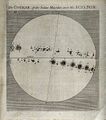

























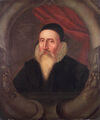

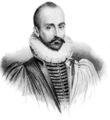












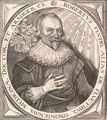


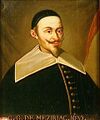






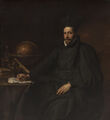












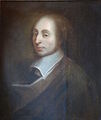





















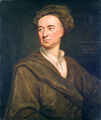












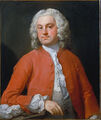


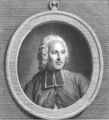












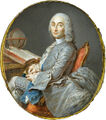
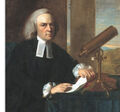





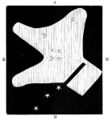



















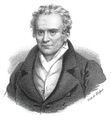

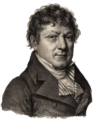










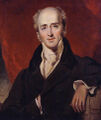

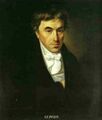












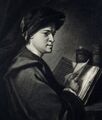




















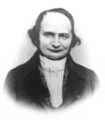
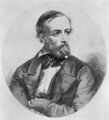























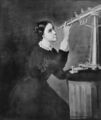


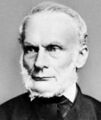




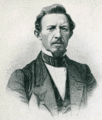








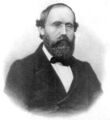




















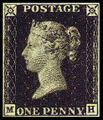










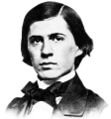





















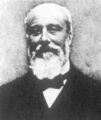


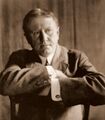





























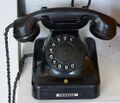






















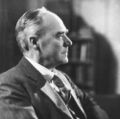









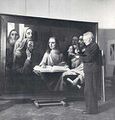















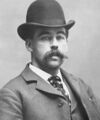








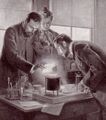


























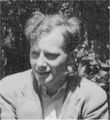

















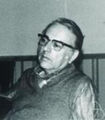

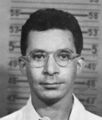
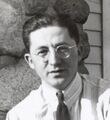





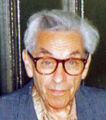


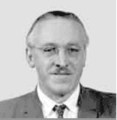









![1915 Mar. 16: Mathematician and academic [[Kunihiko Kodaira]] born. He will do distinguished work in algebraic geometry and the theory of complex manifolds, winning the Fields medal in 1954.](/w/images/thumb/7/75/Kodaira_Kunihiko.jpg/94px-Kodaira_Kunihiko.jpg)












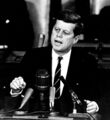















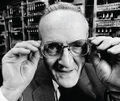

















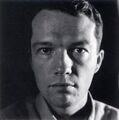





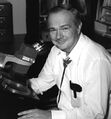































![1944 Jun. 1: First successful run of the improved Colossus Mark 2 computer], just in time for the Normandy landings on D-Day. Colossus Mark 2 used shift registers to quintuple the processing speed.](/w/images/thumb/4/48/Colossus_Mark_2.jpg/120px-Colossus_Mark_2.jpg)






















